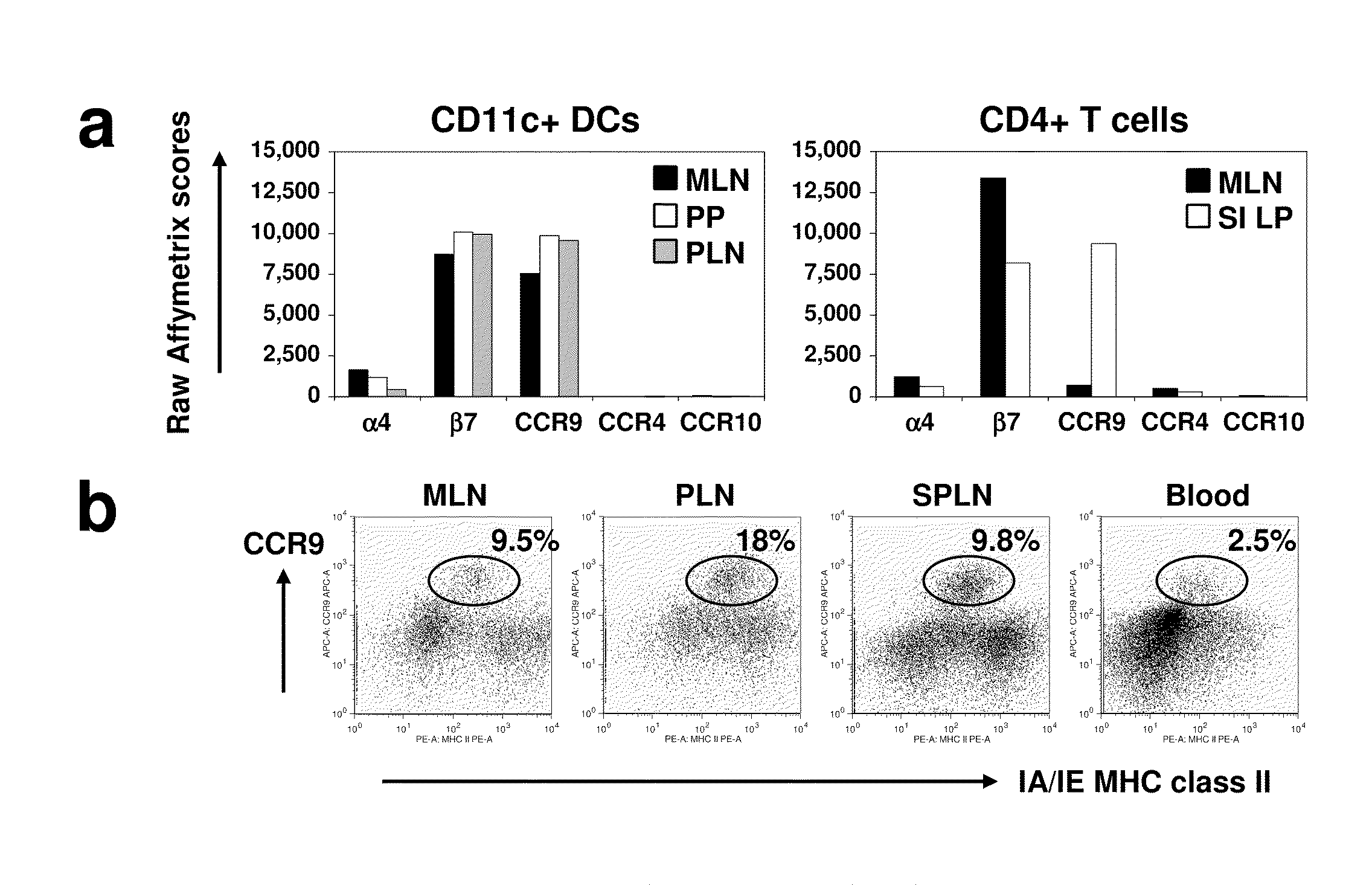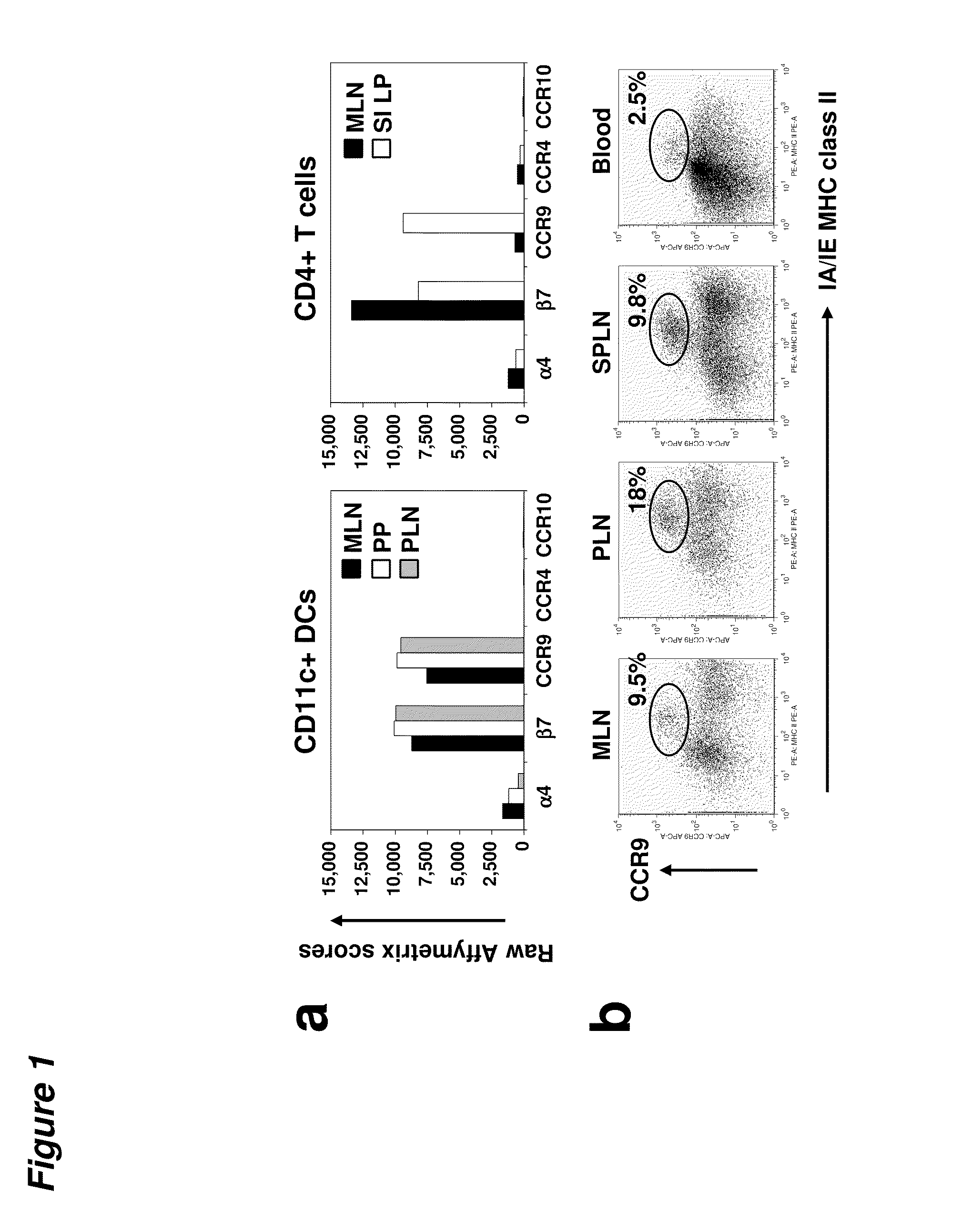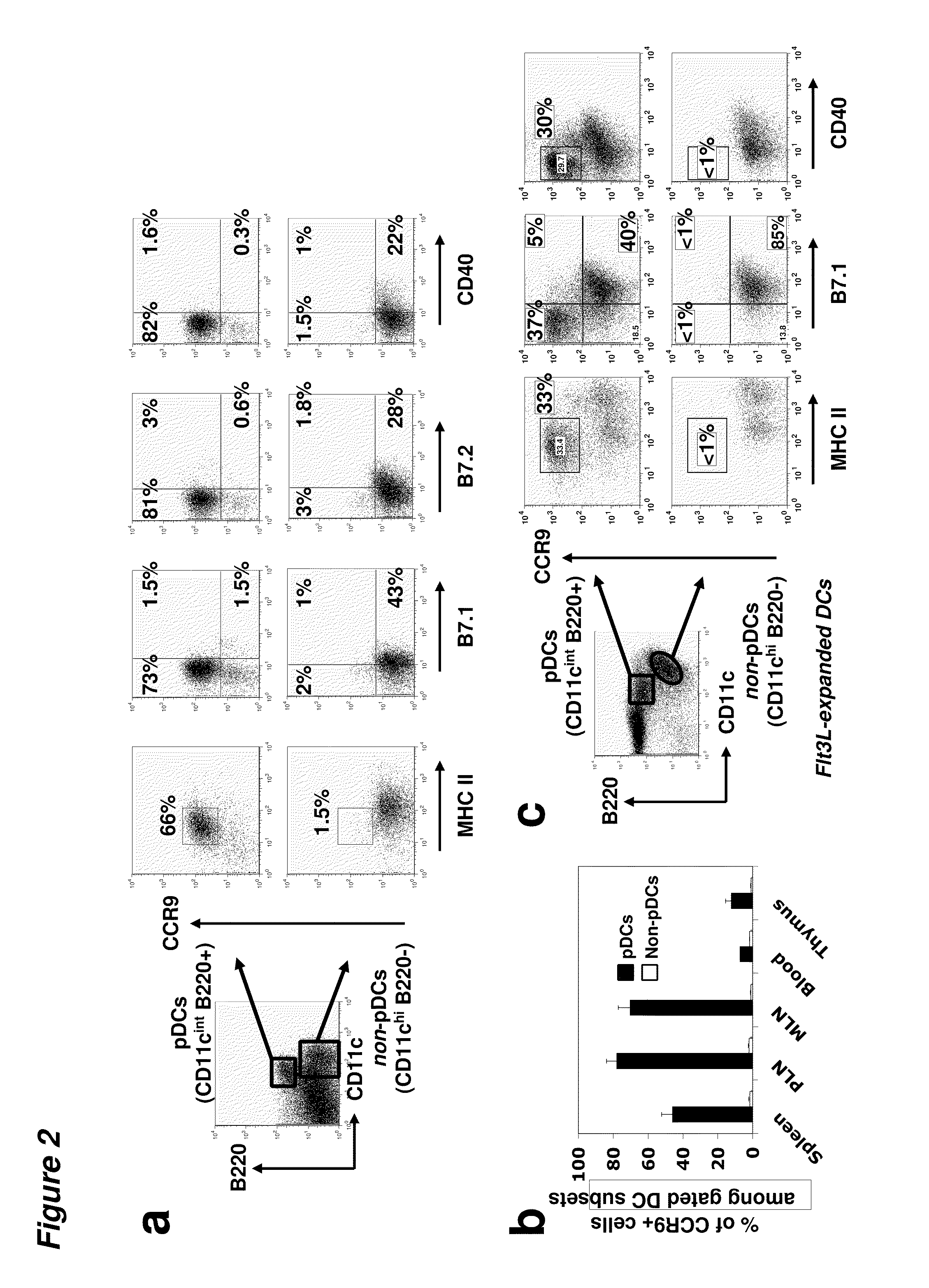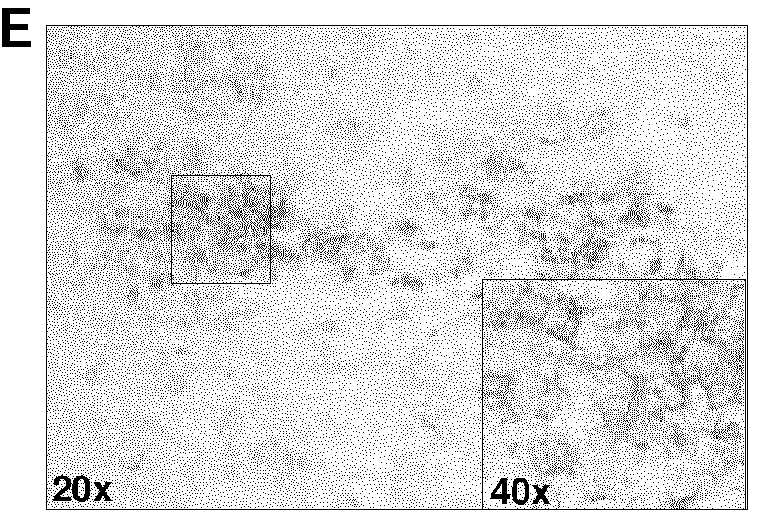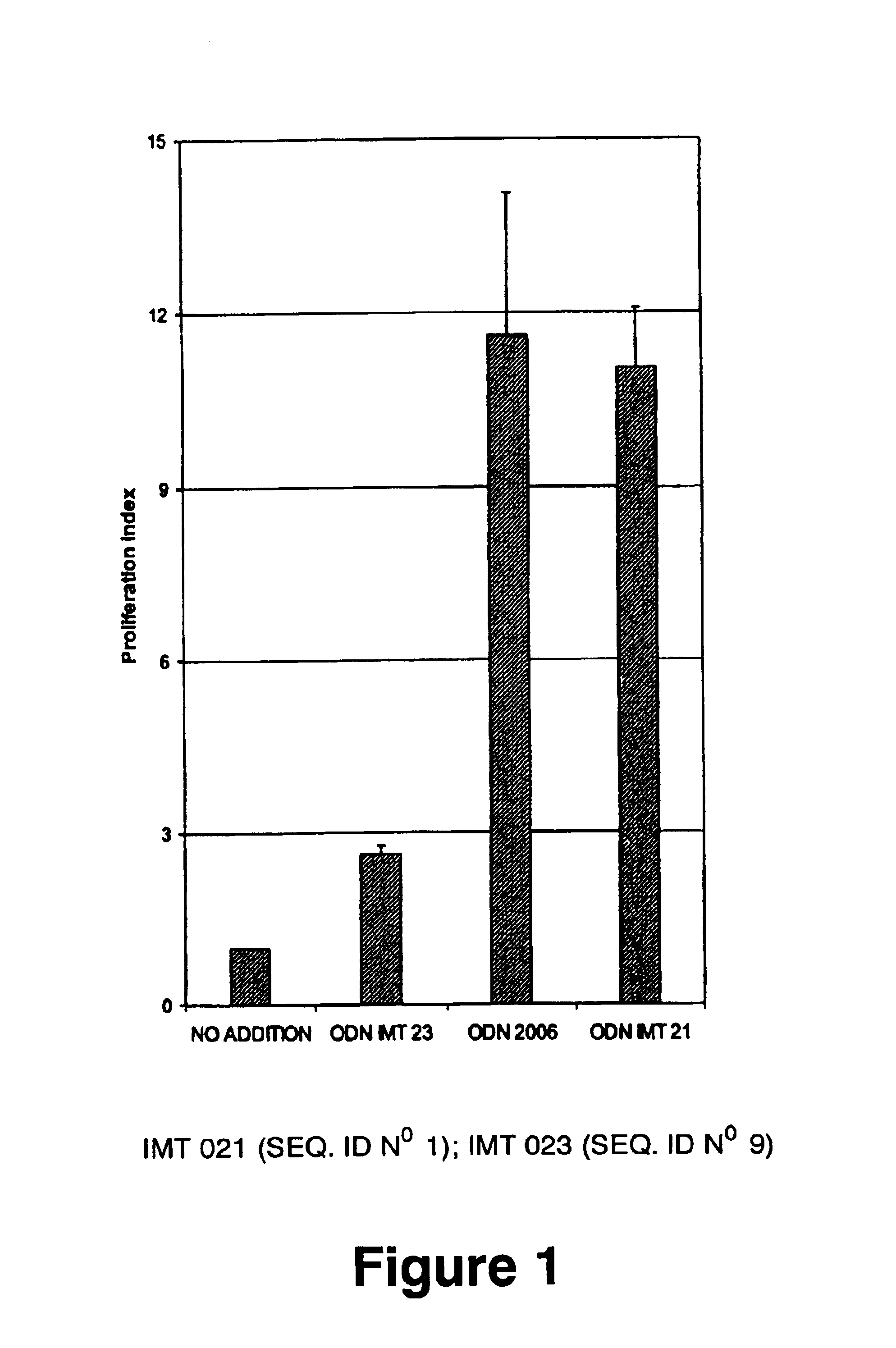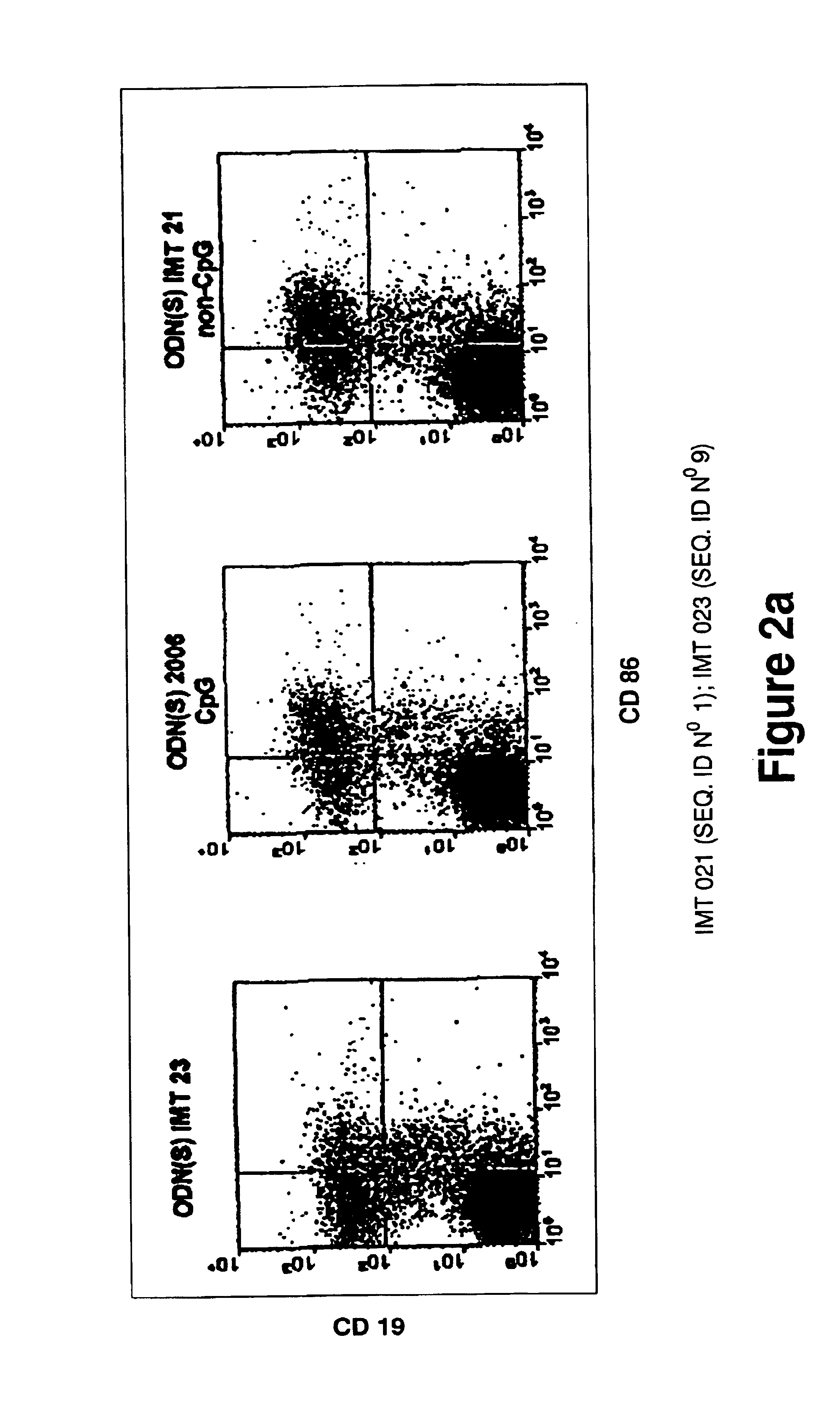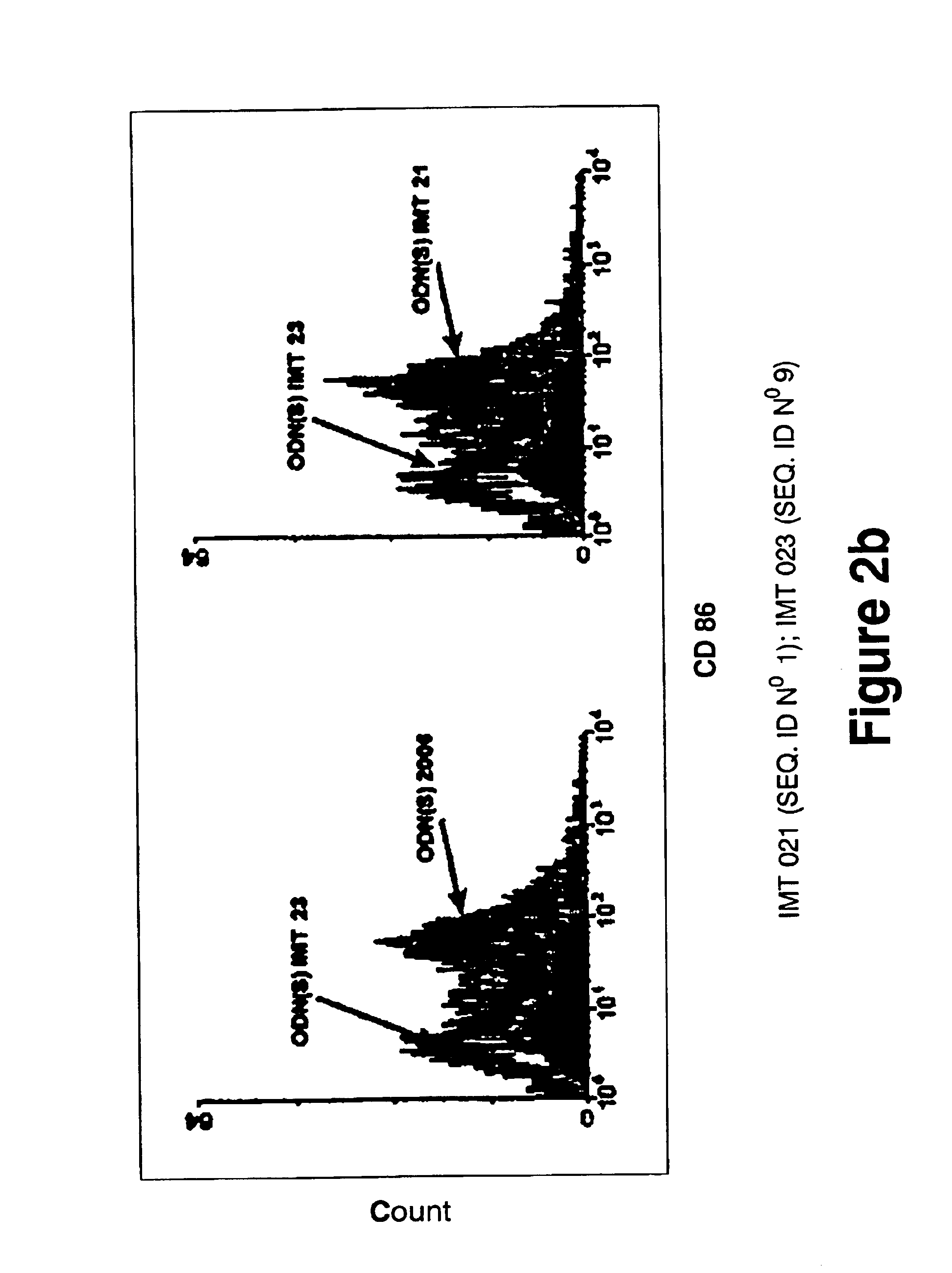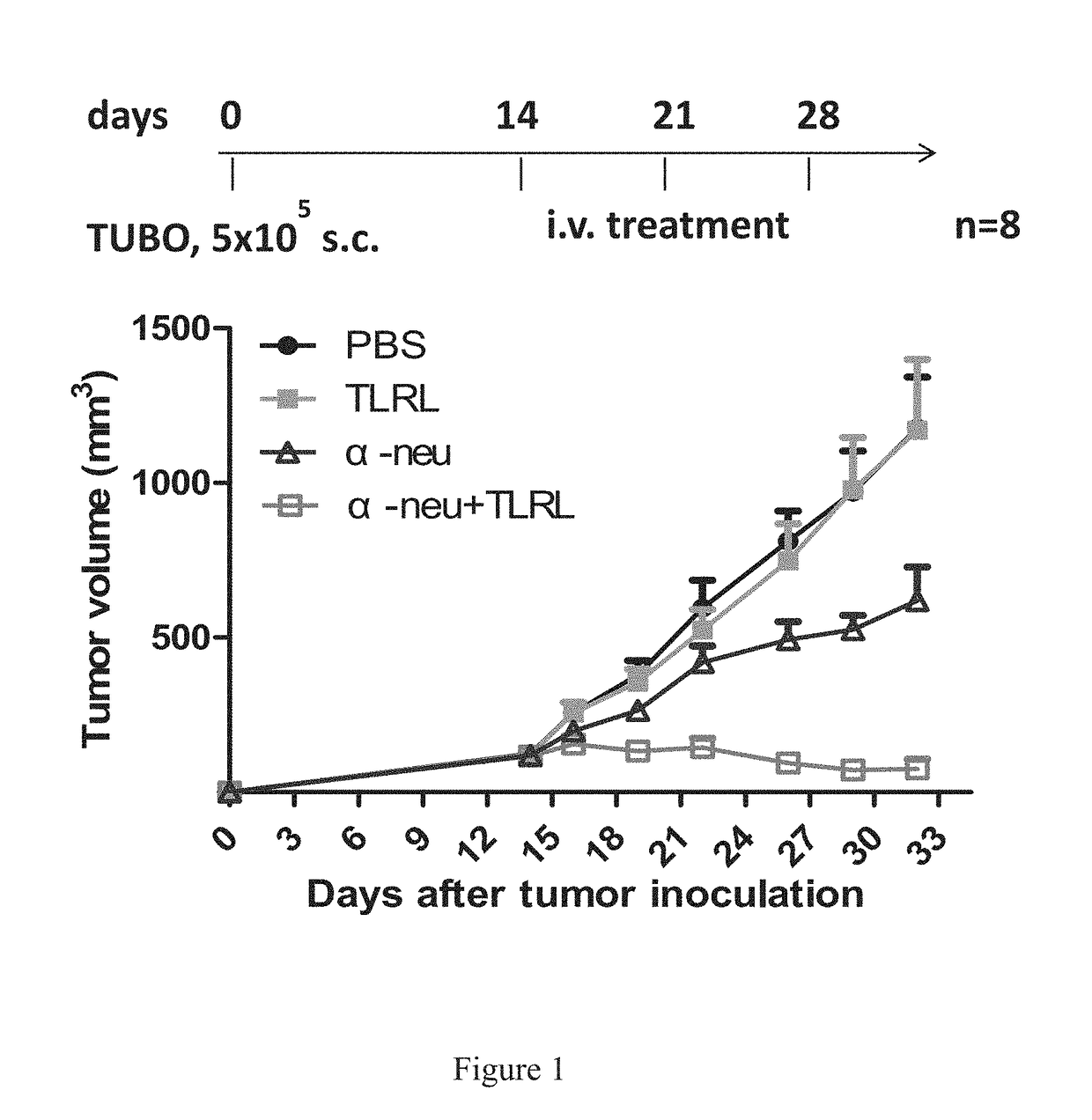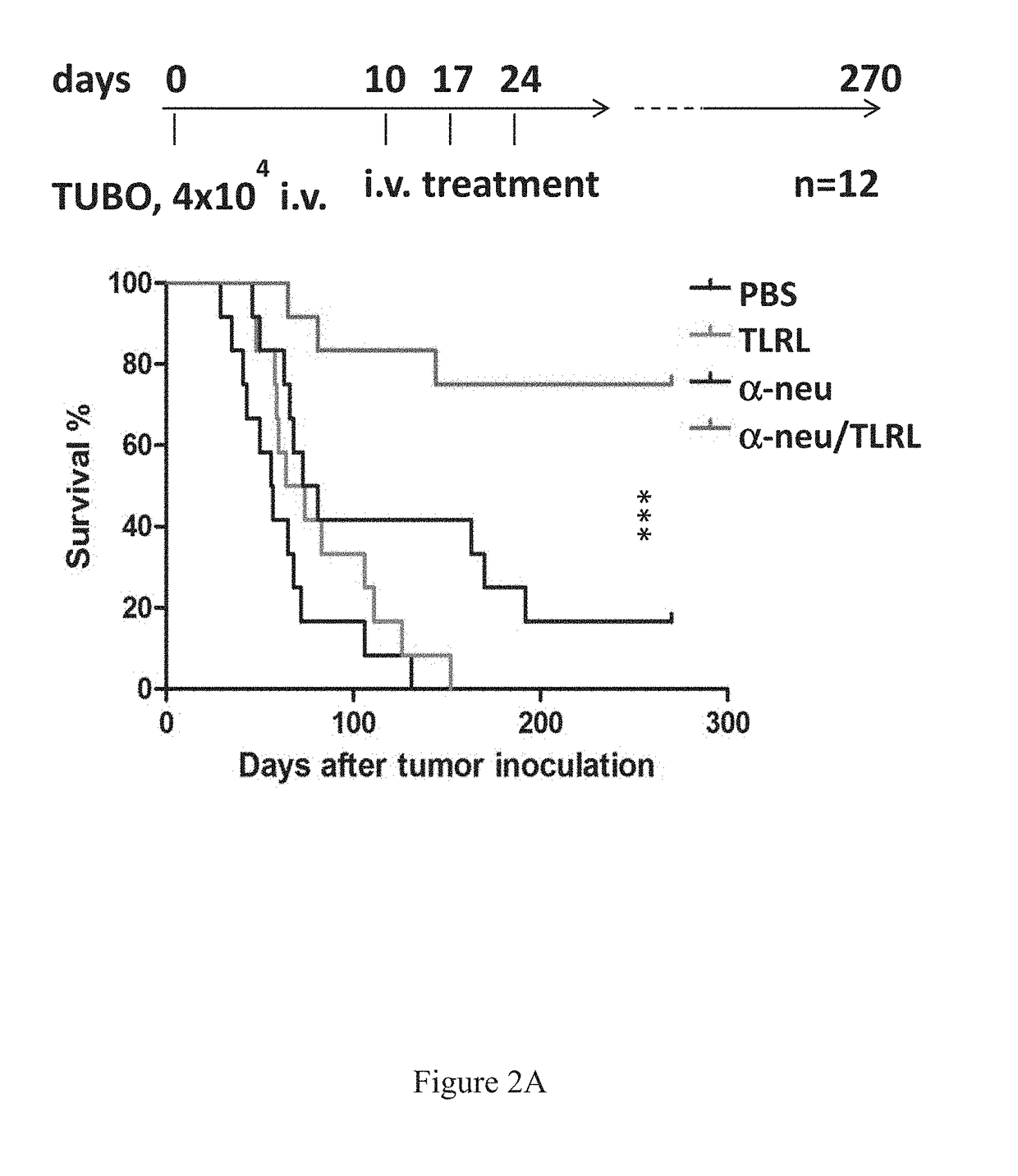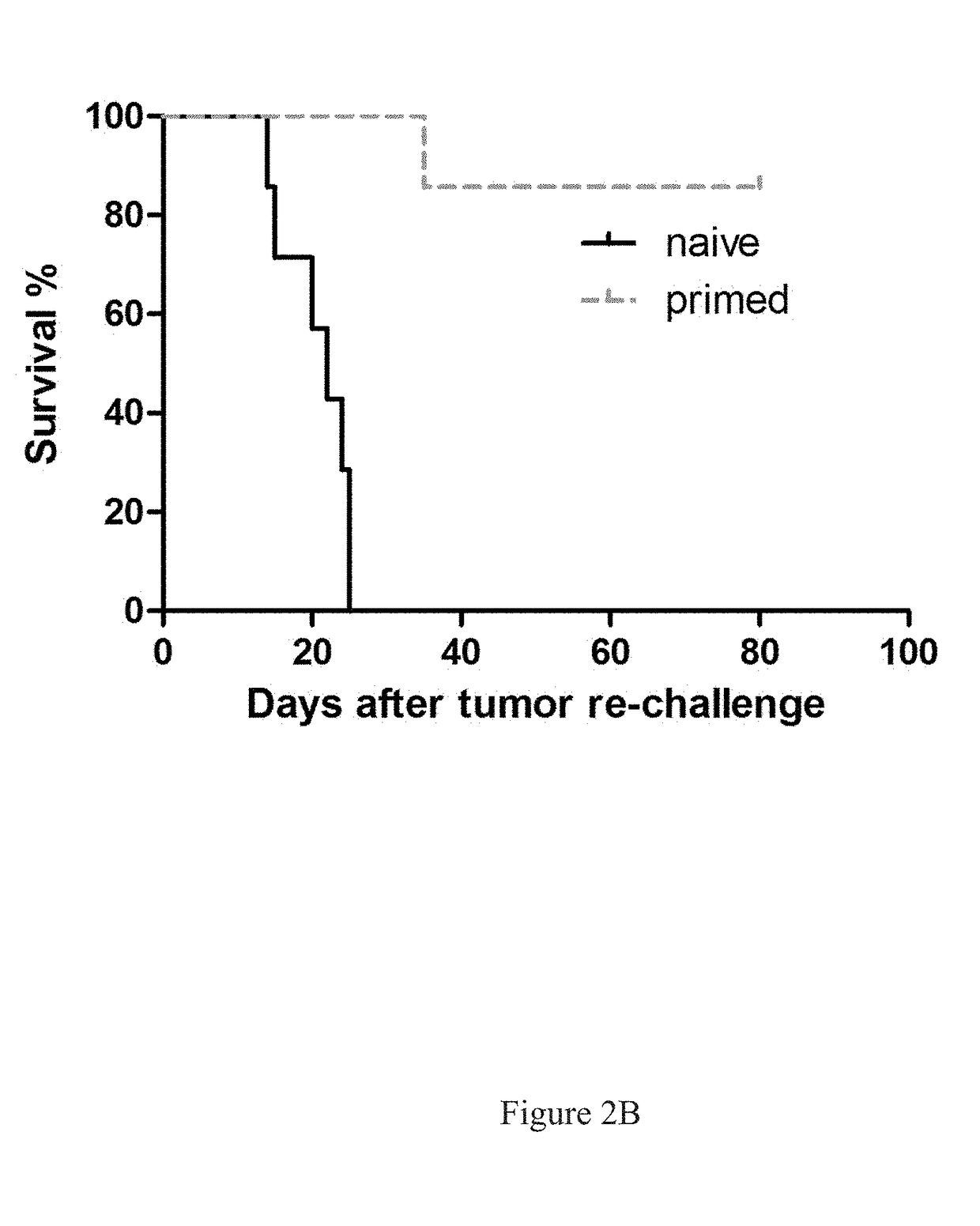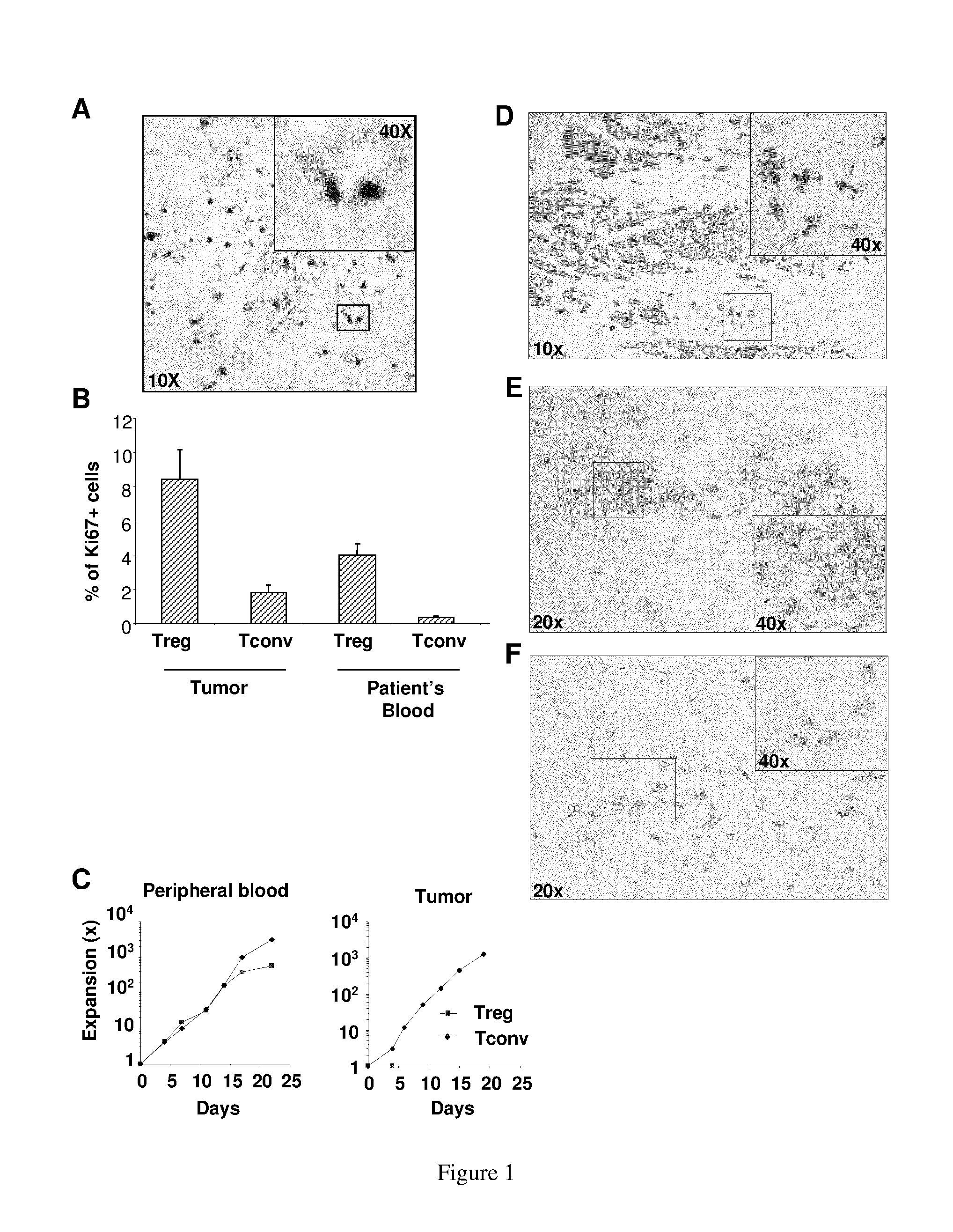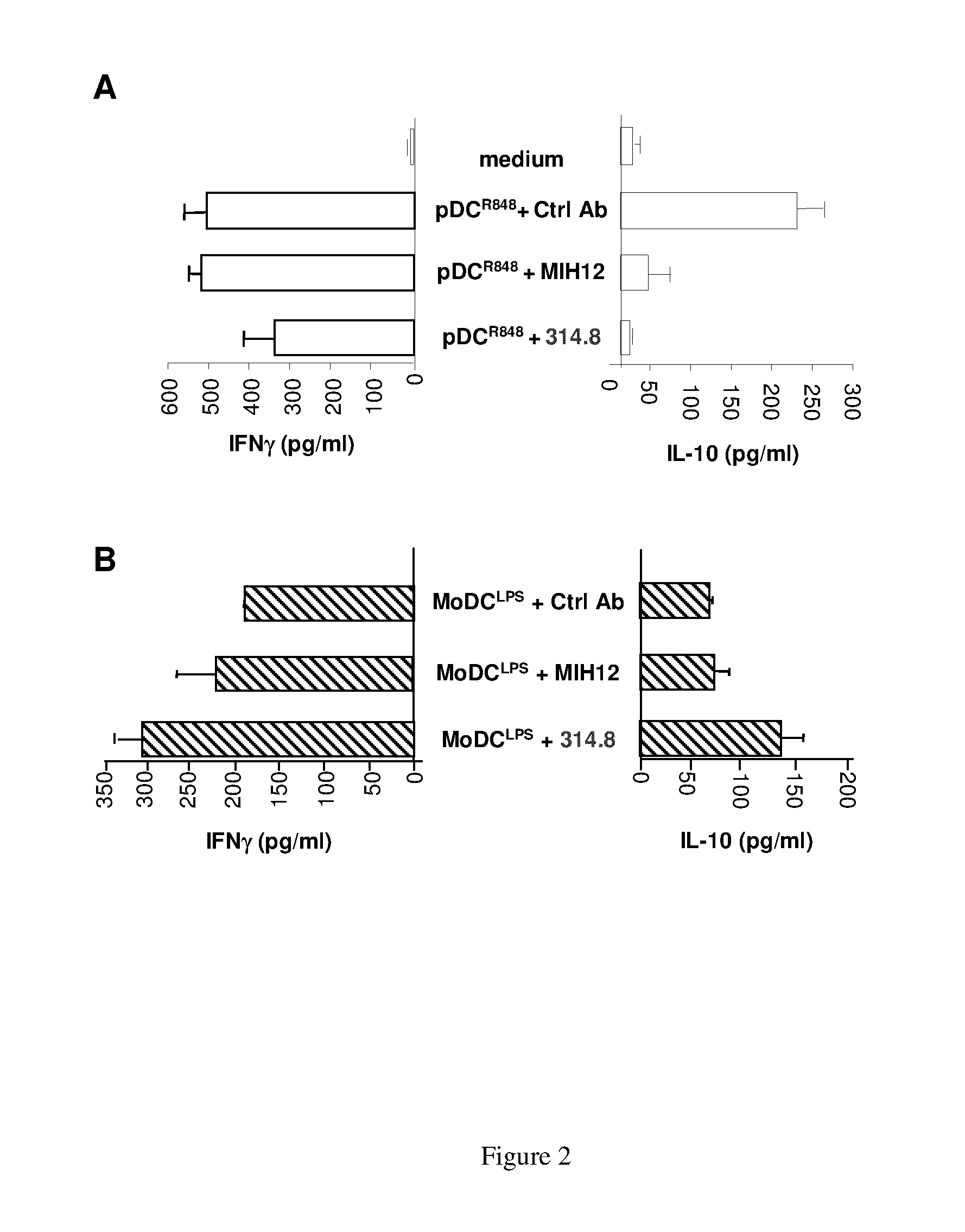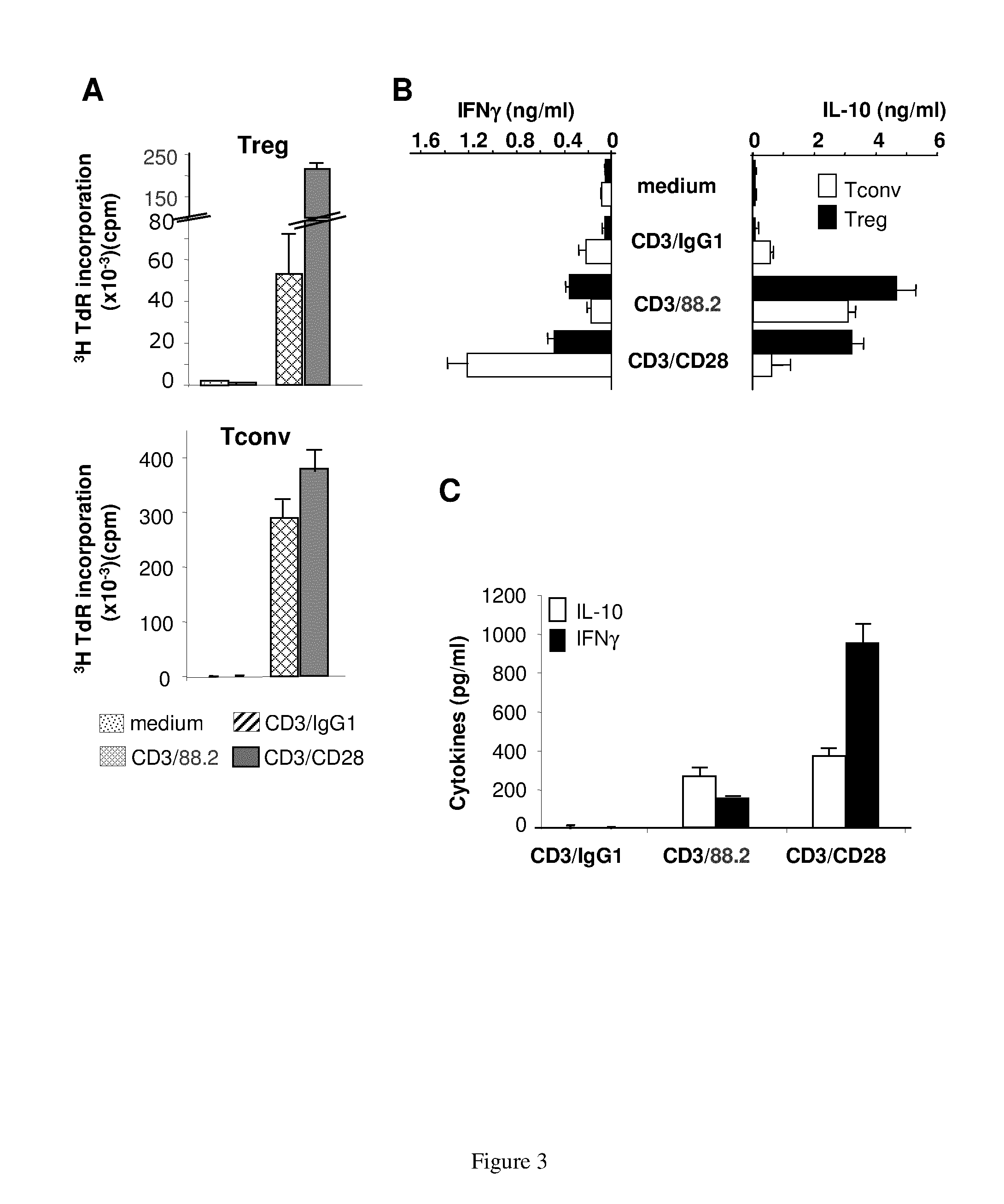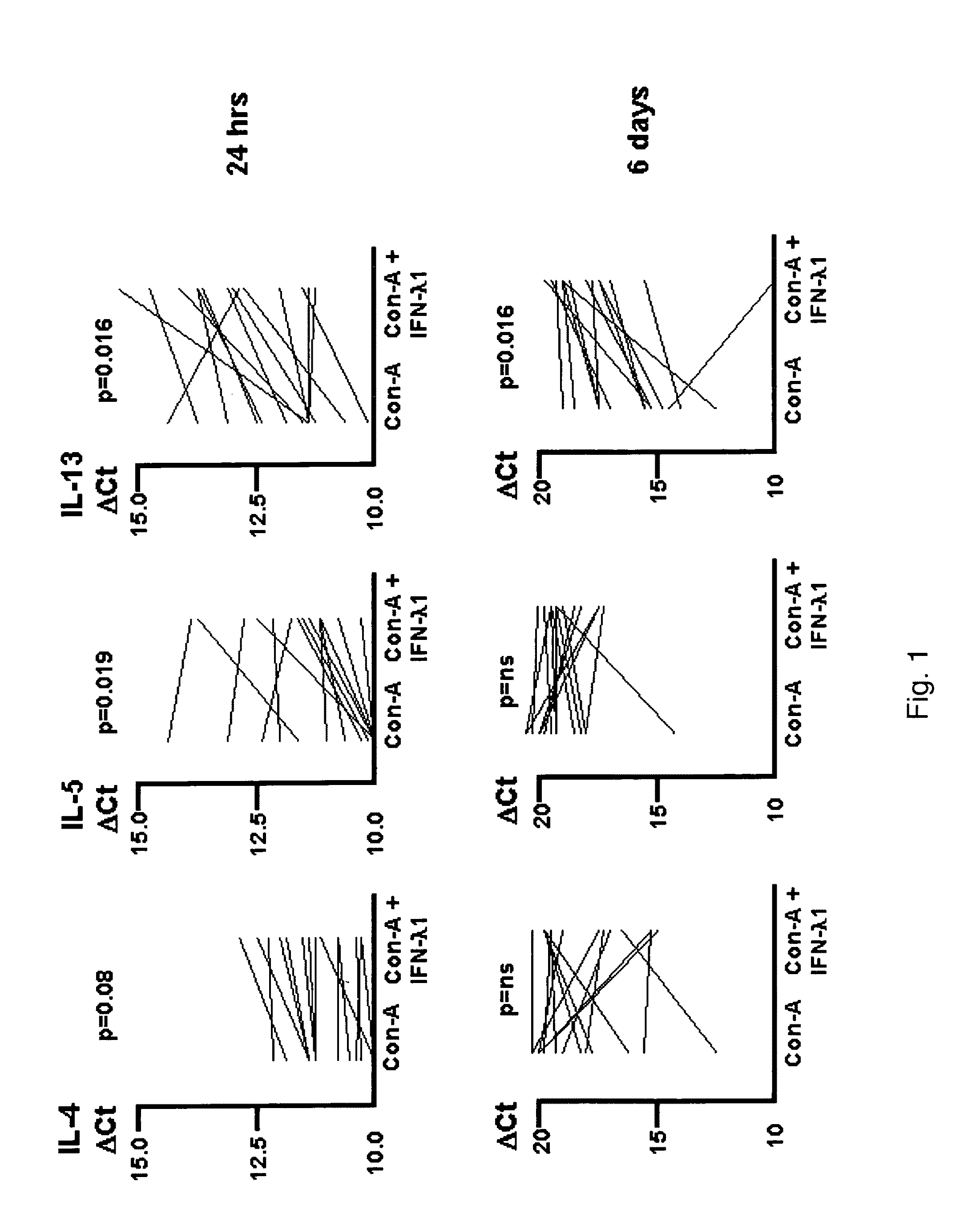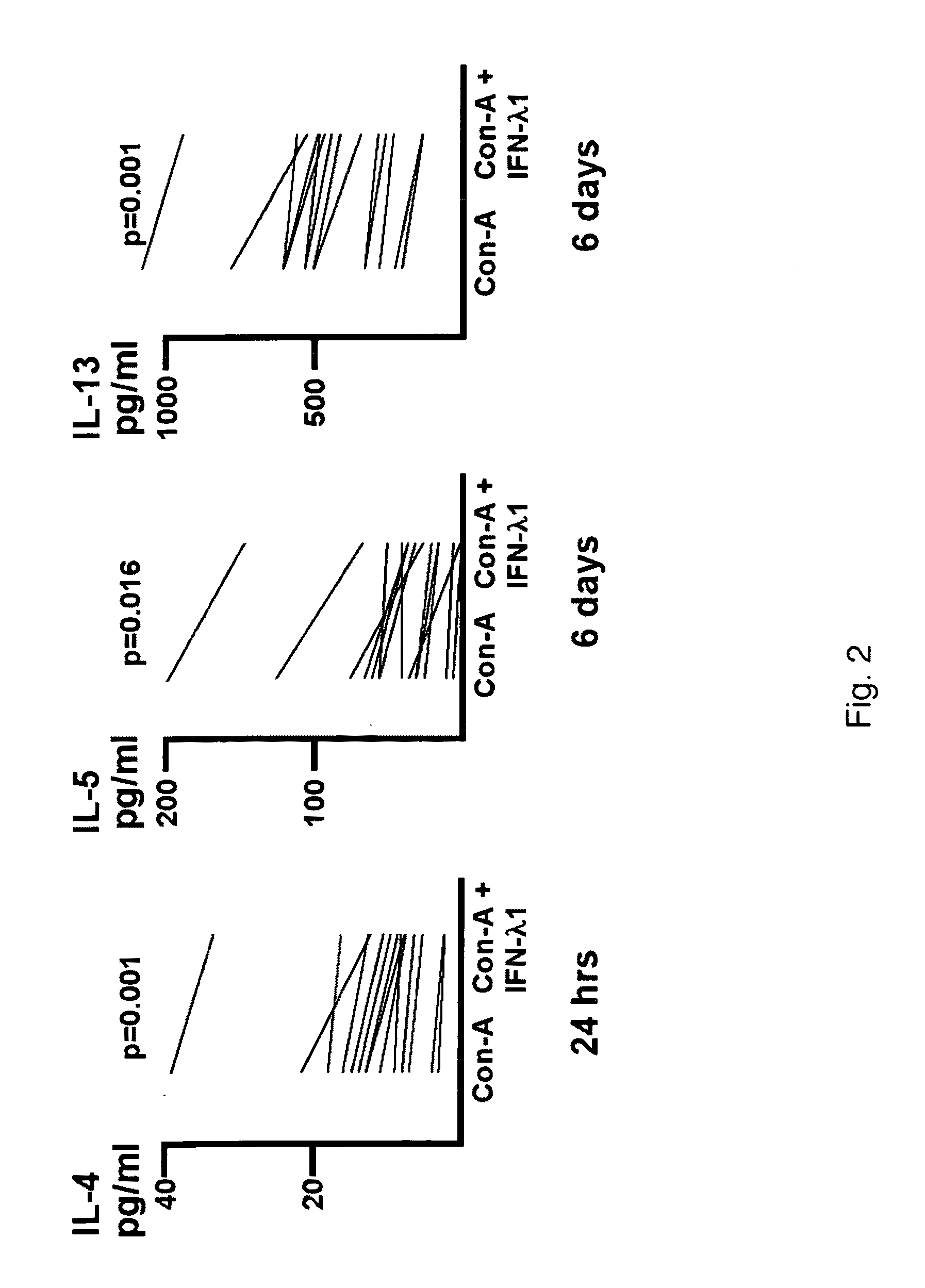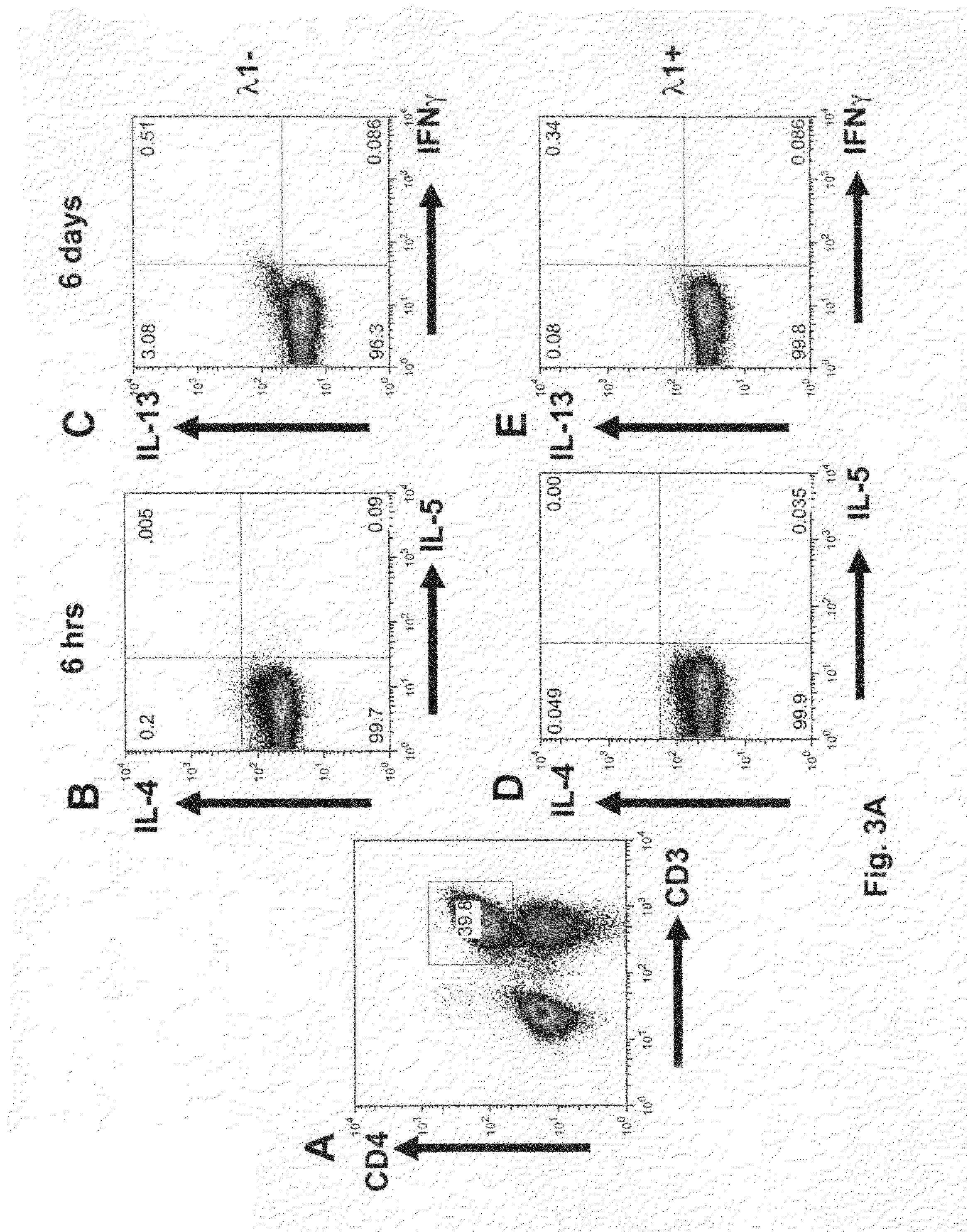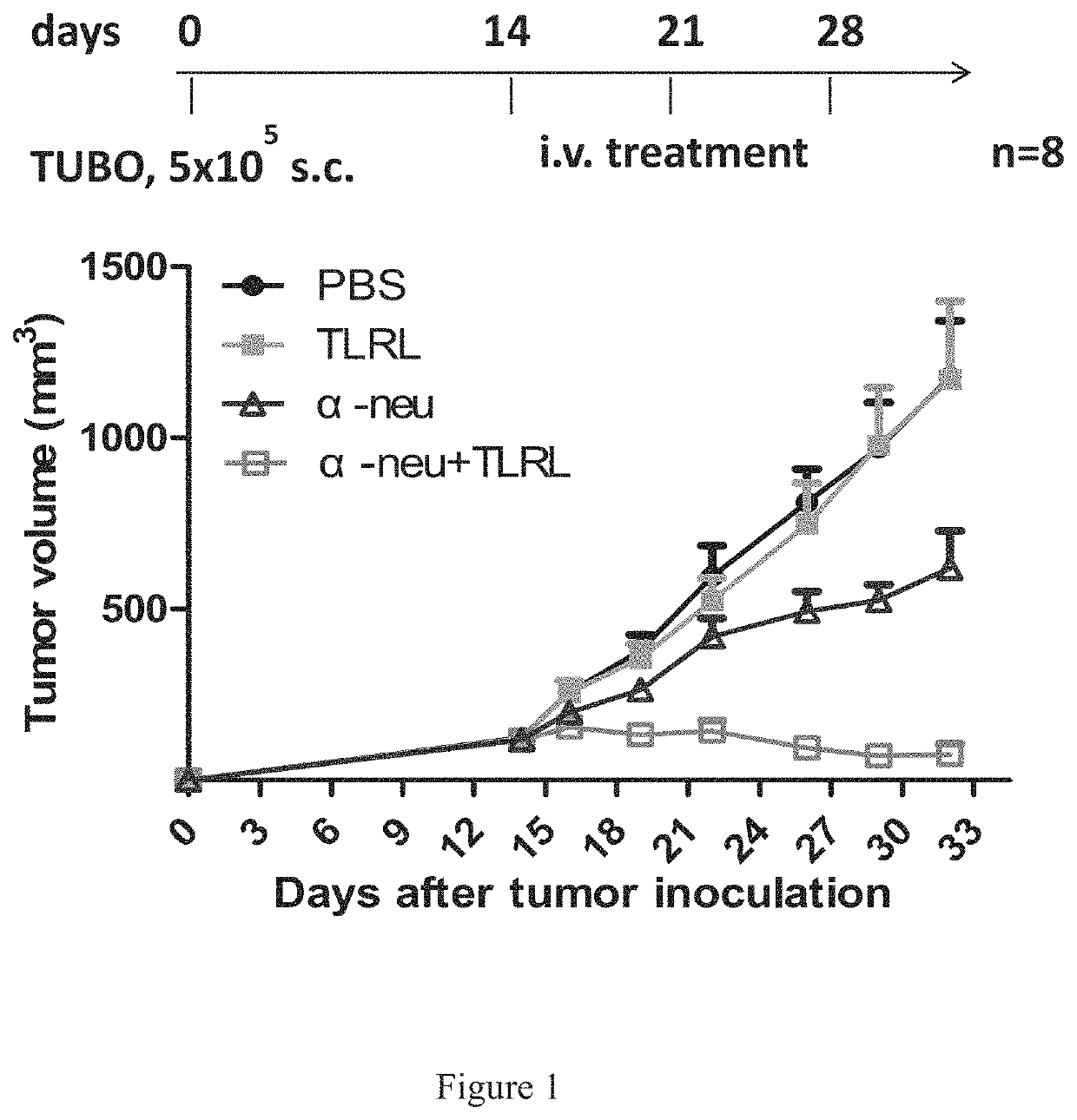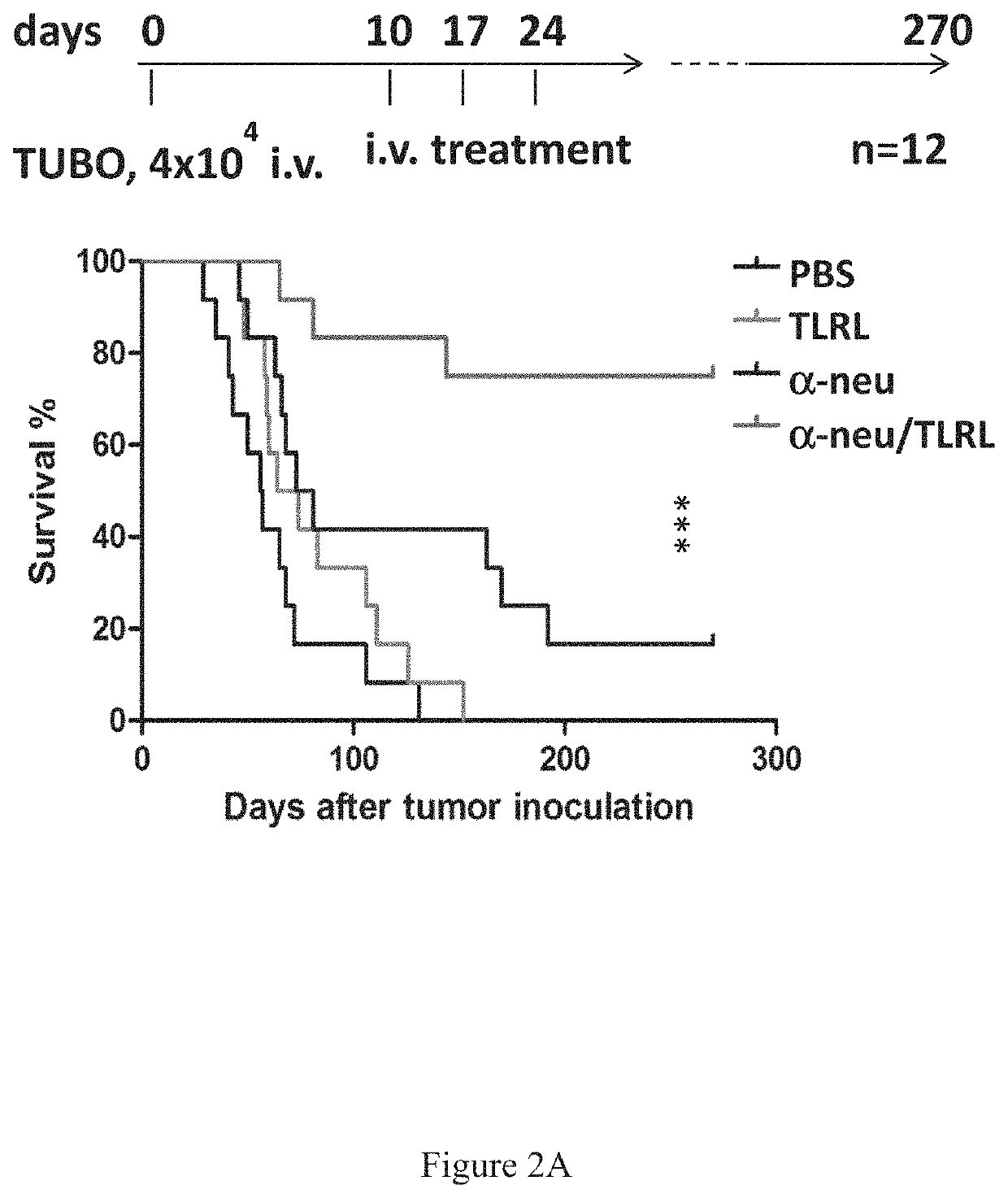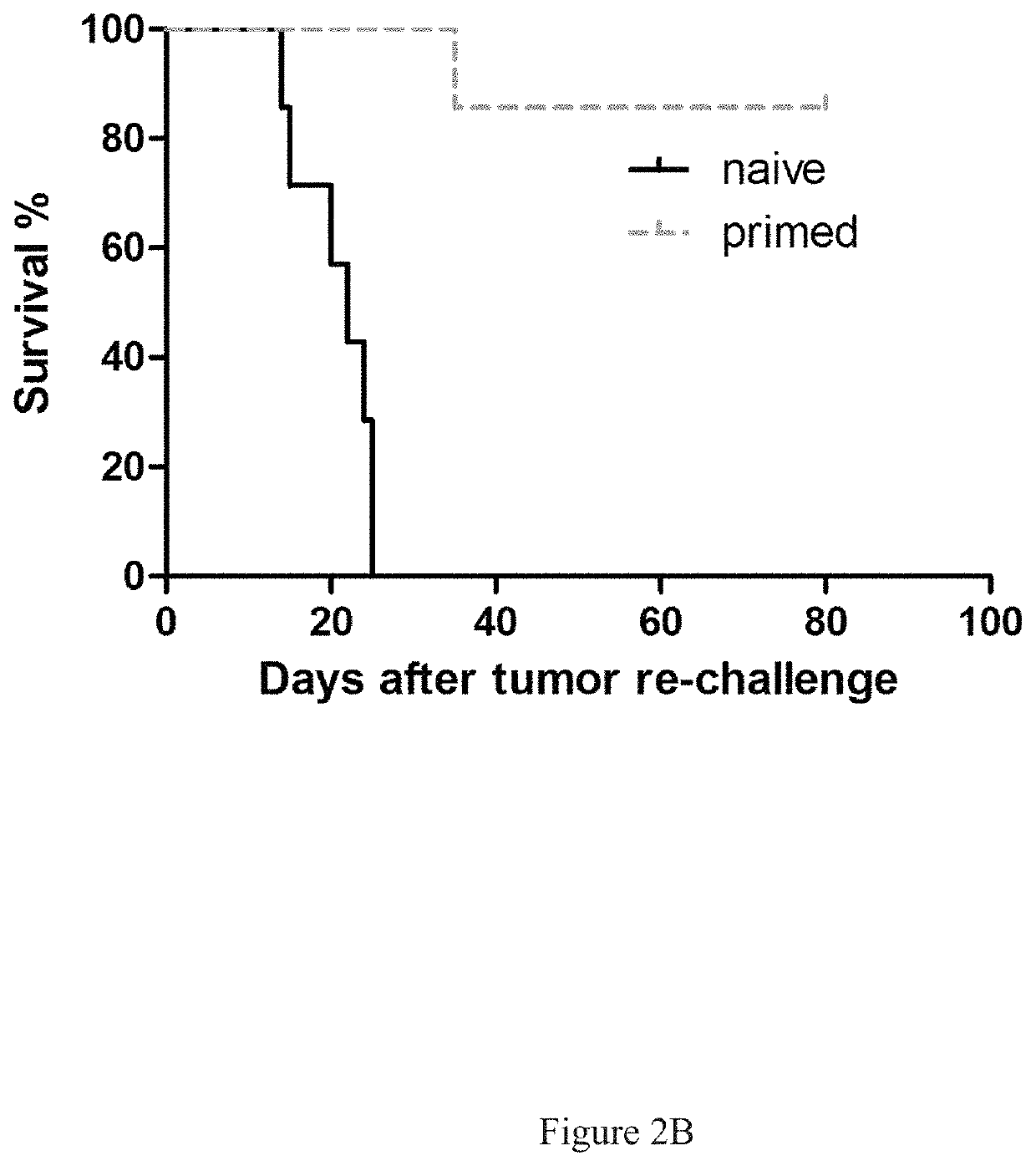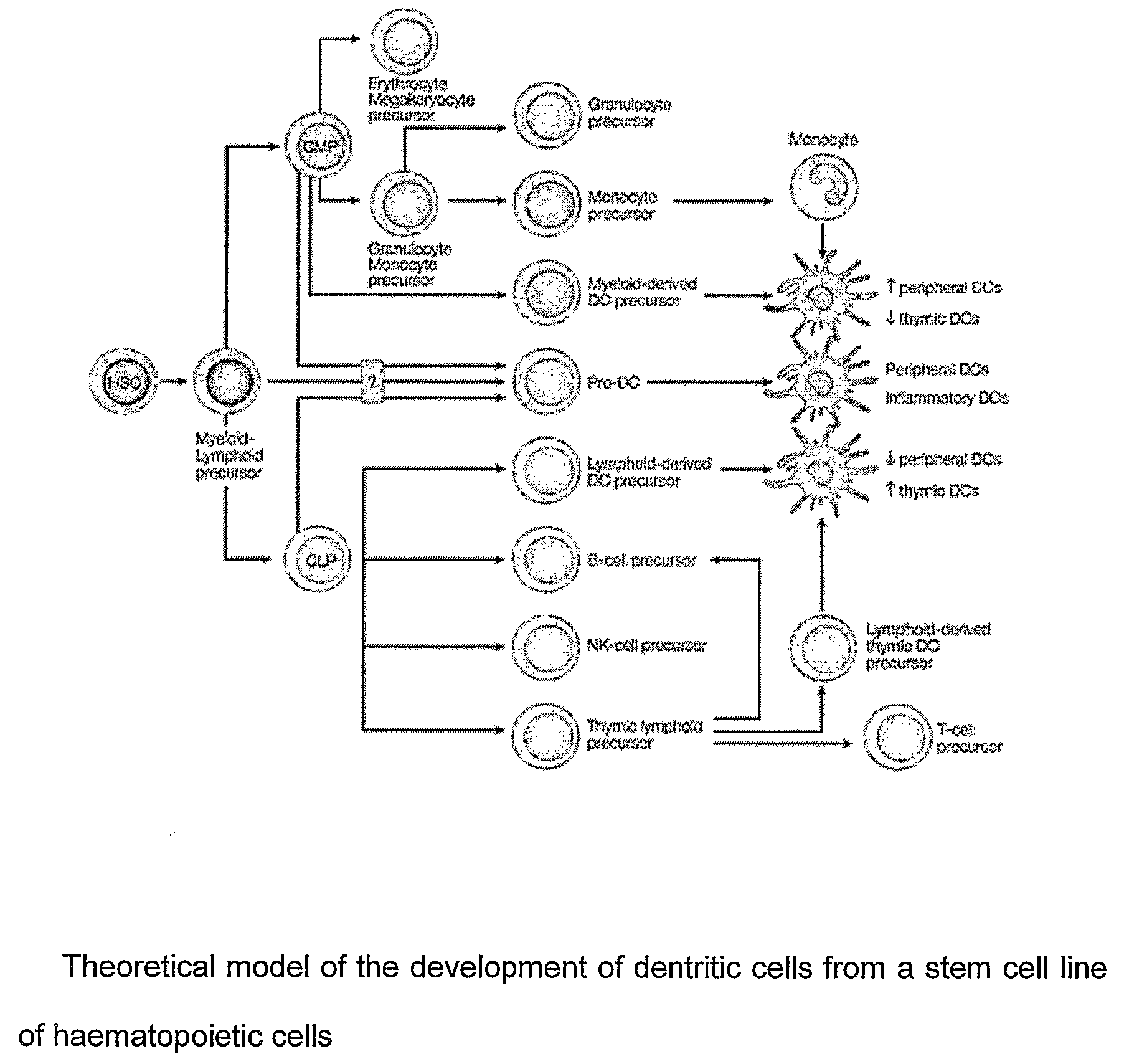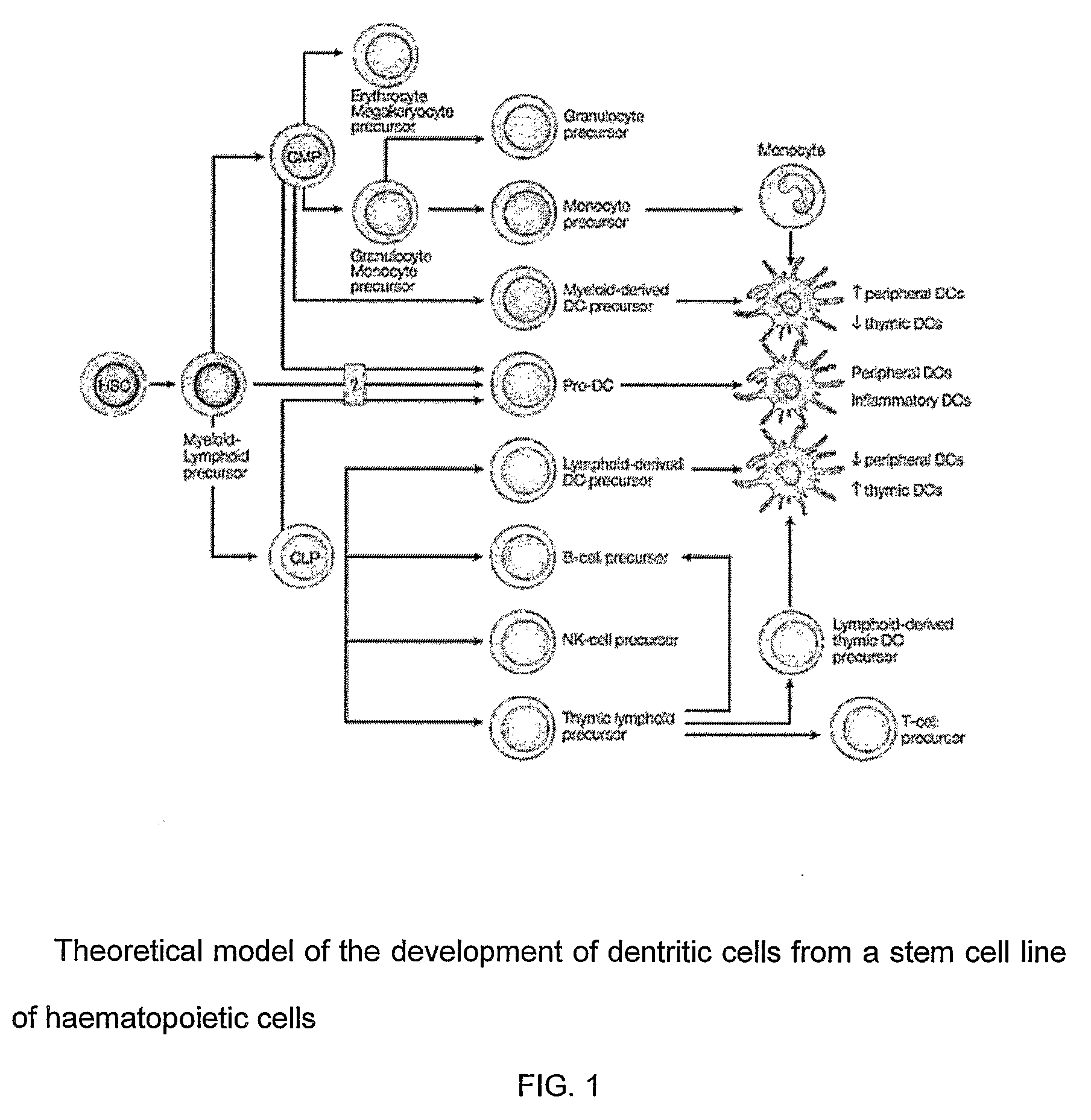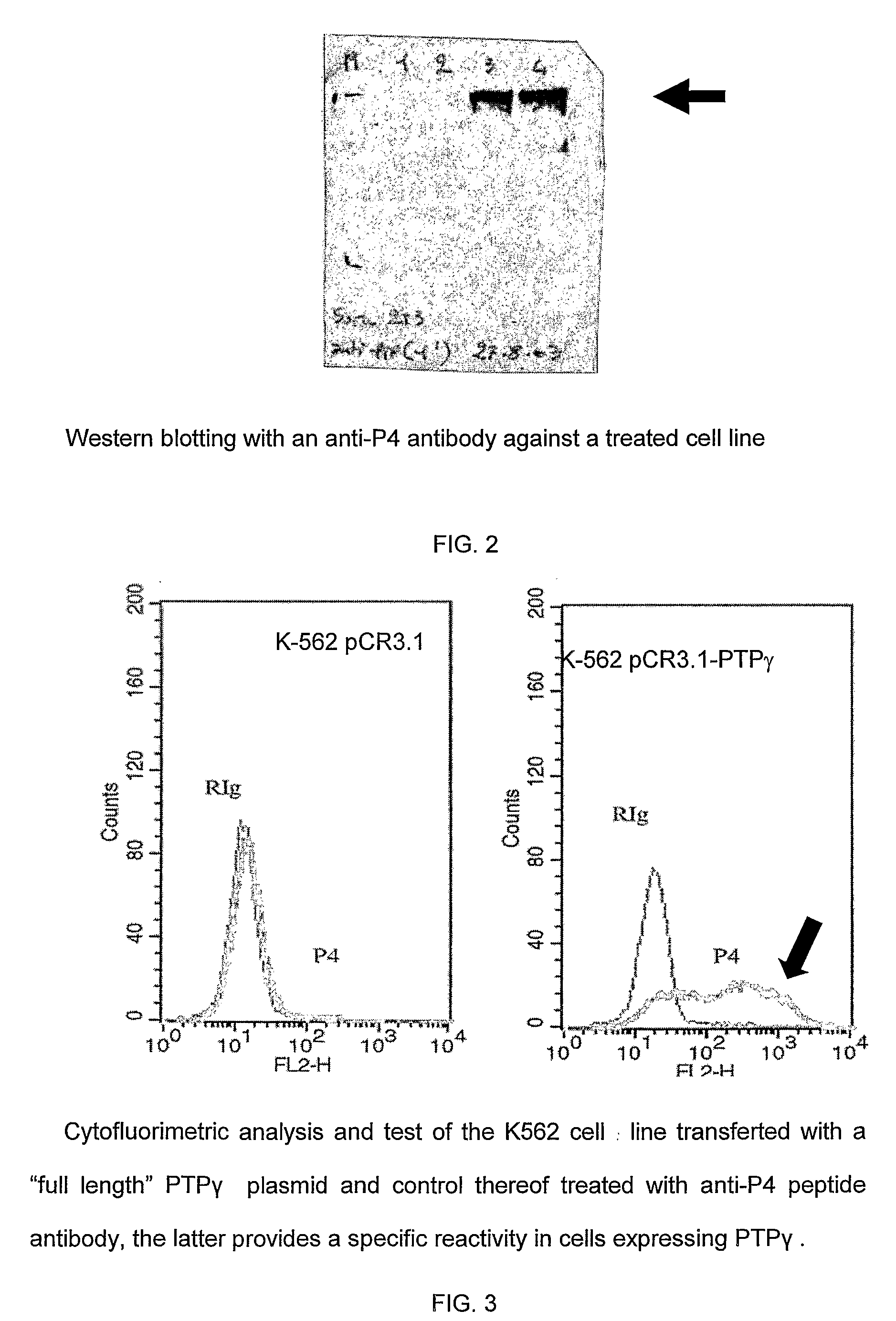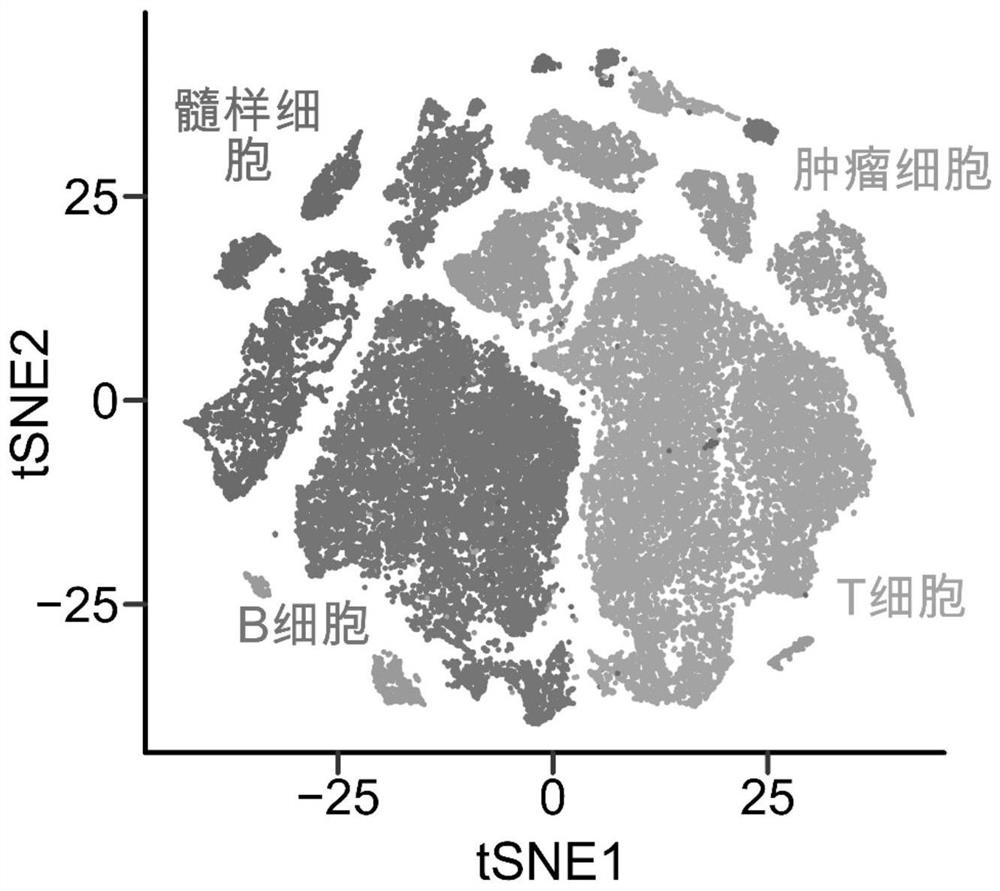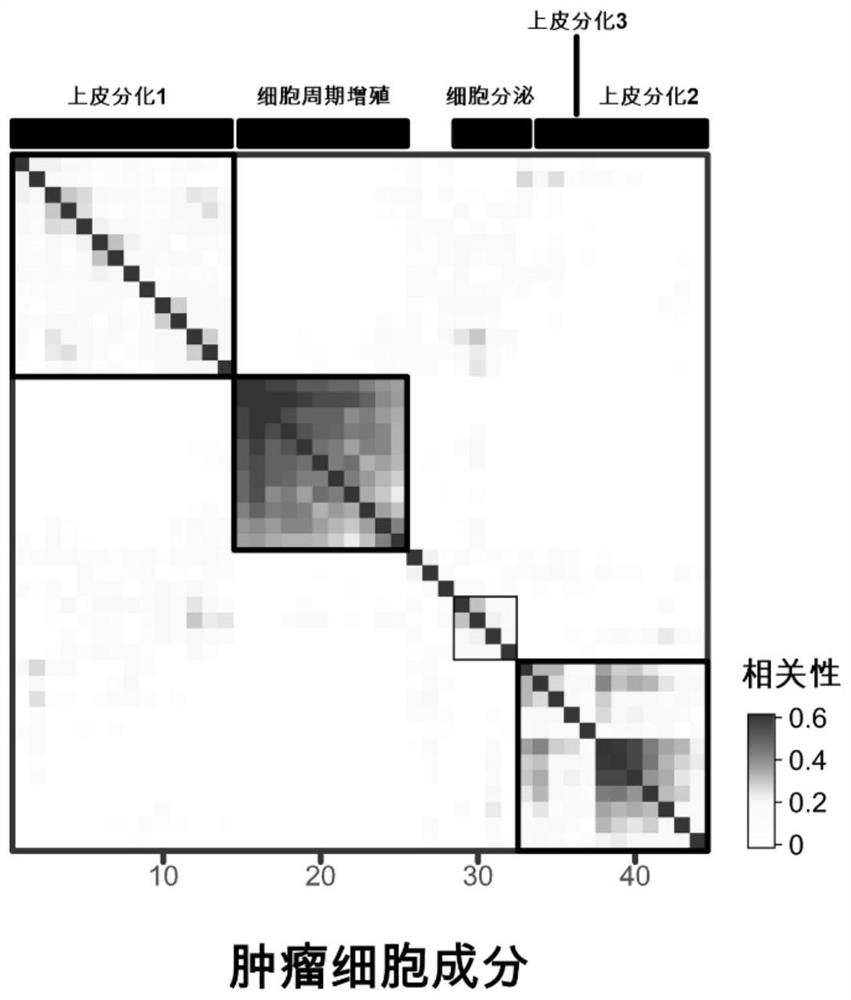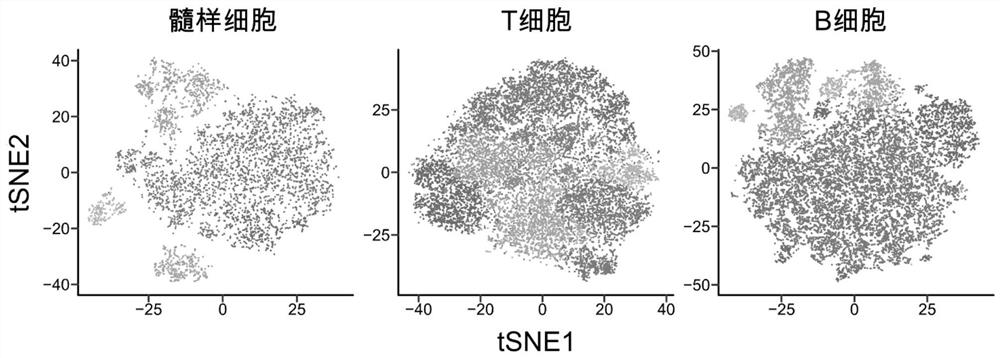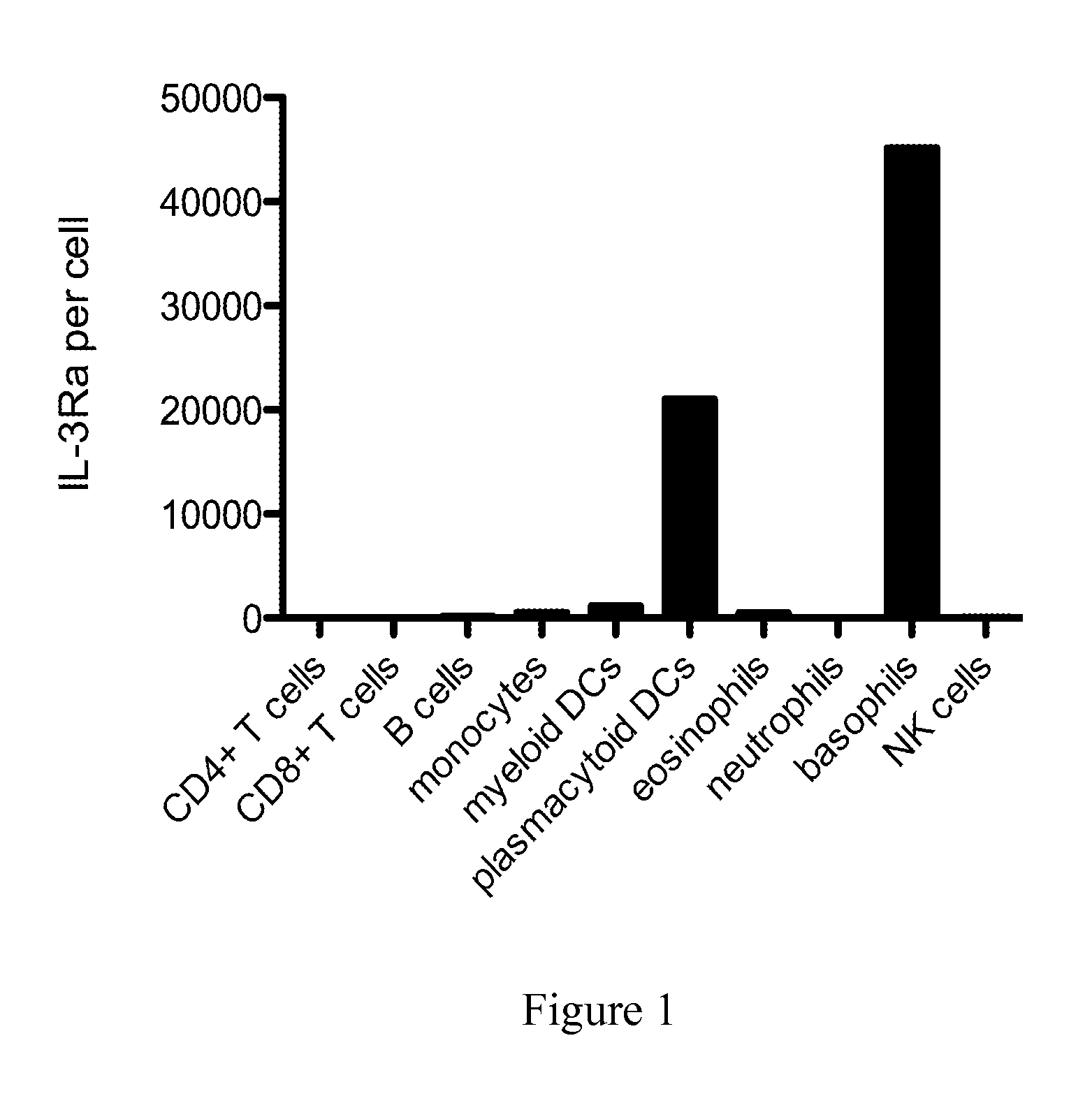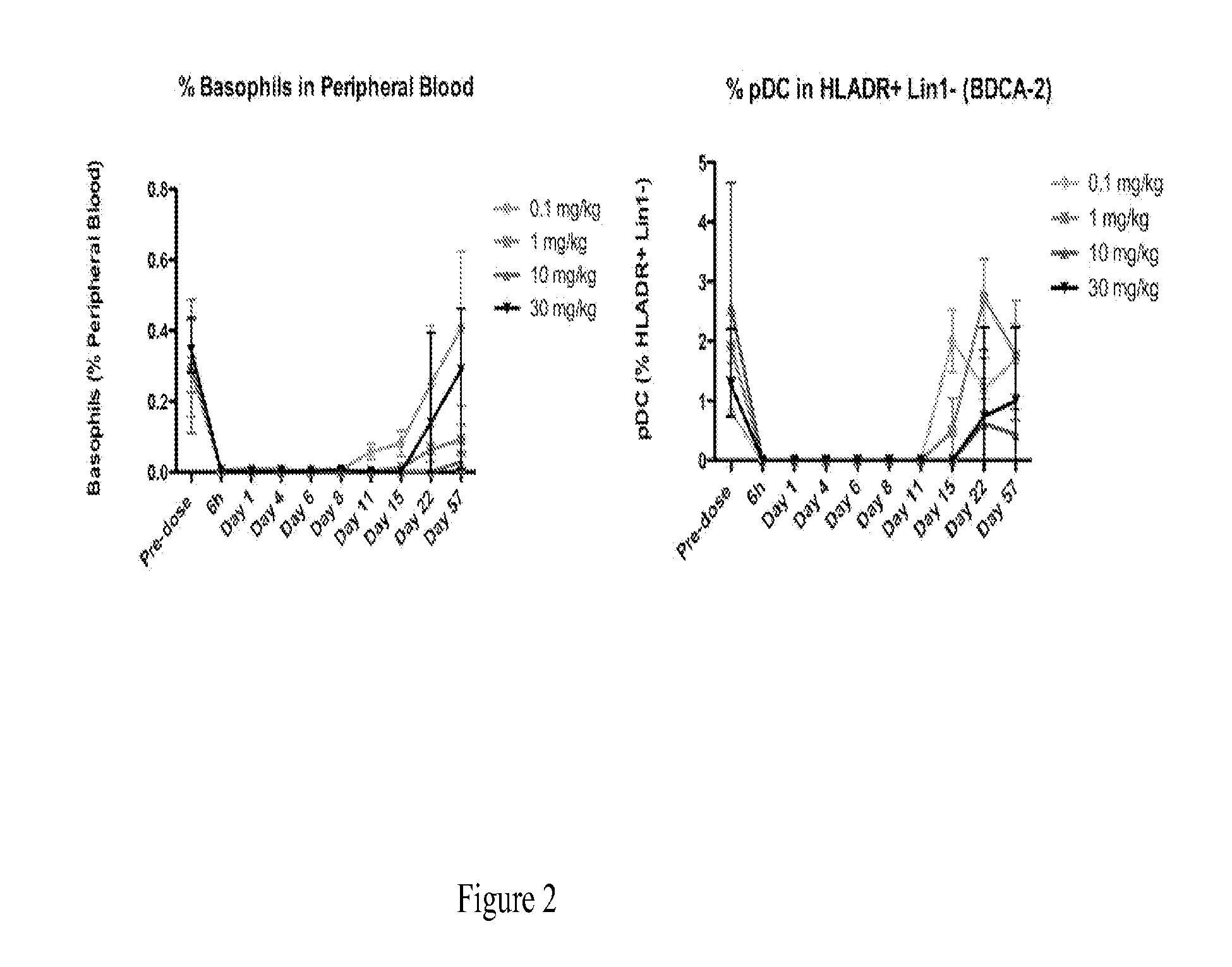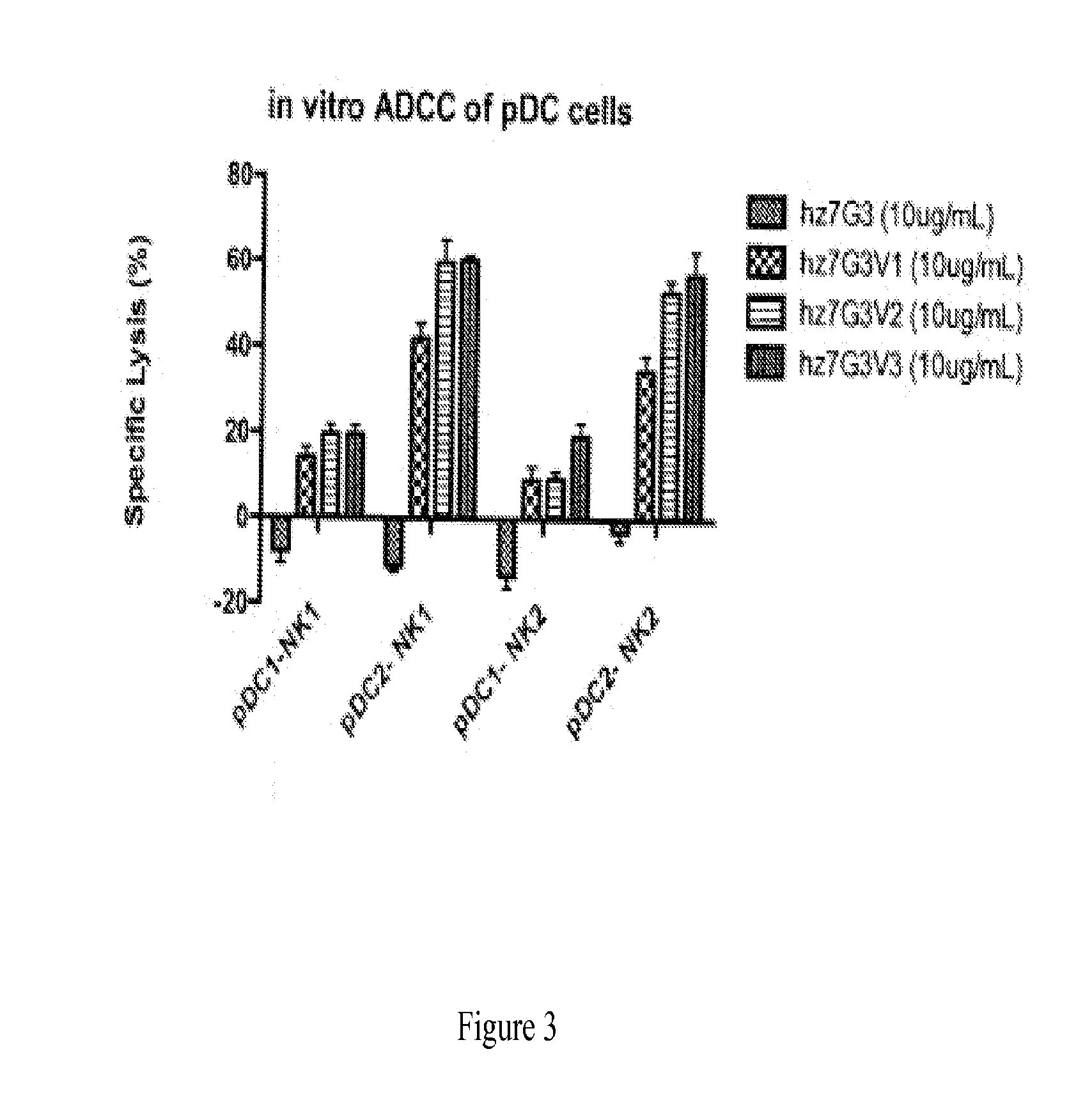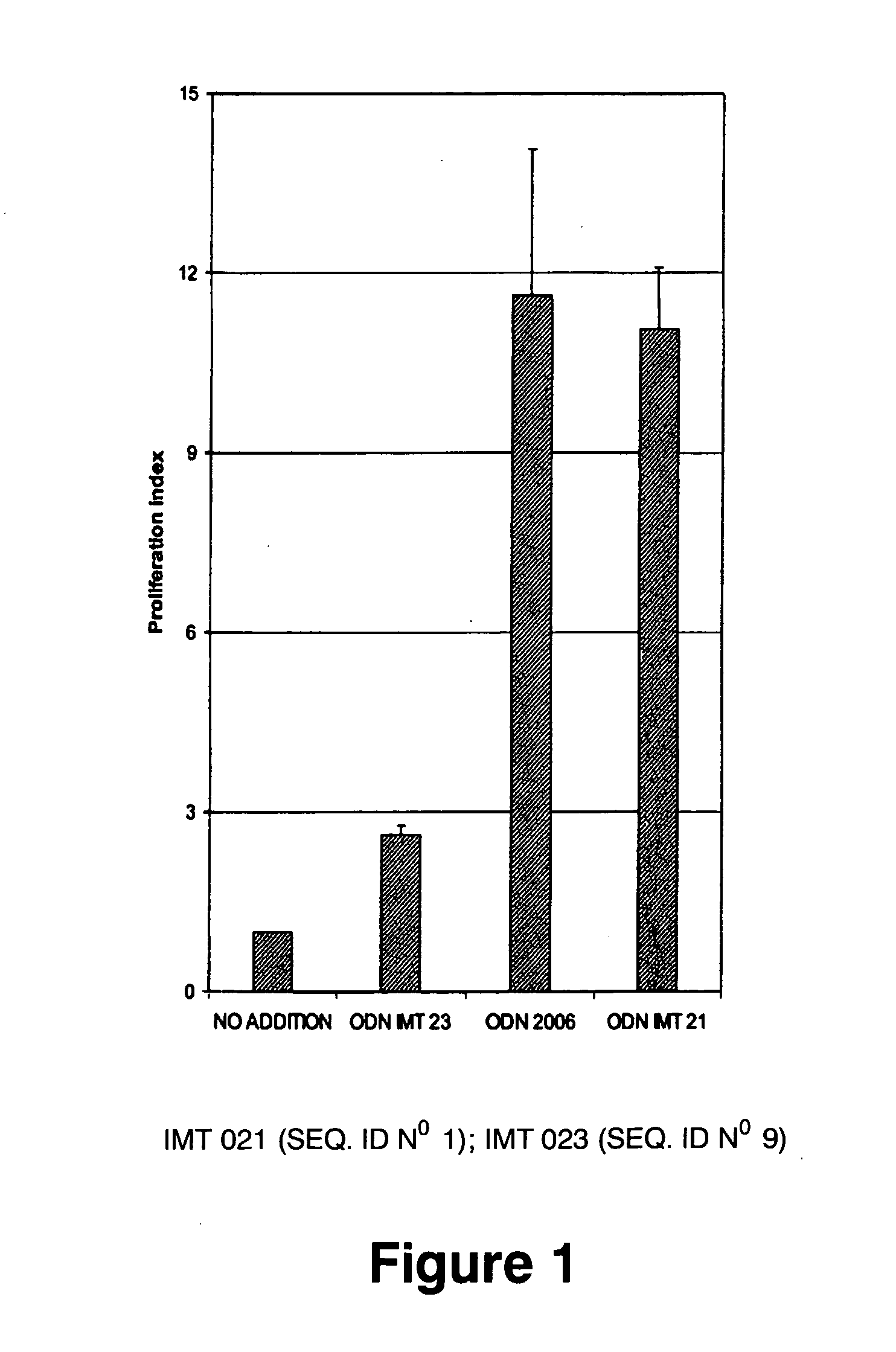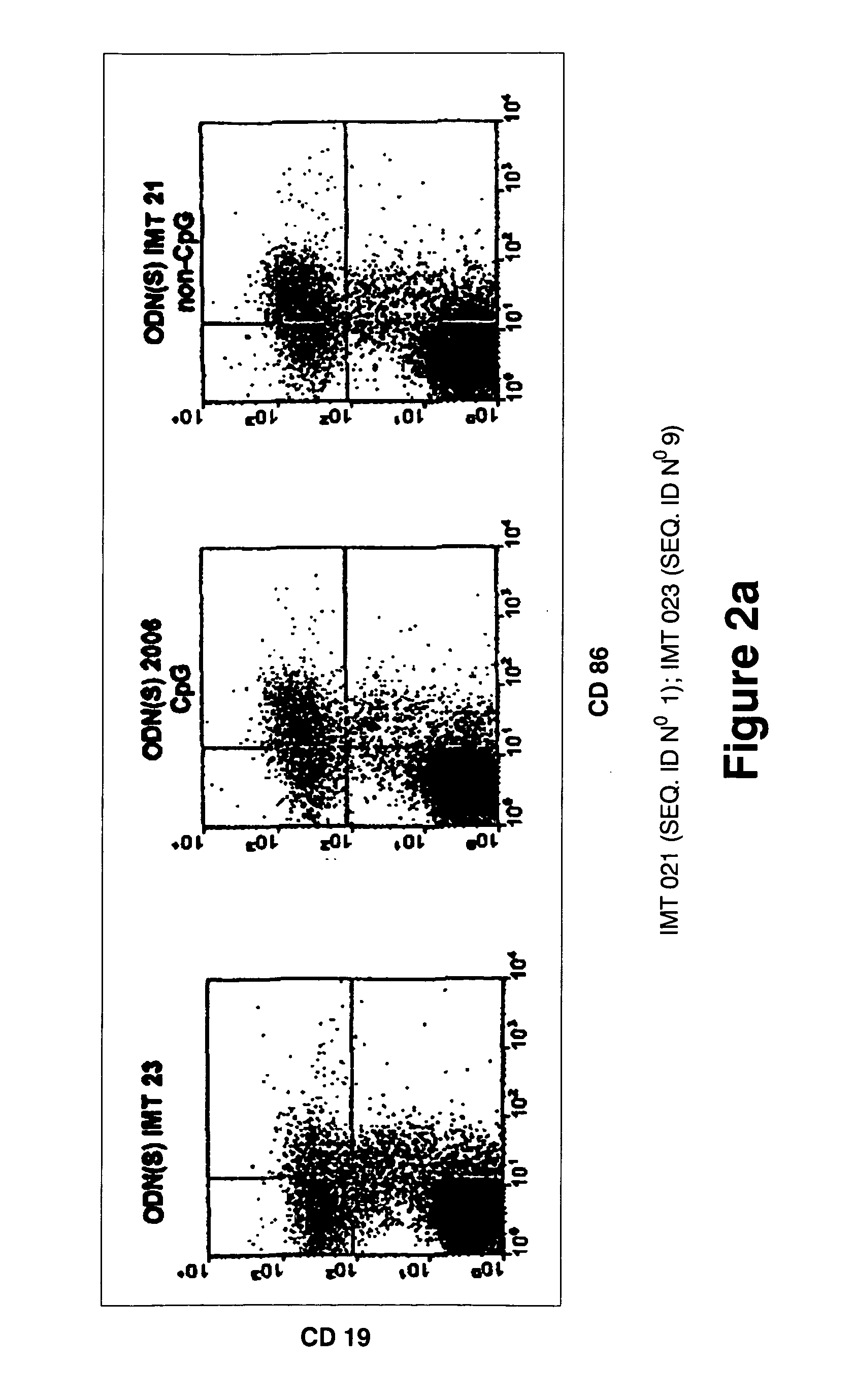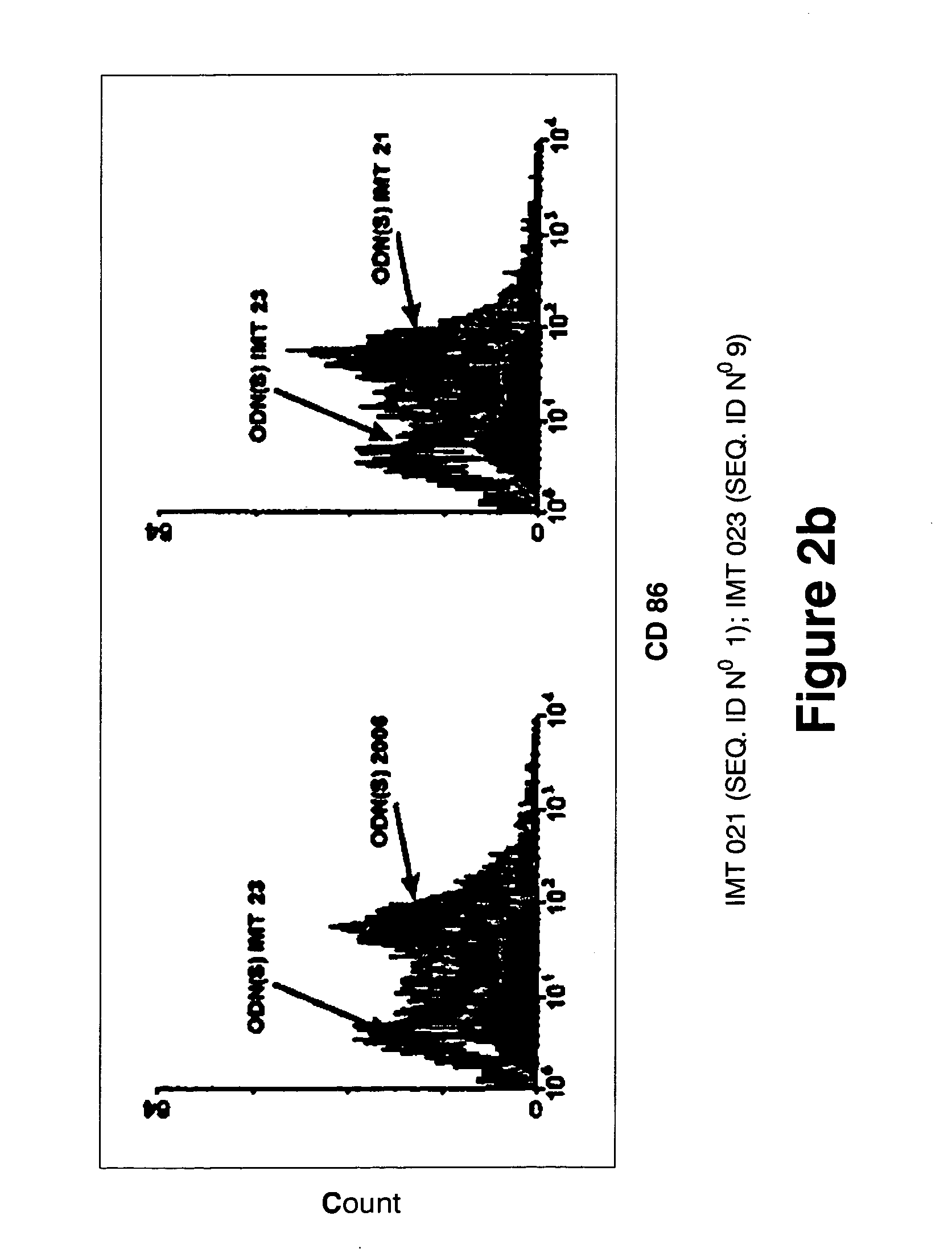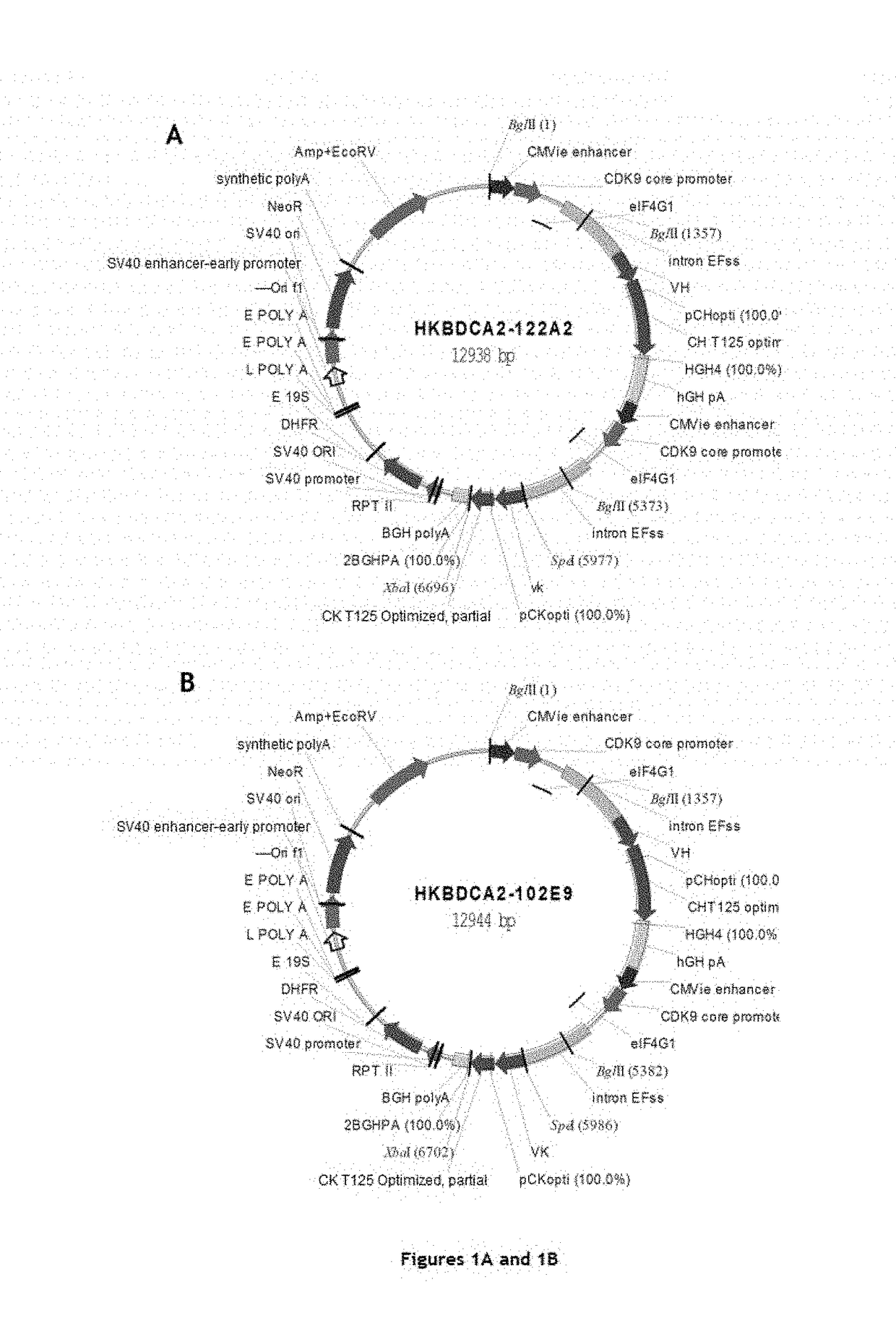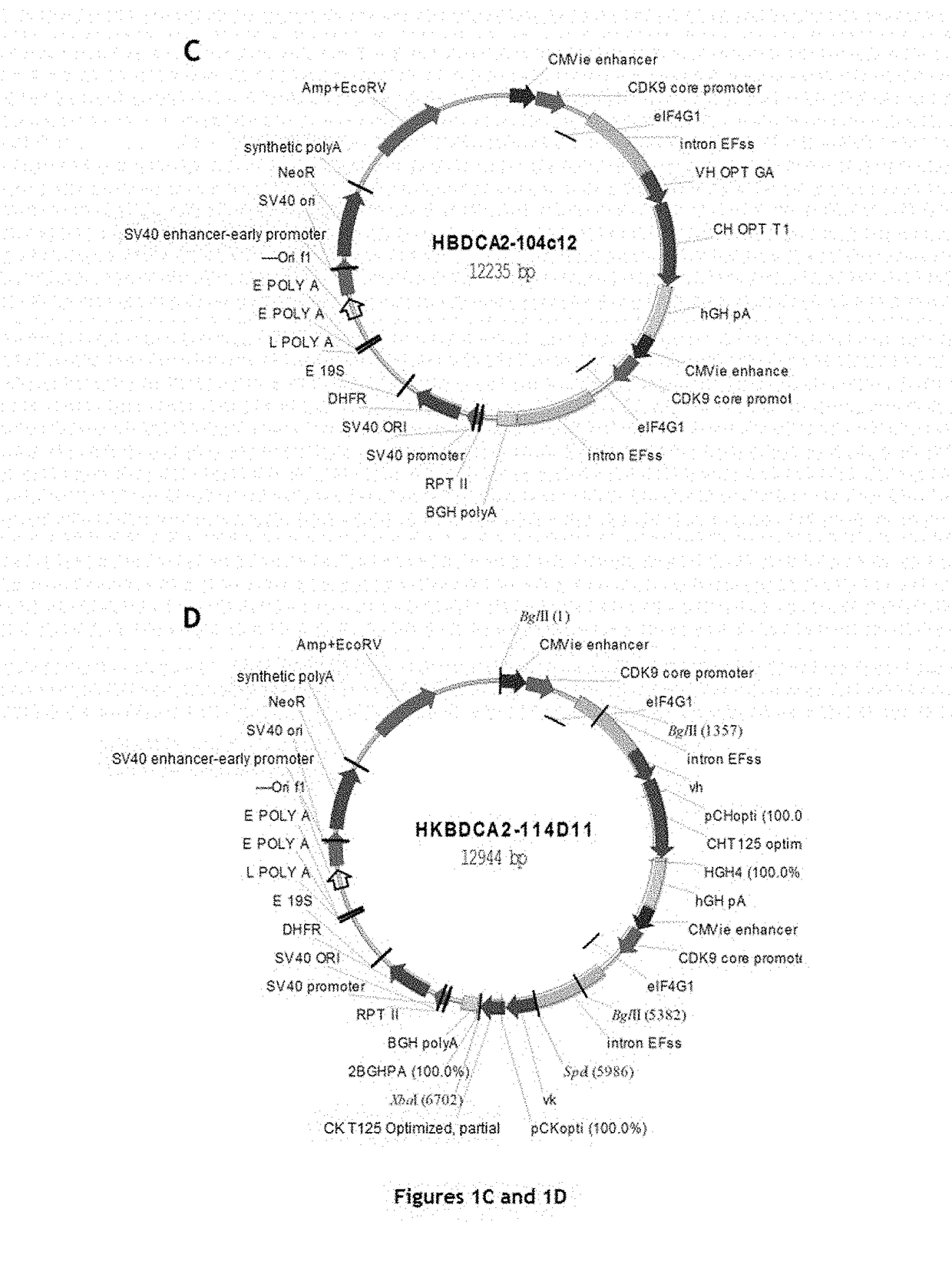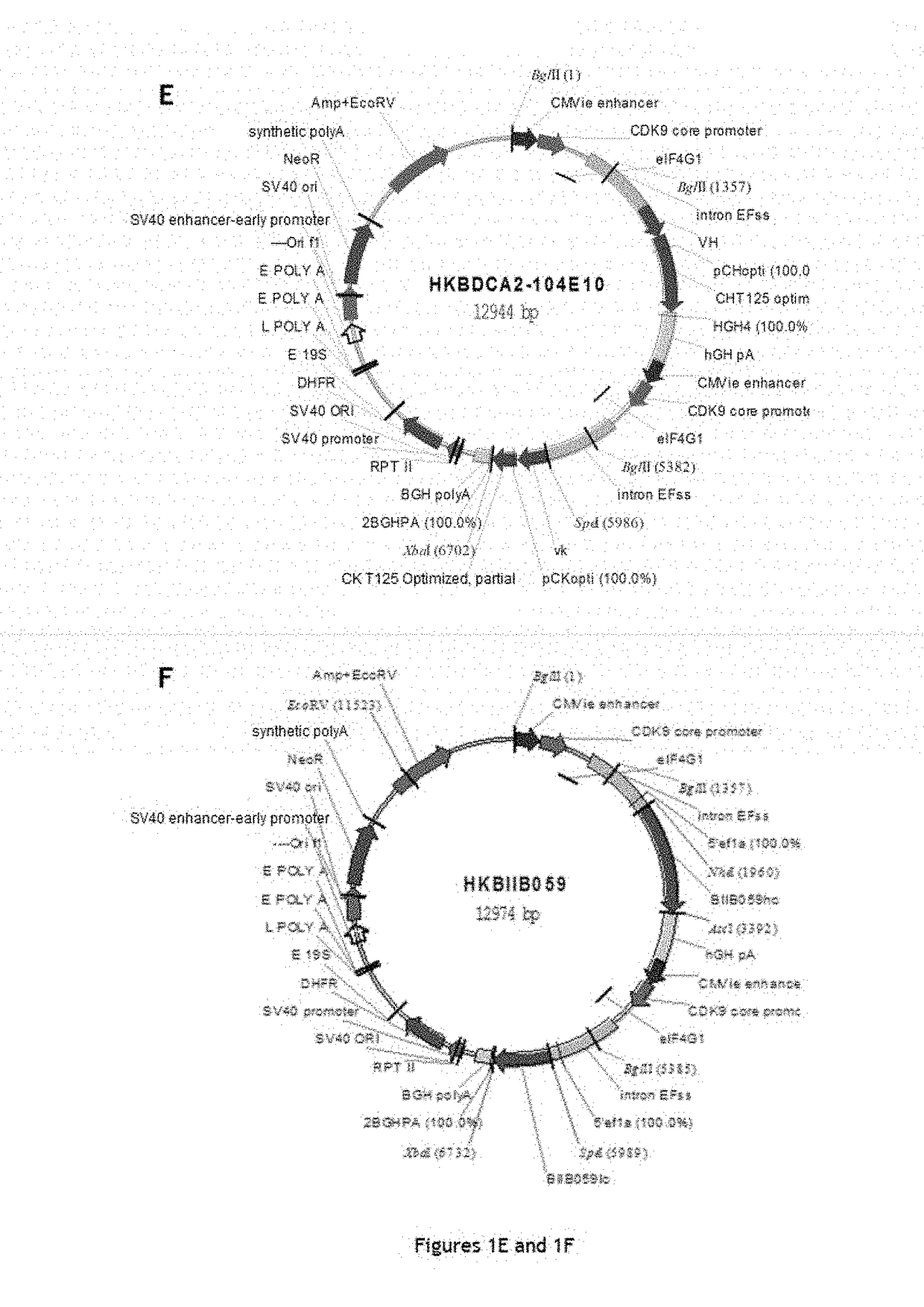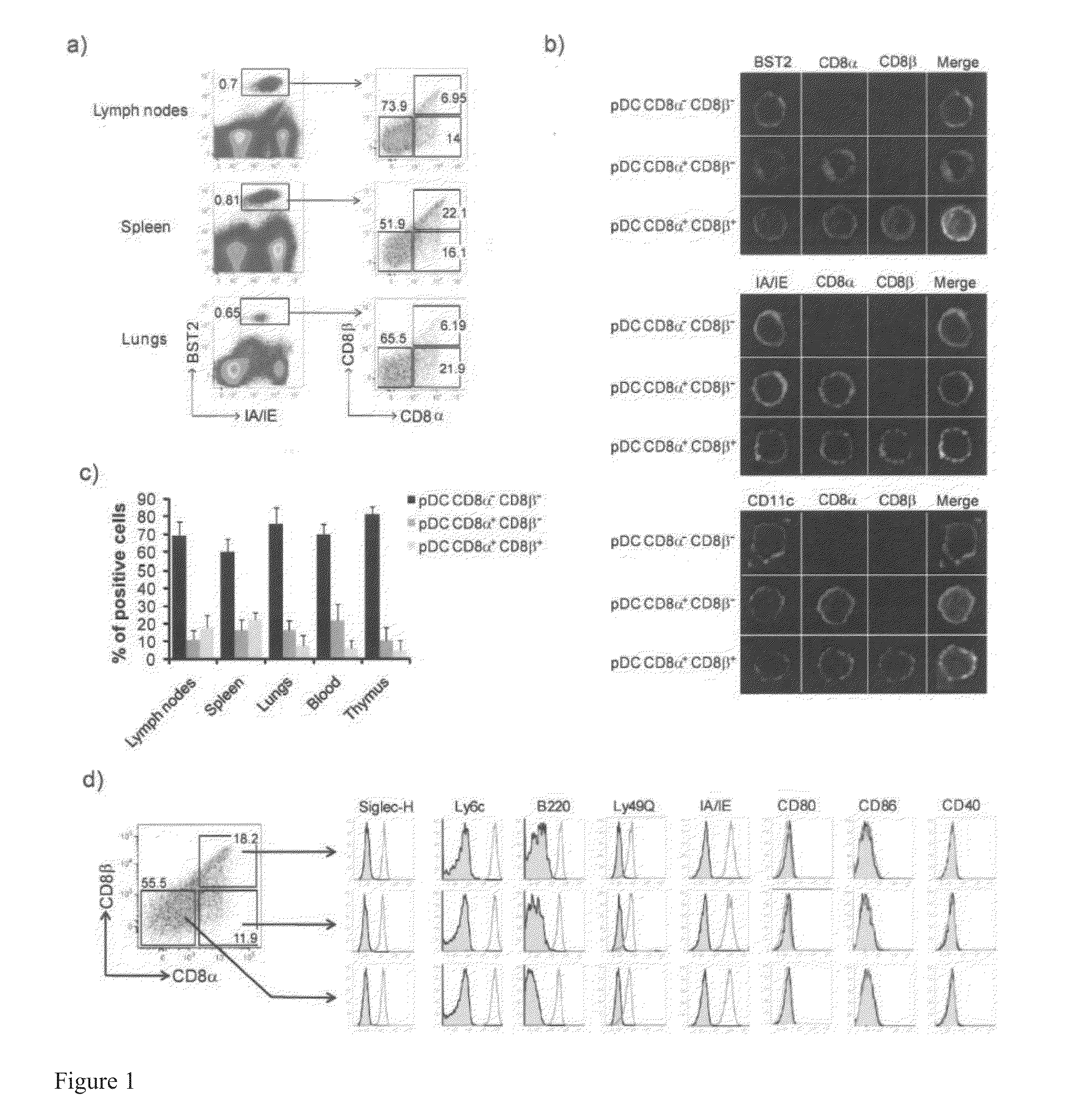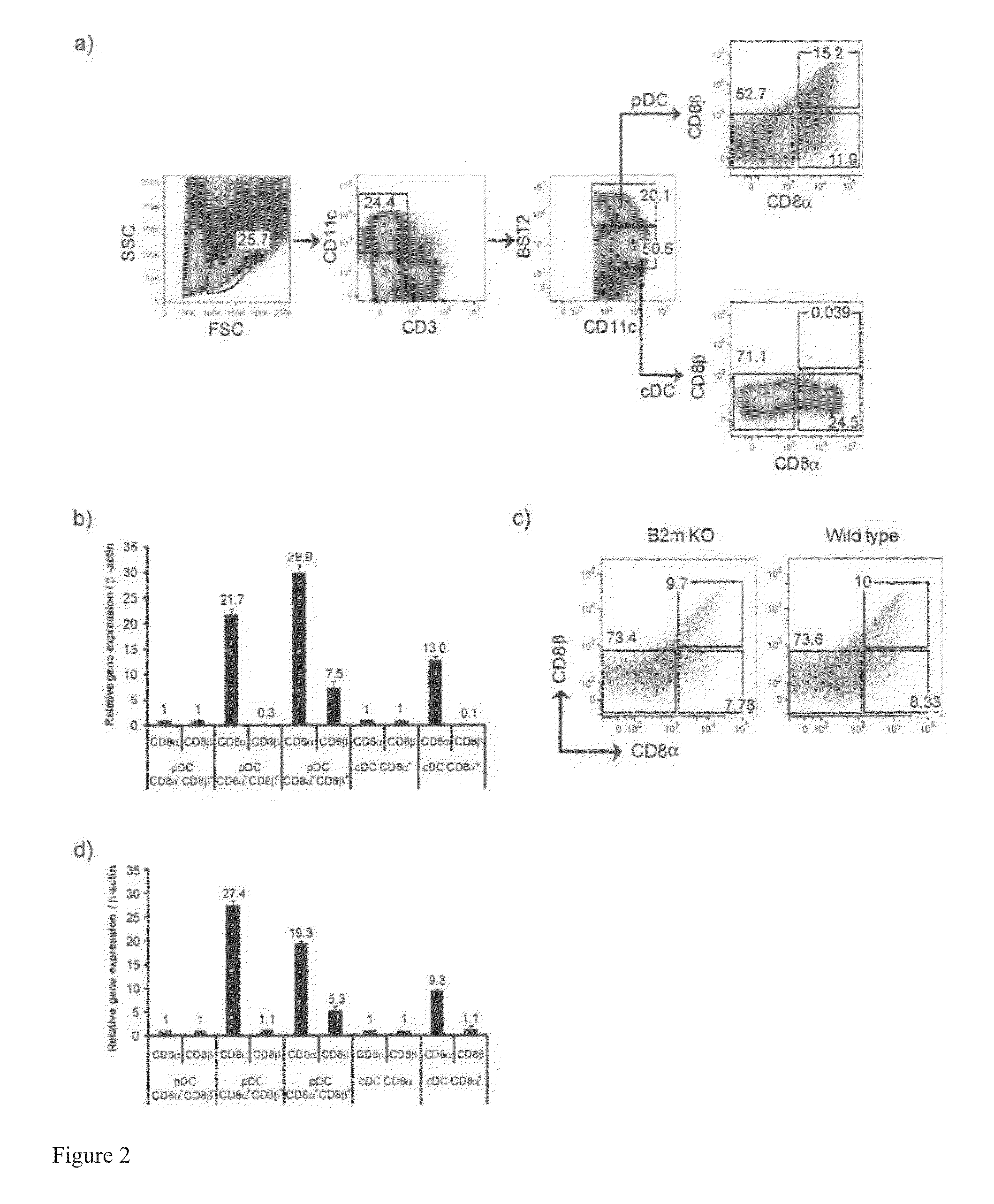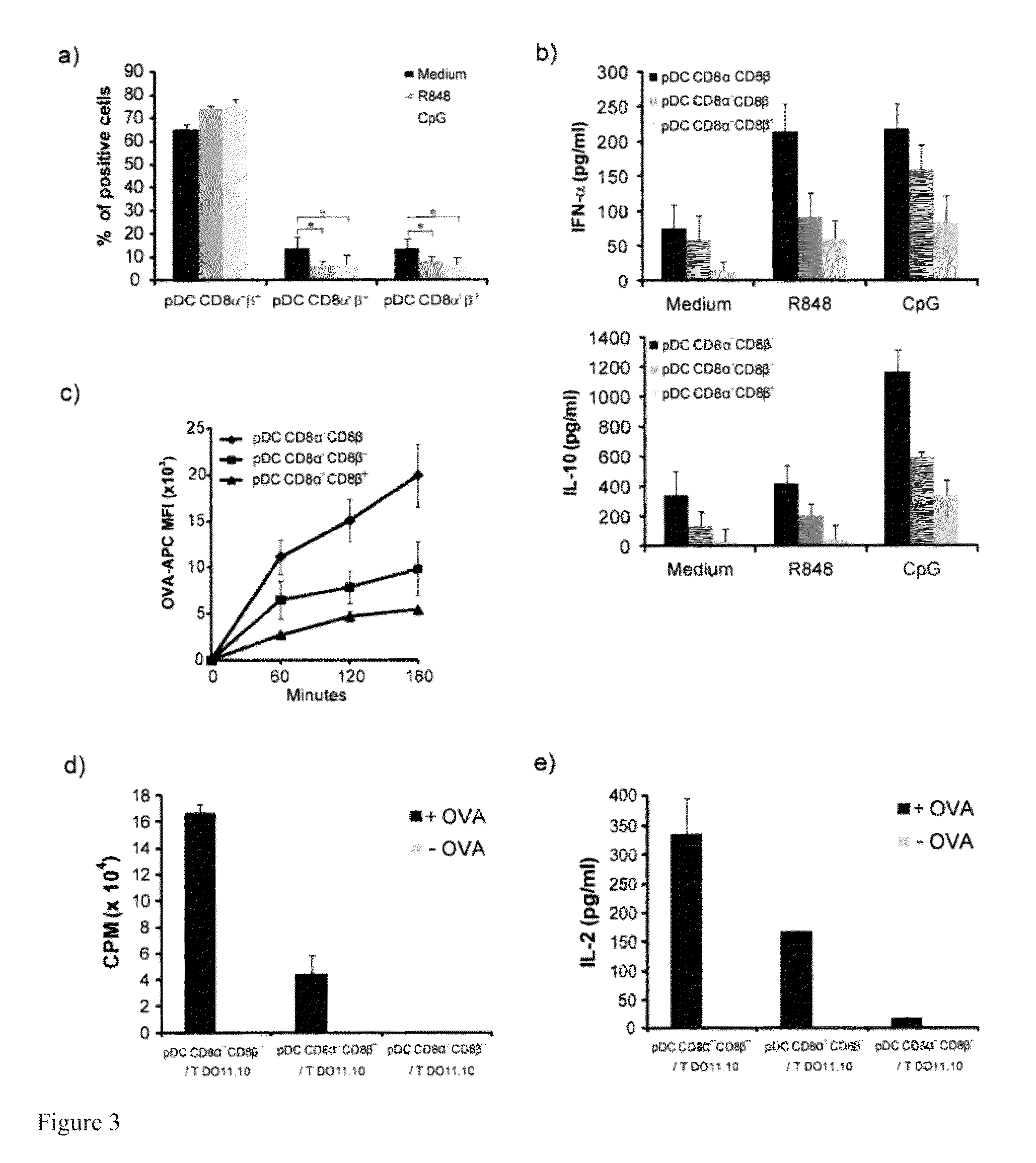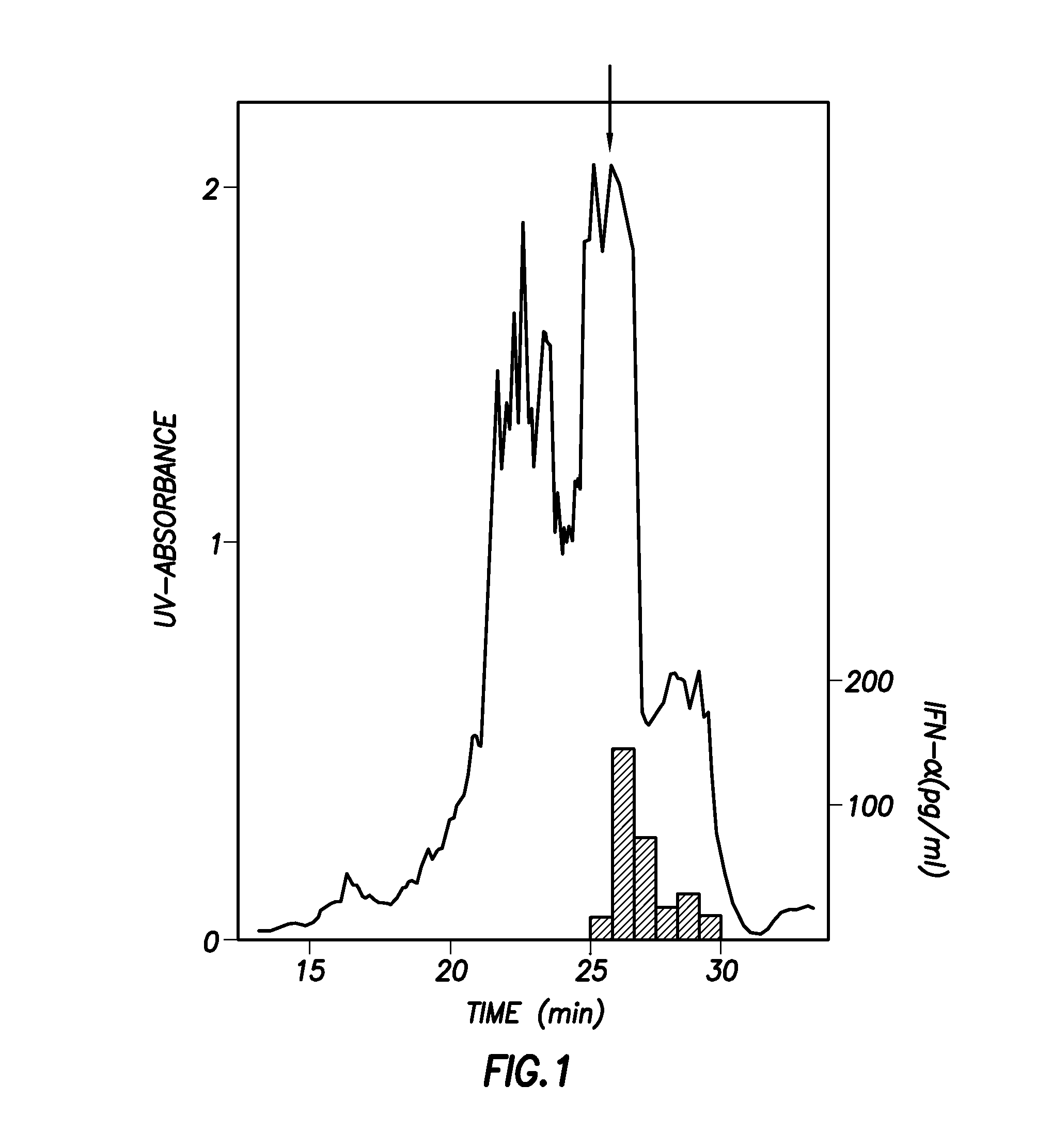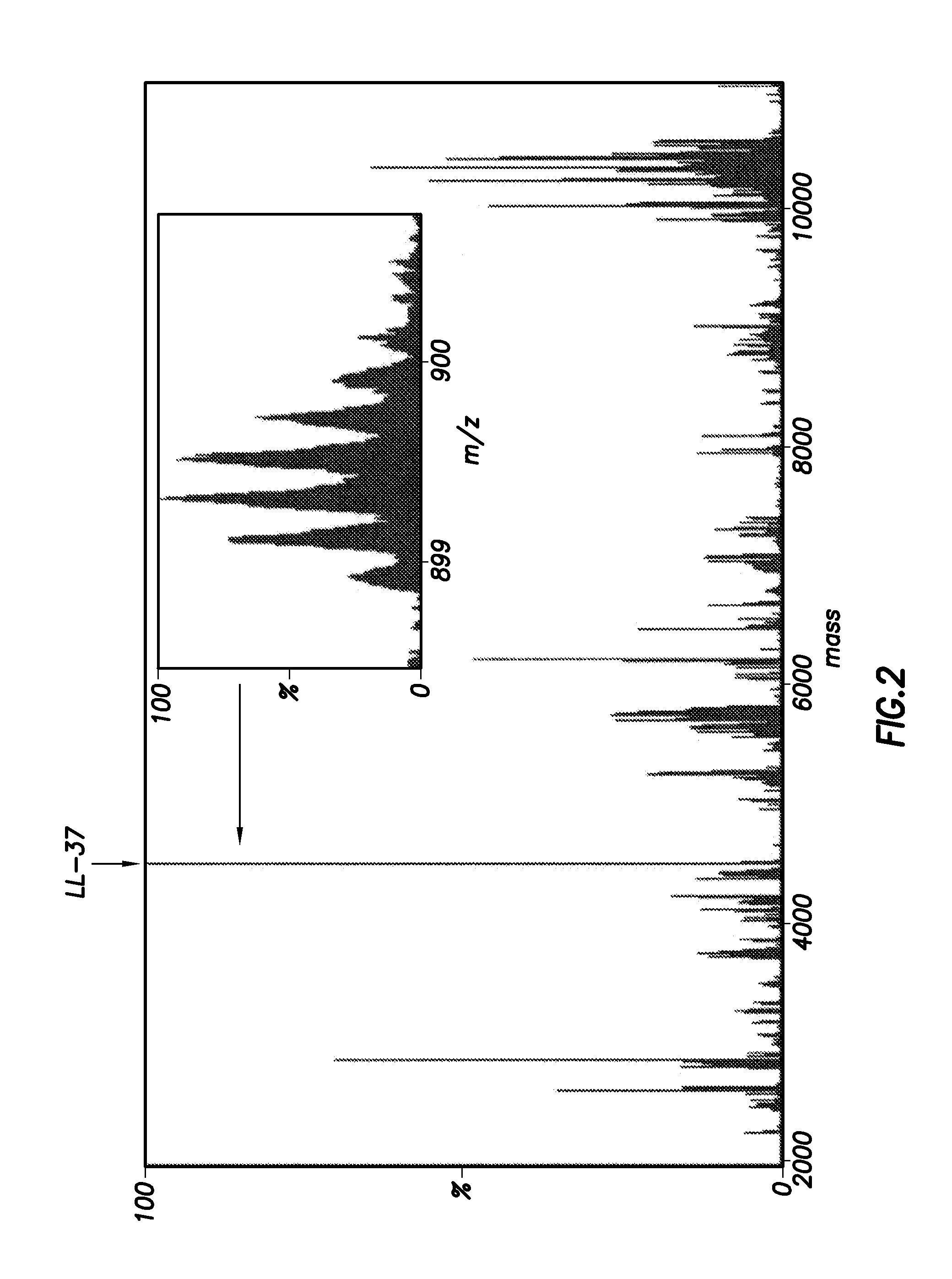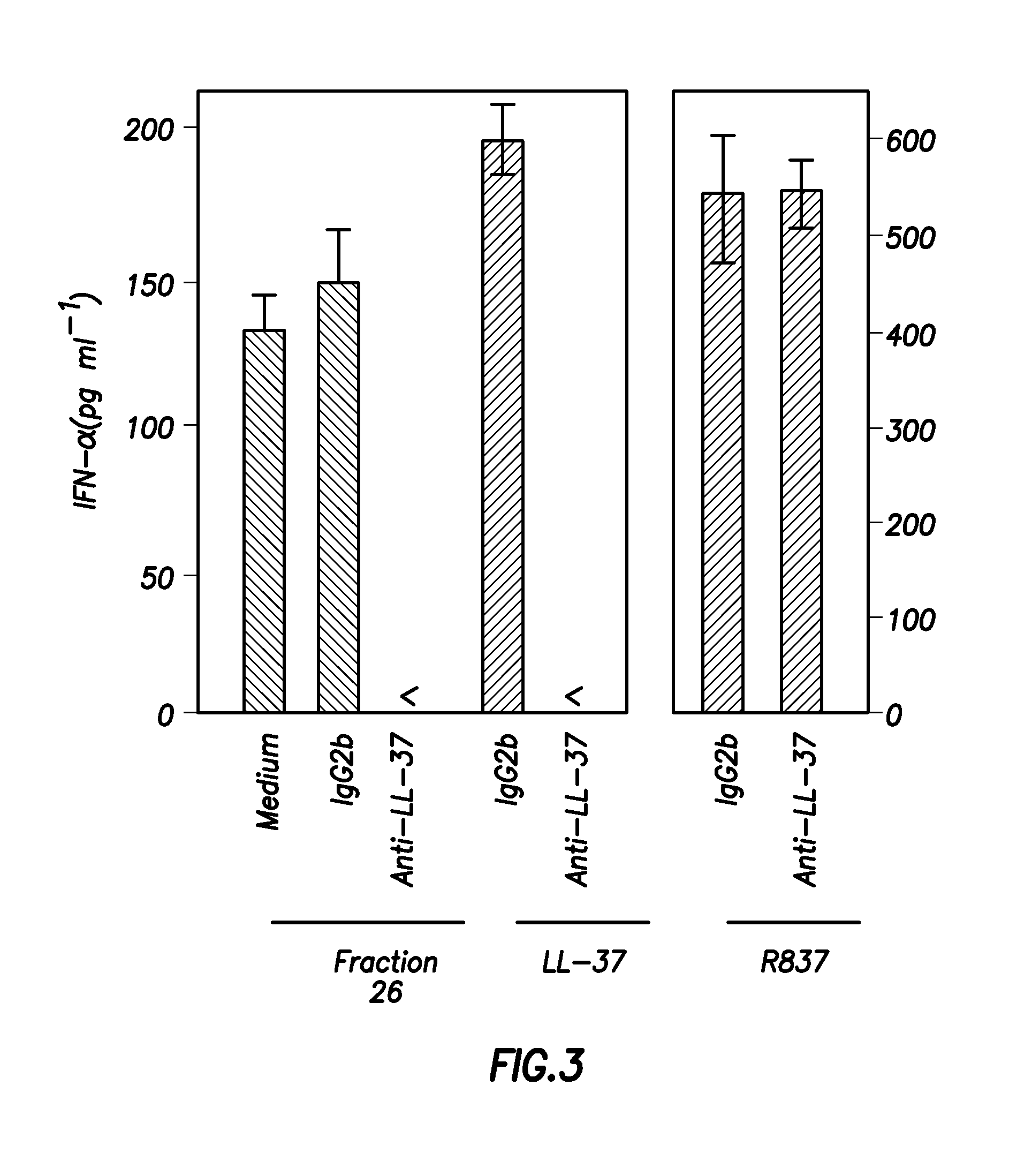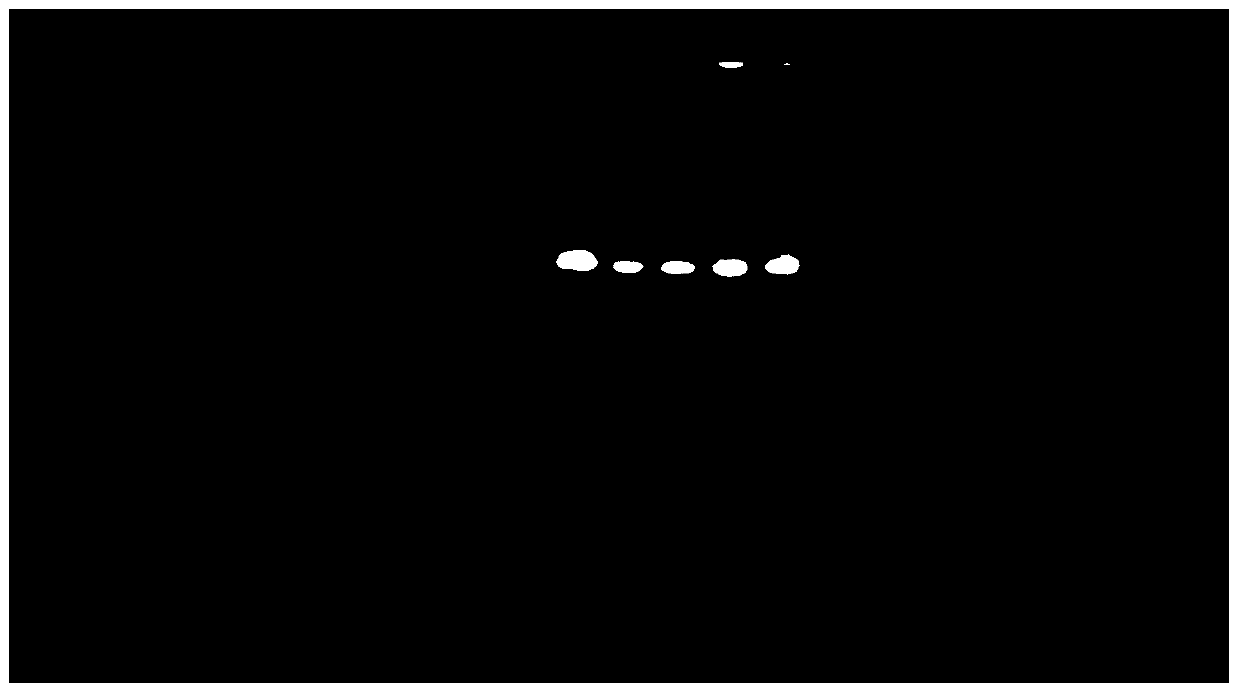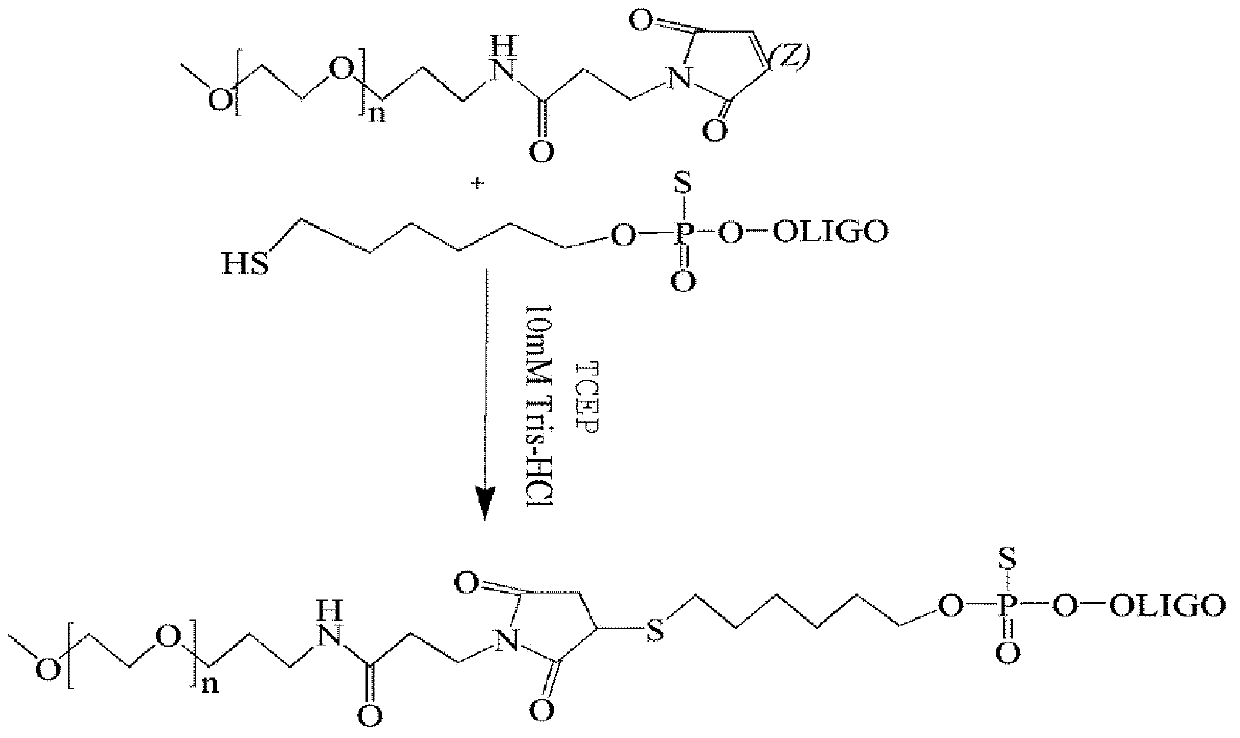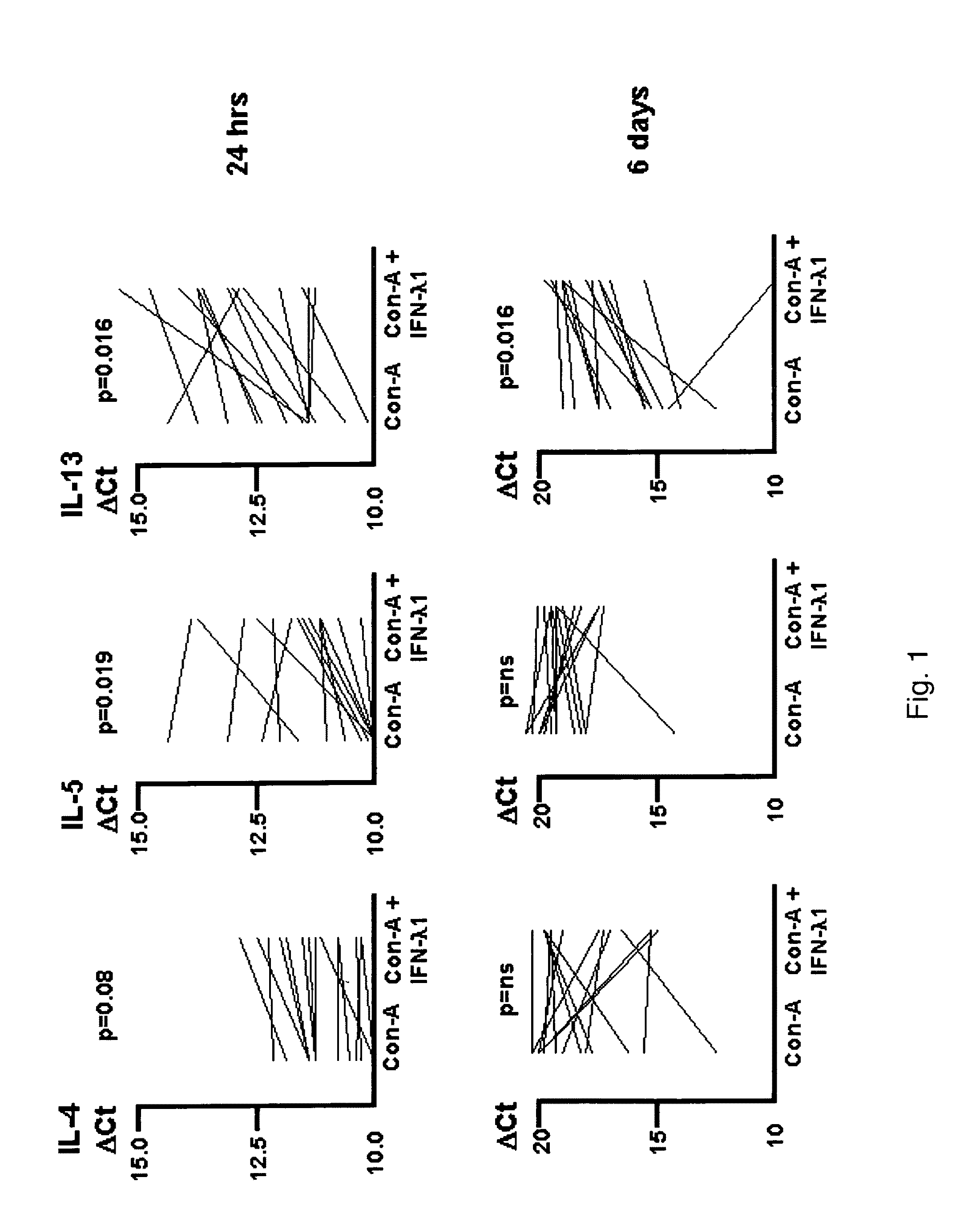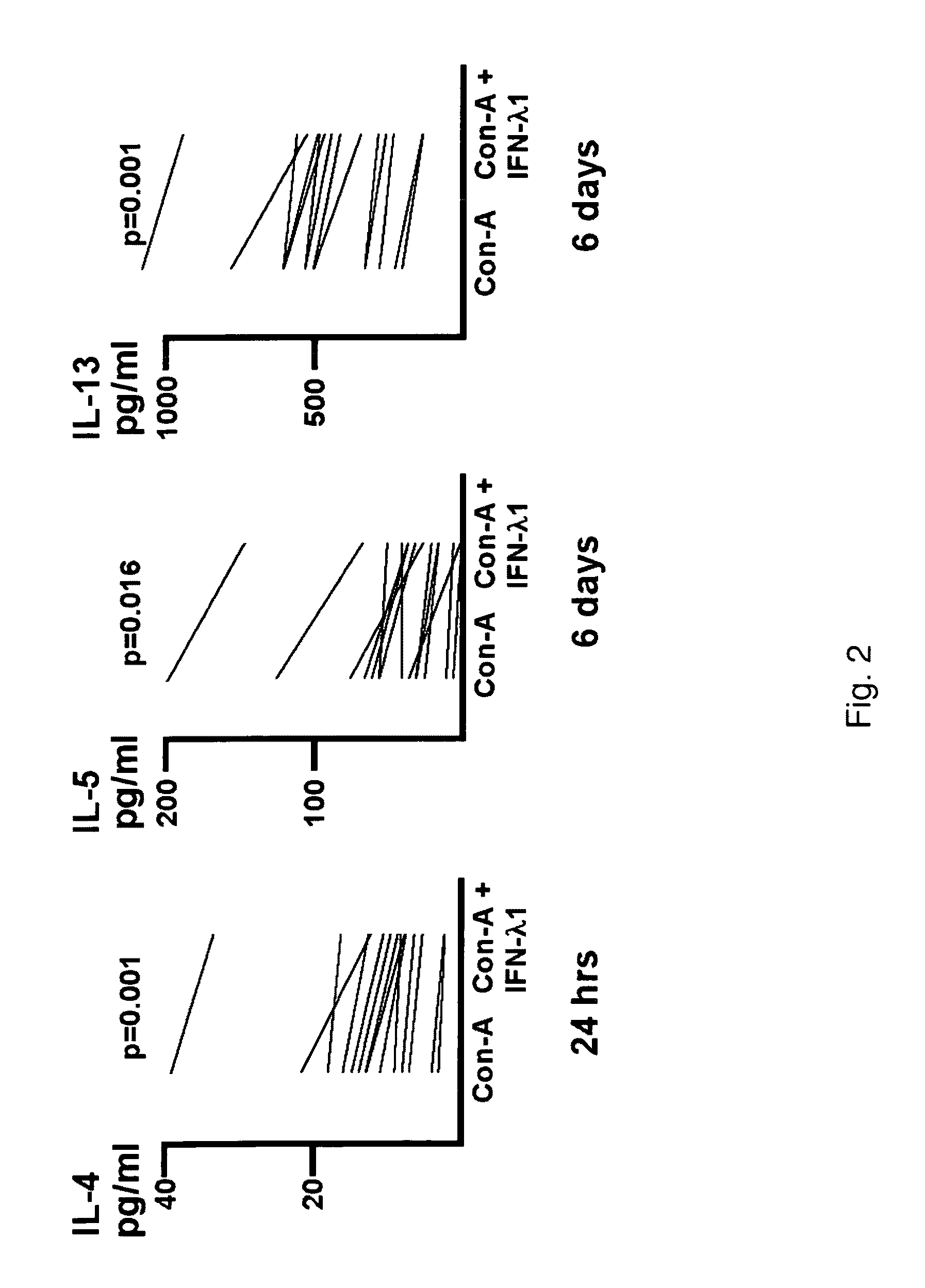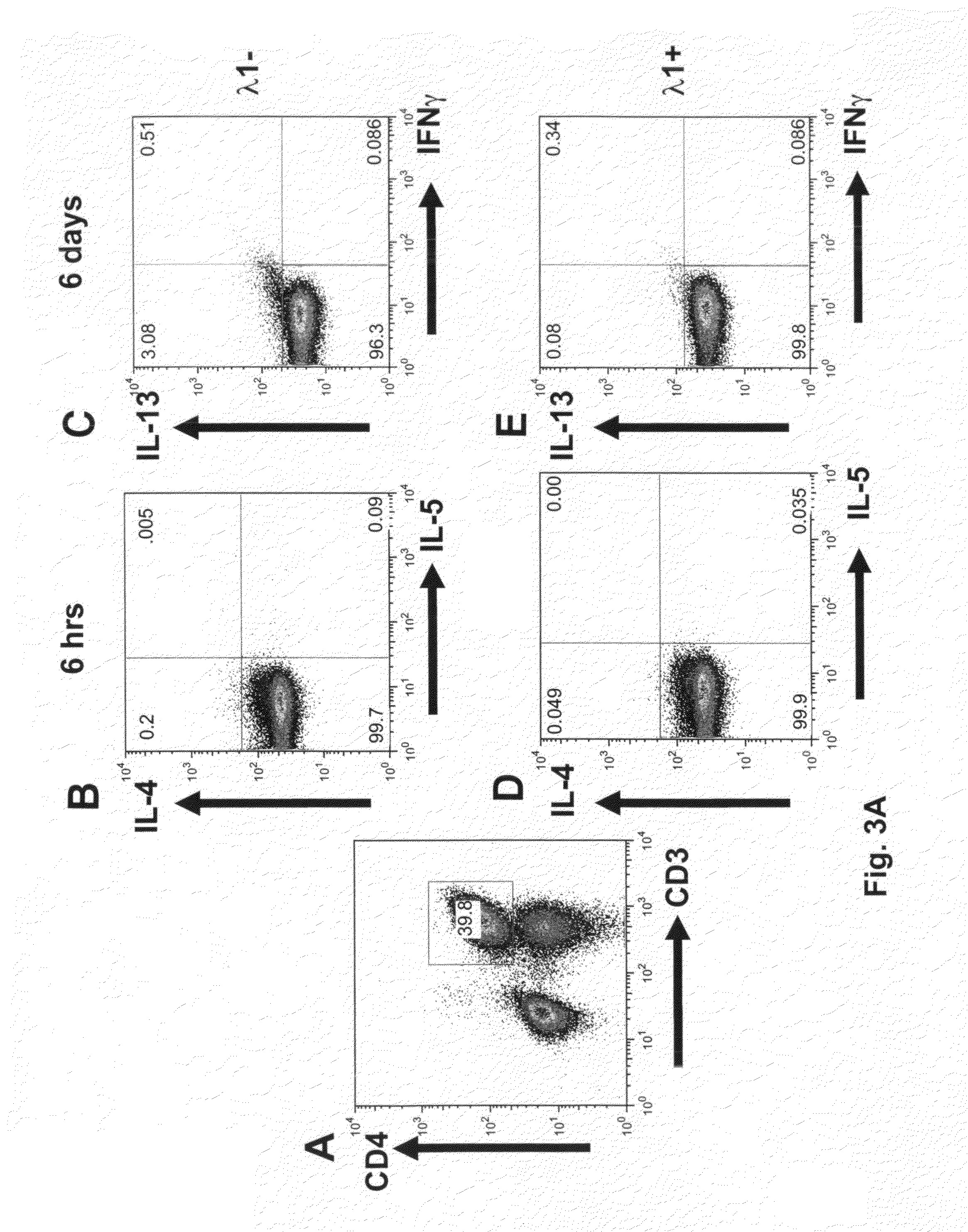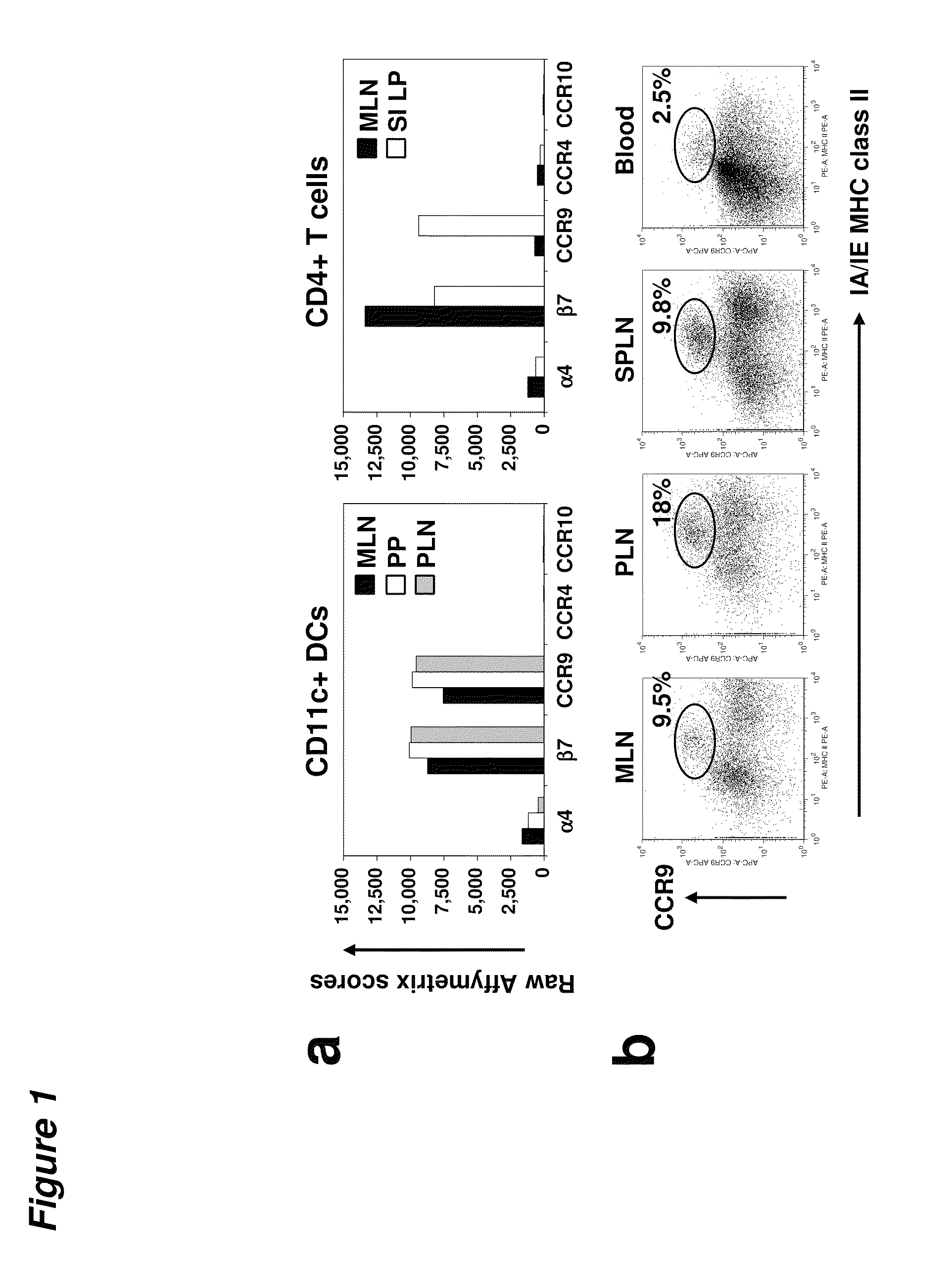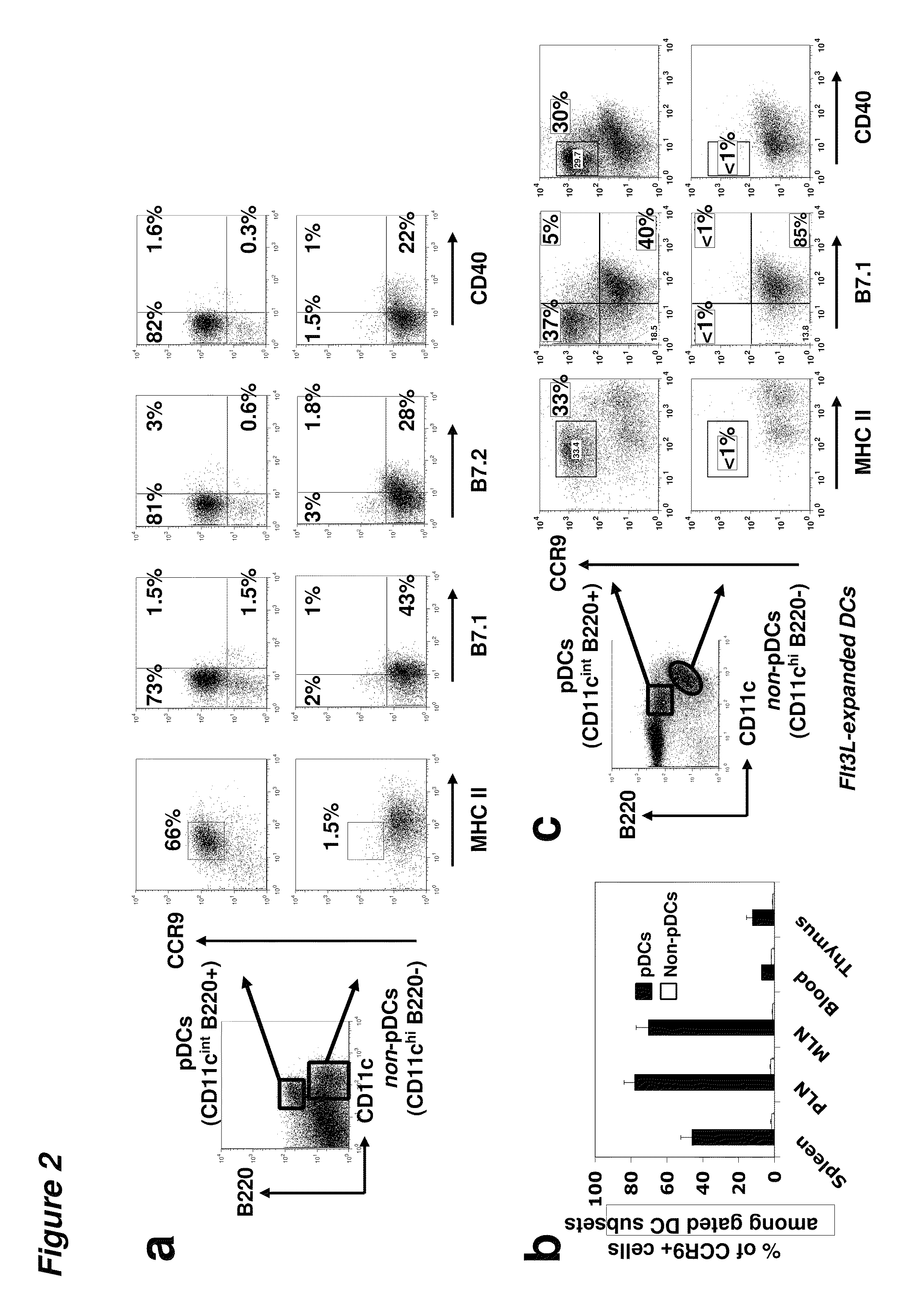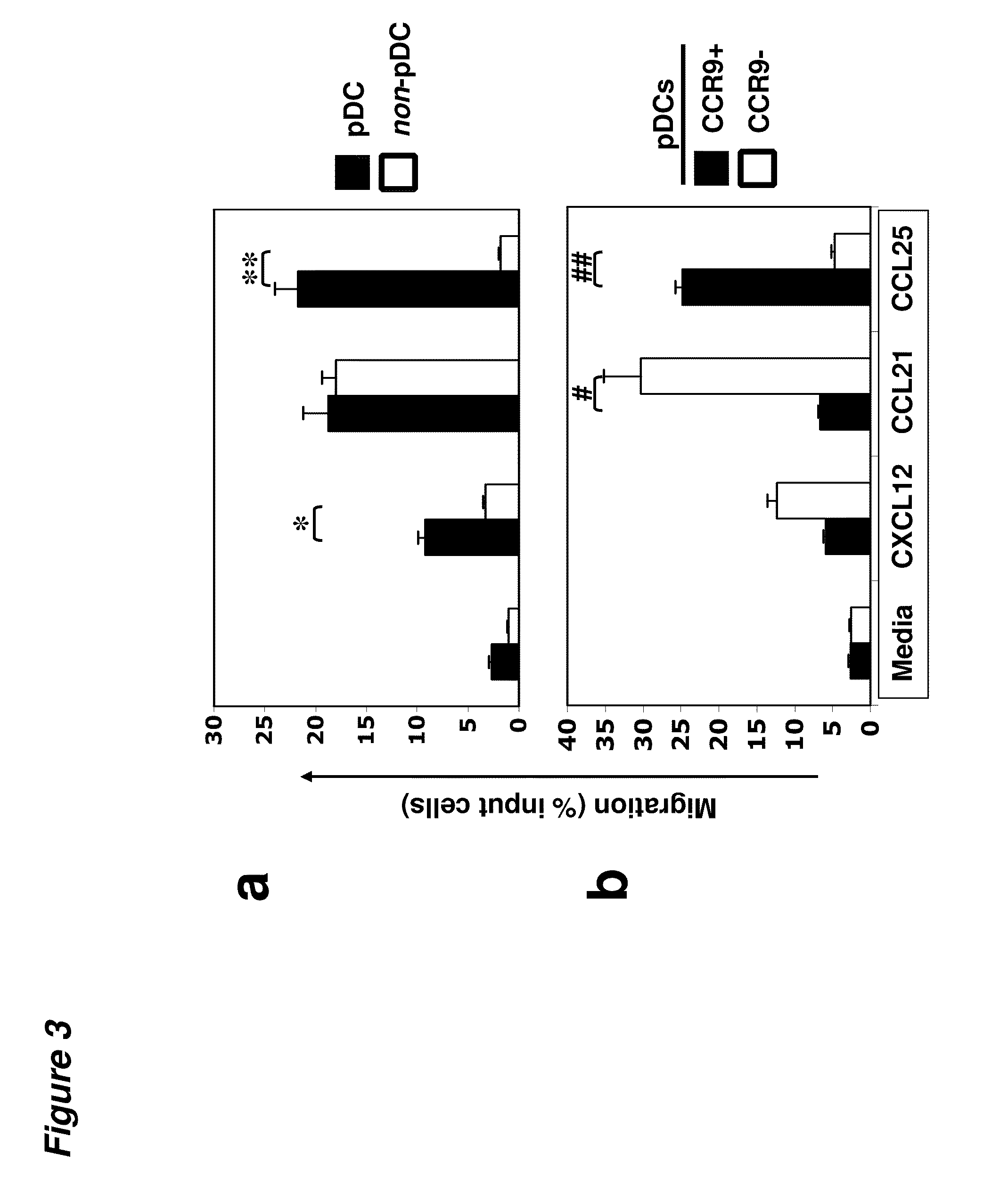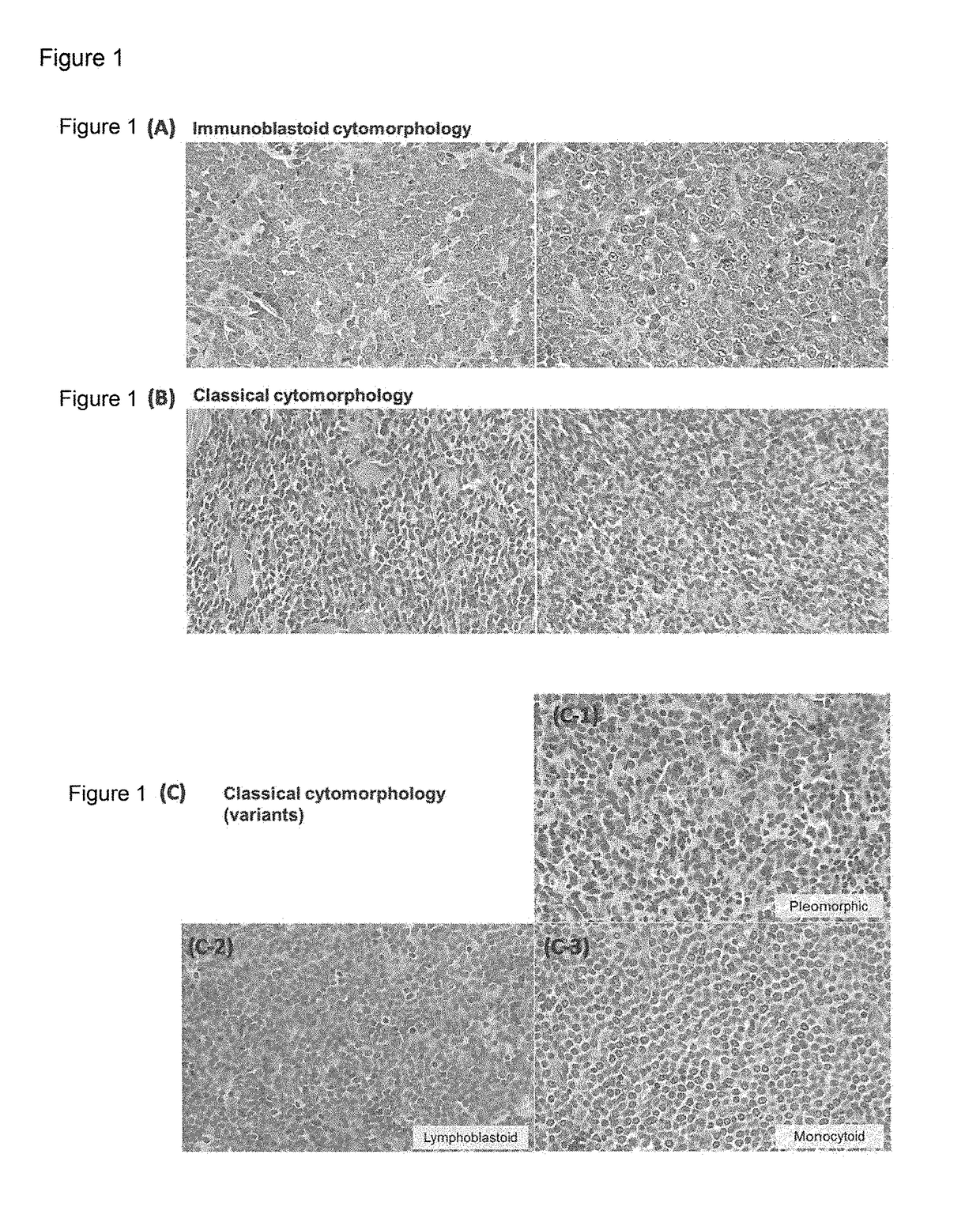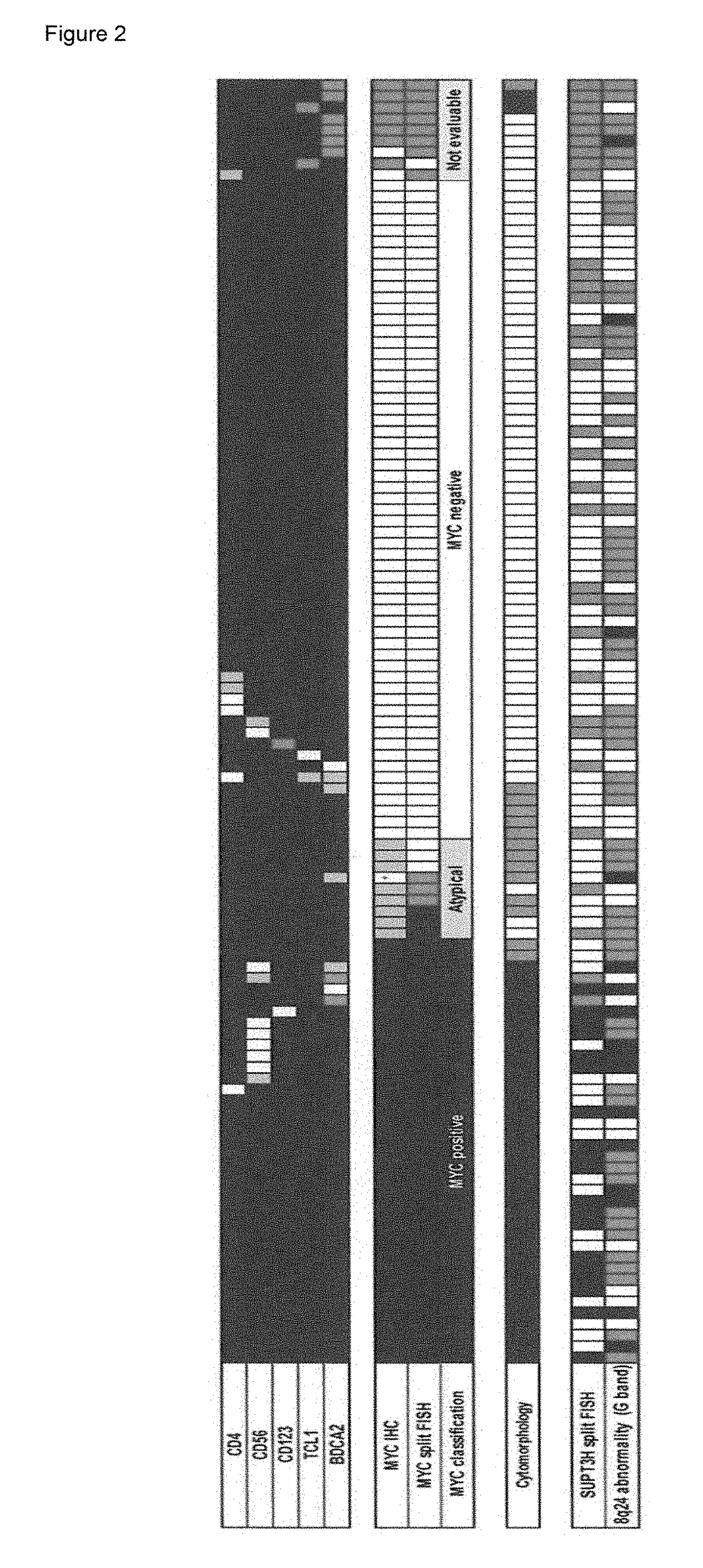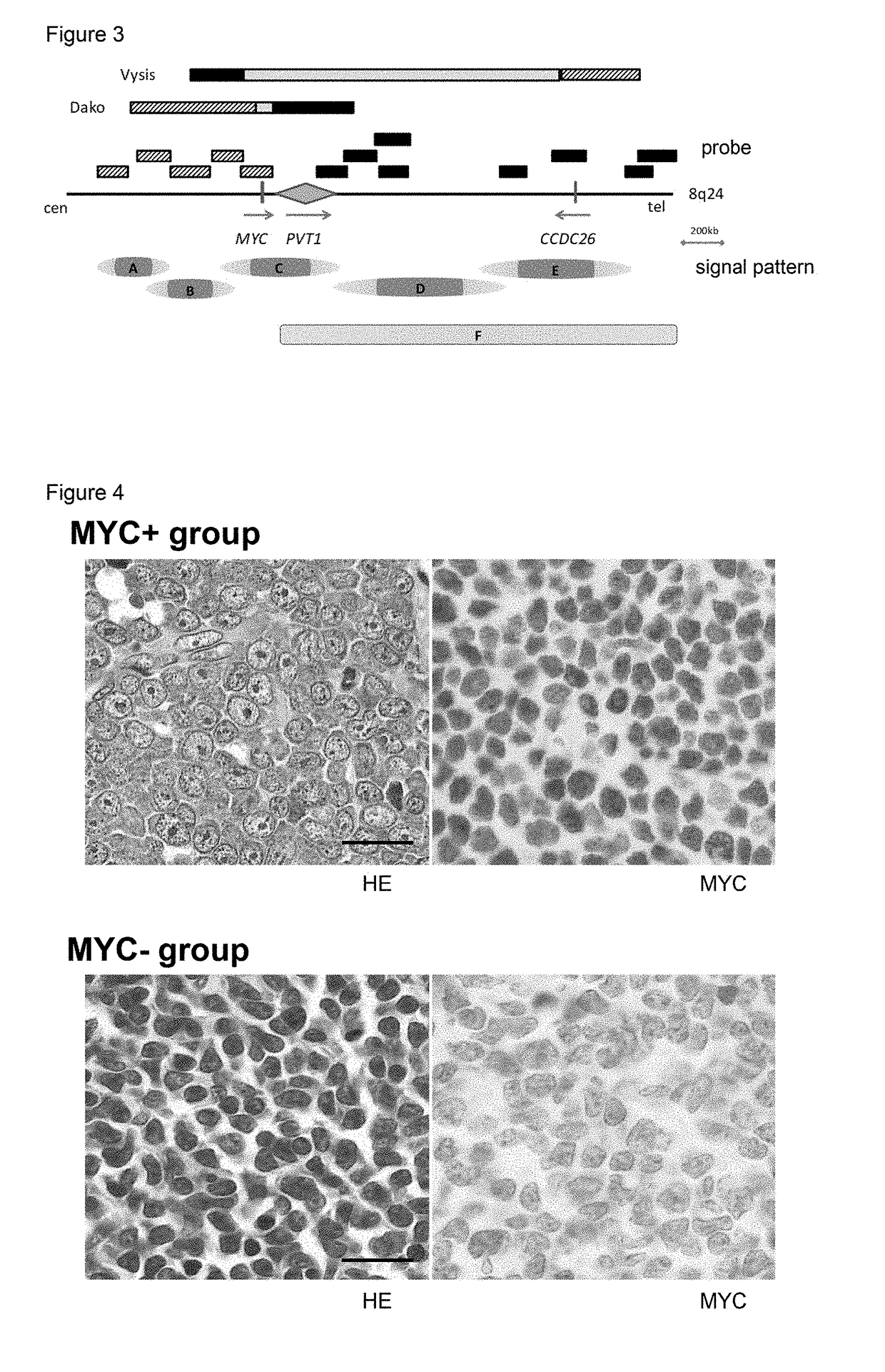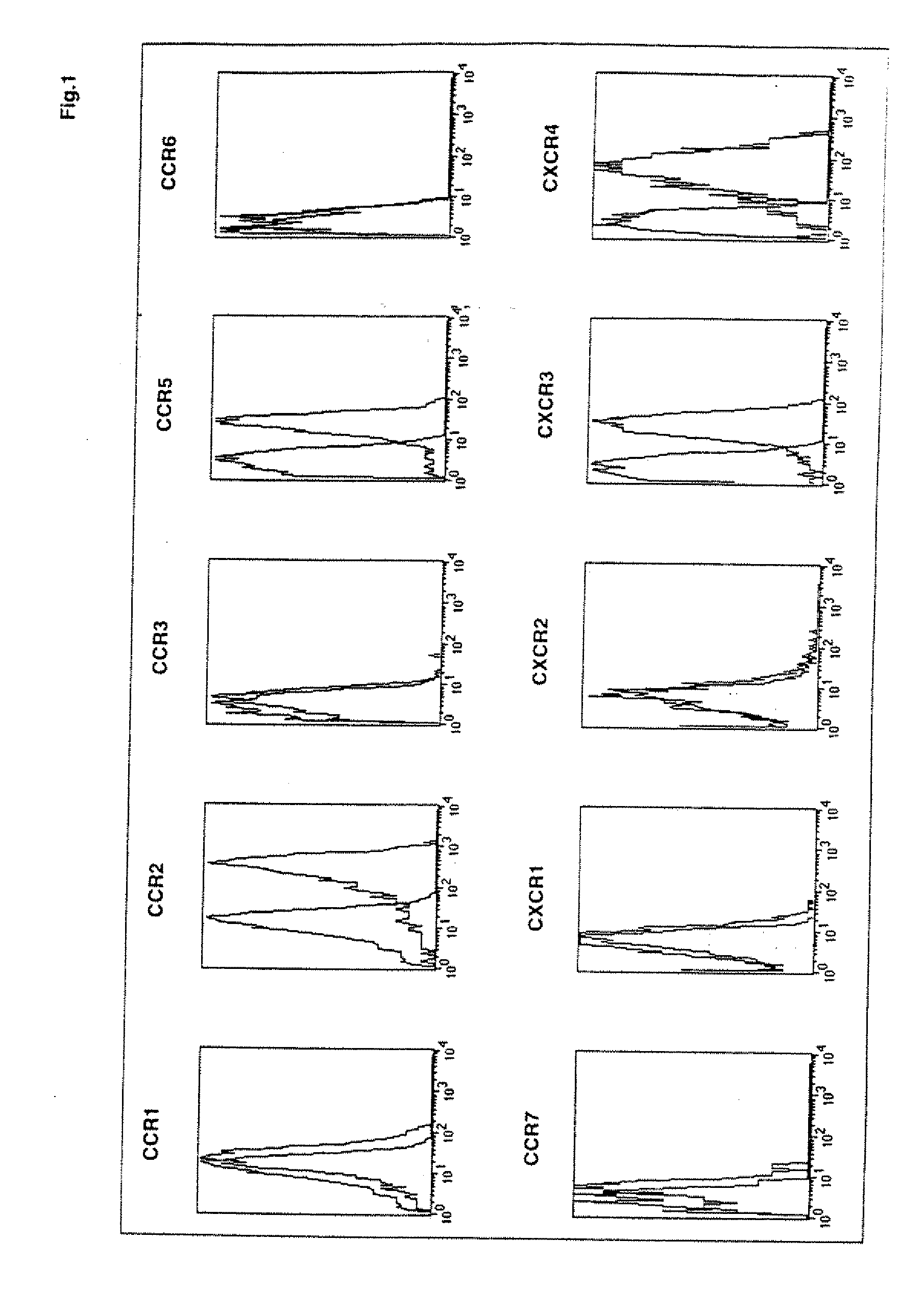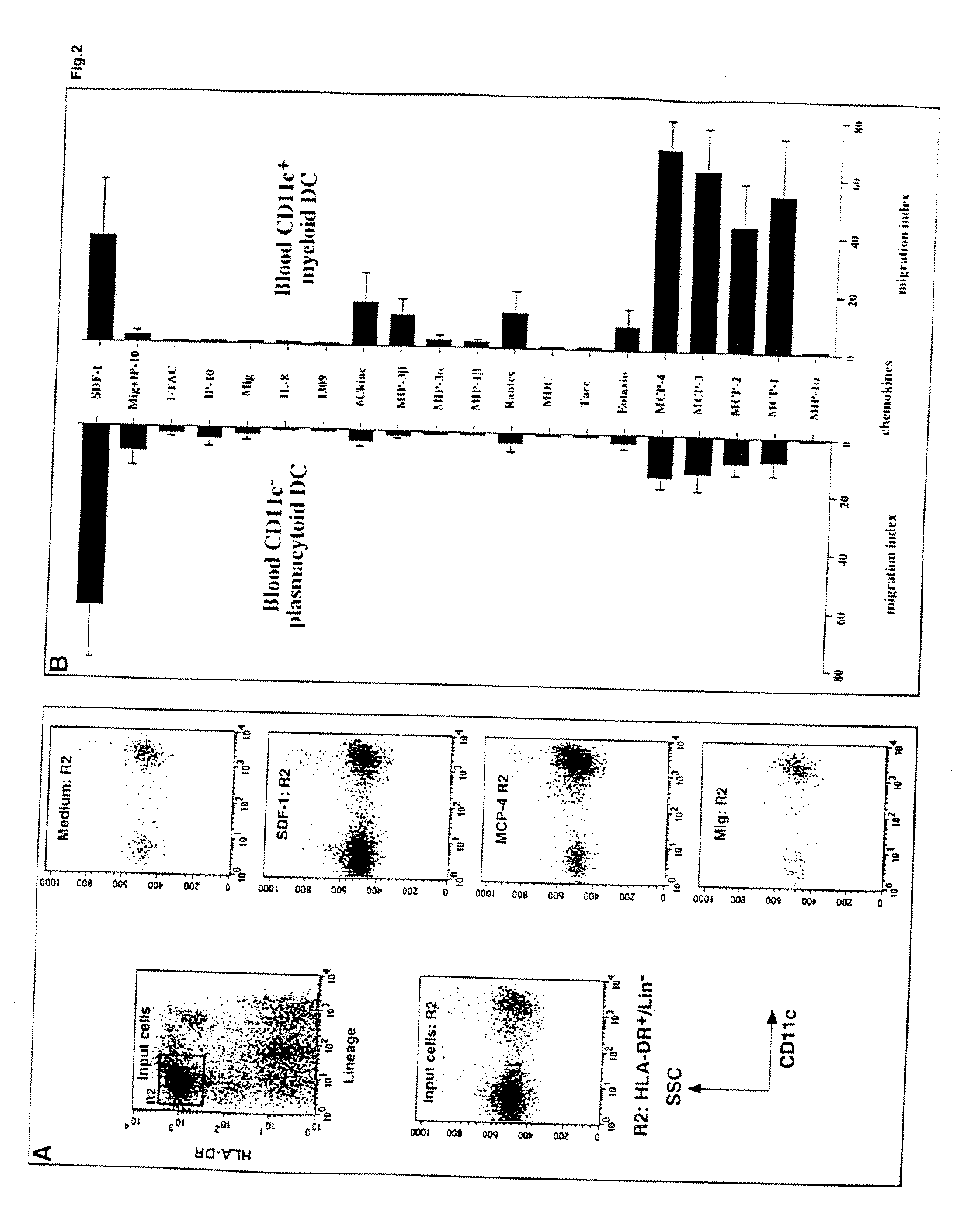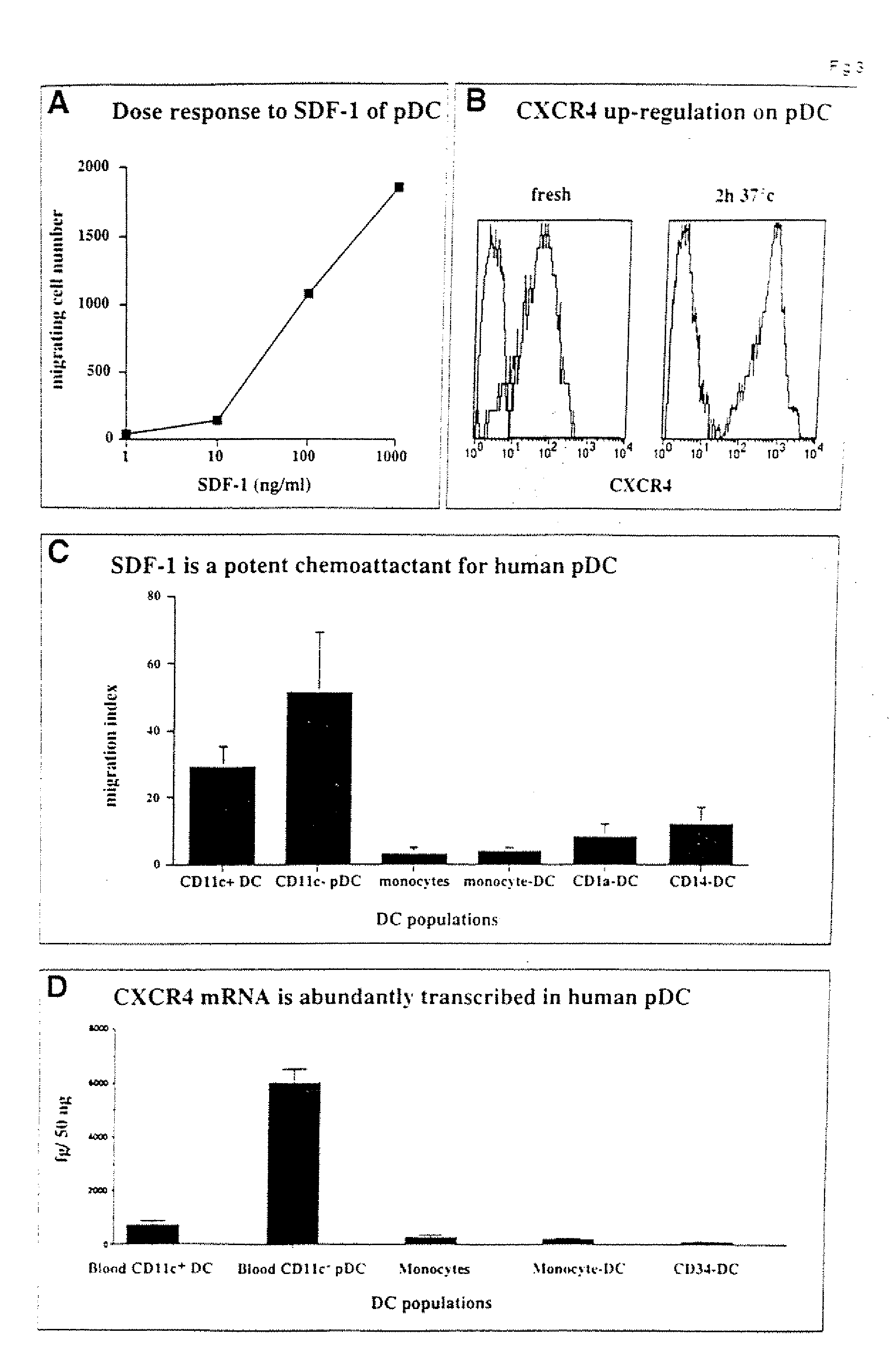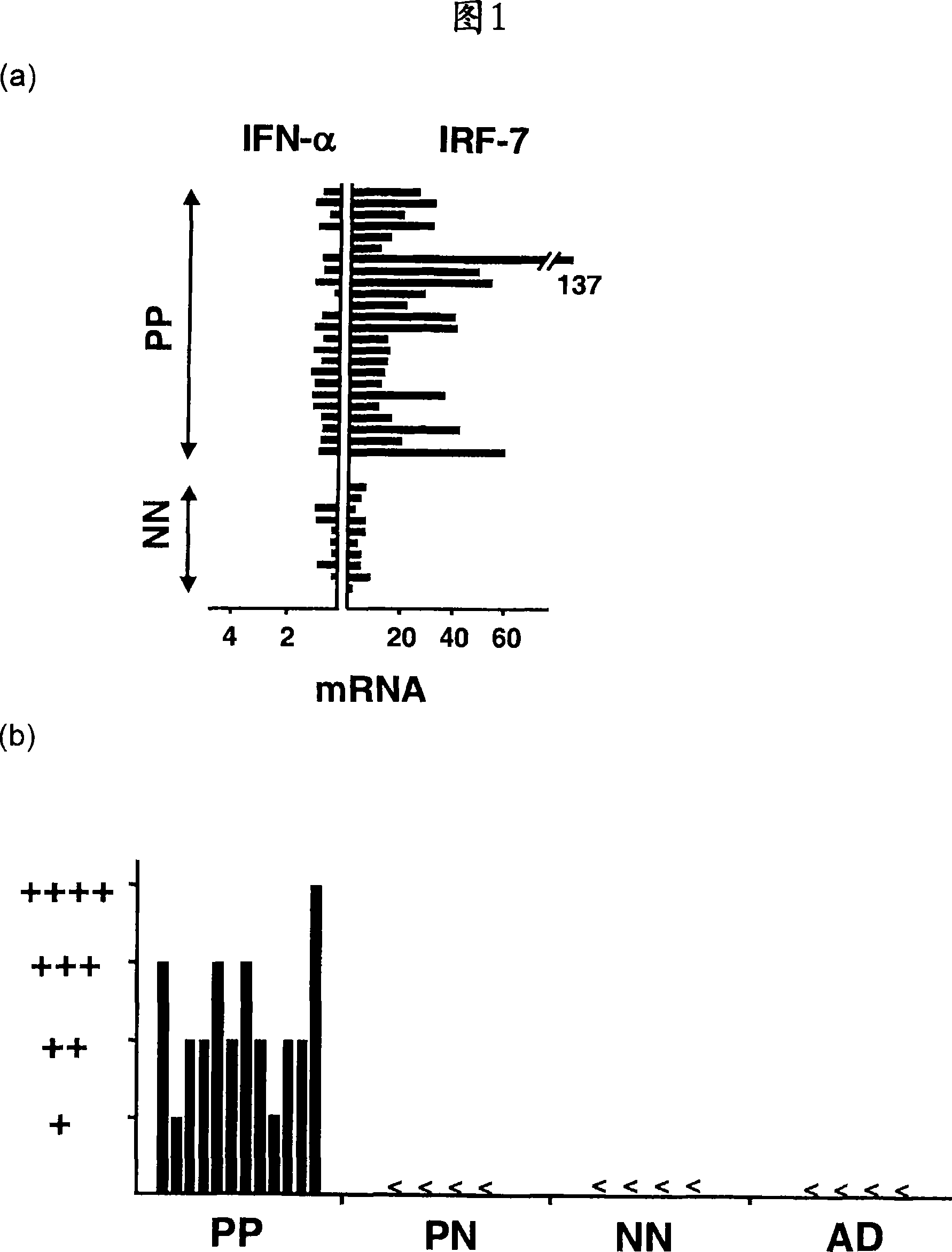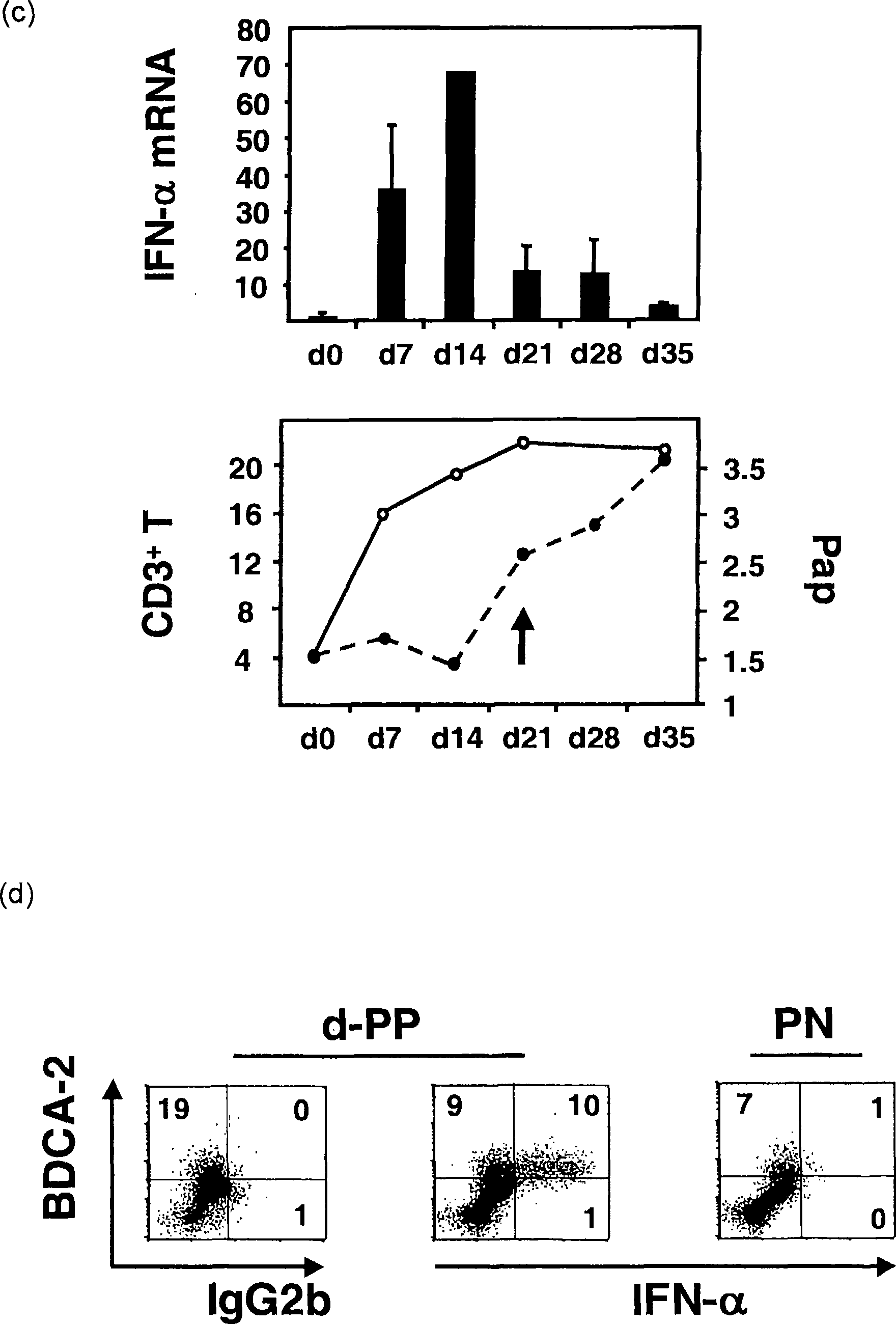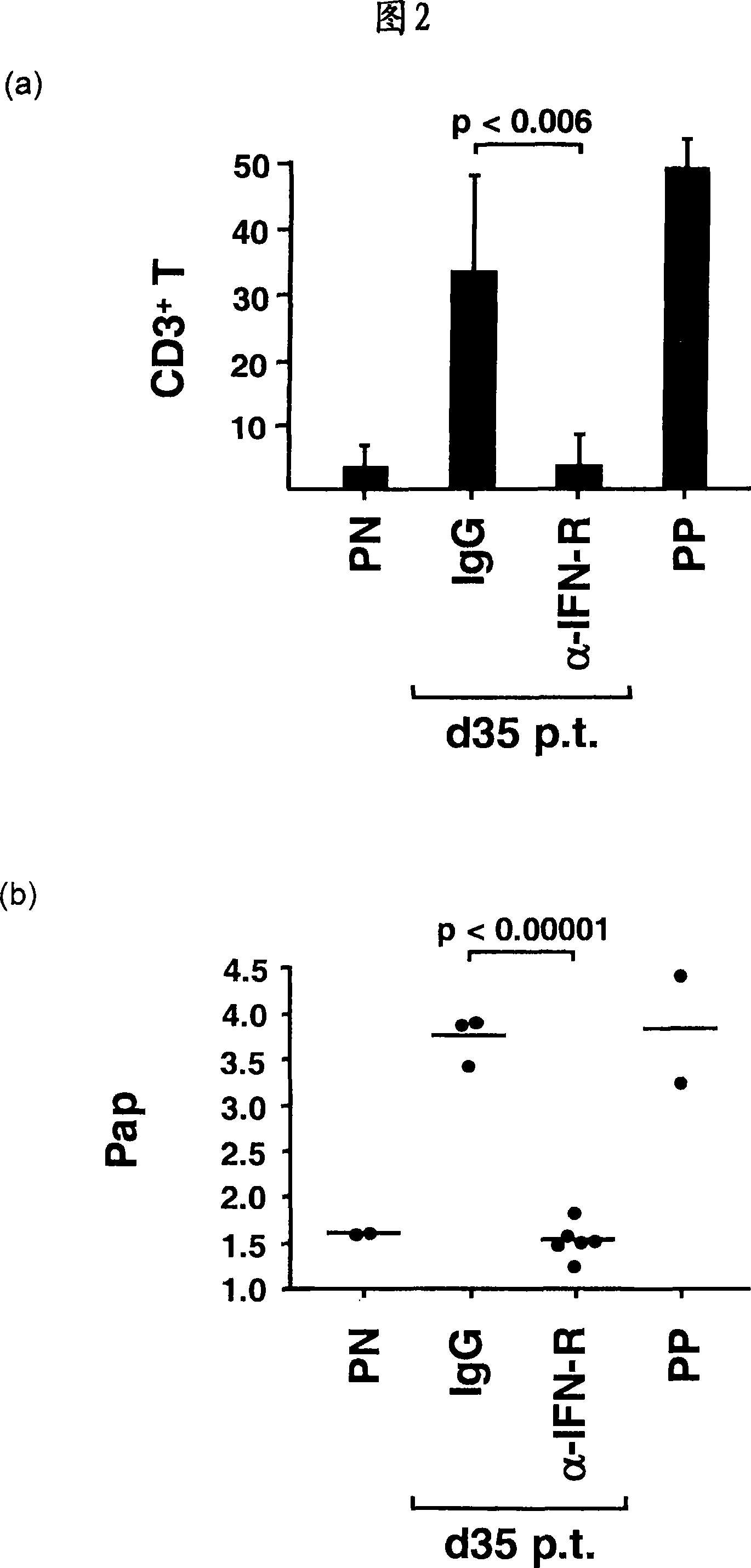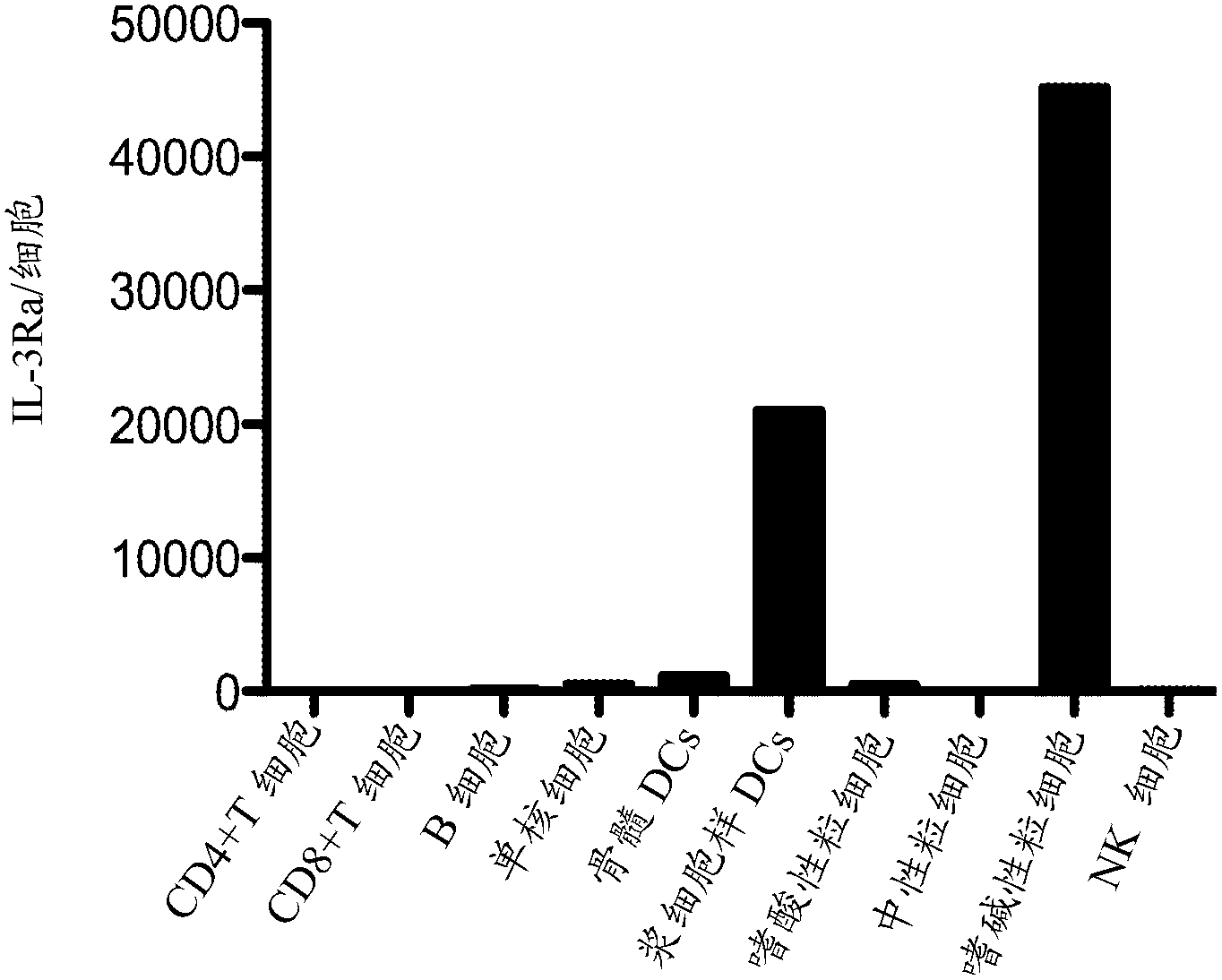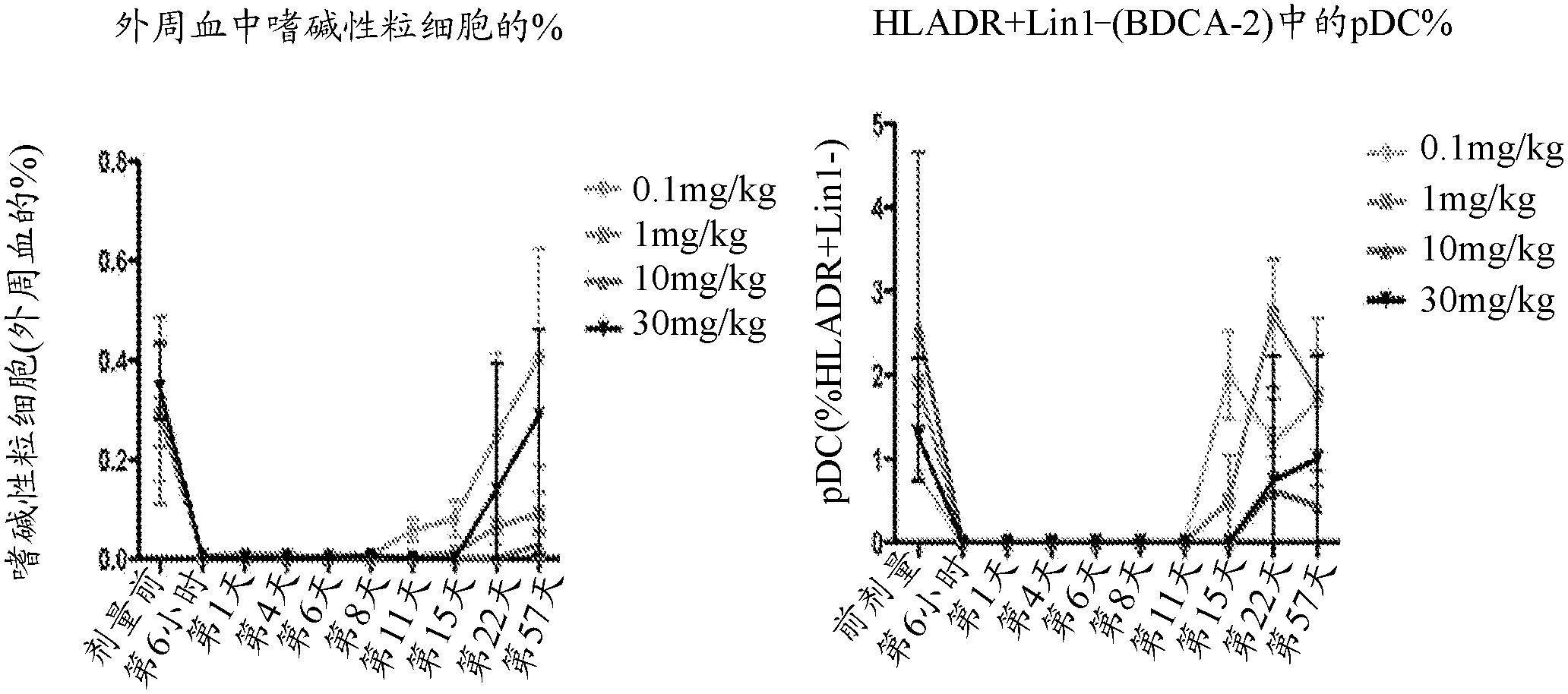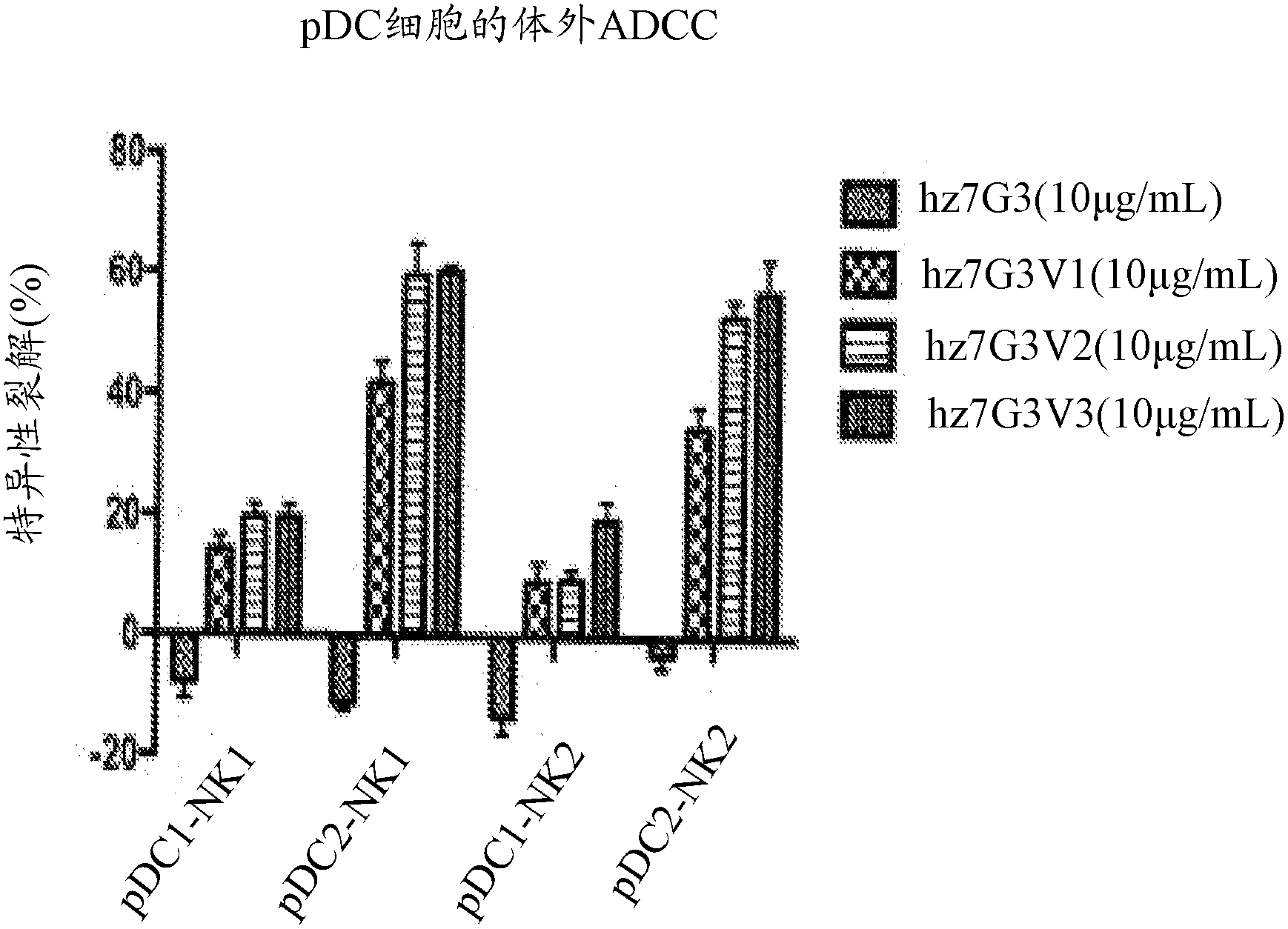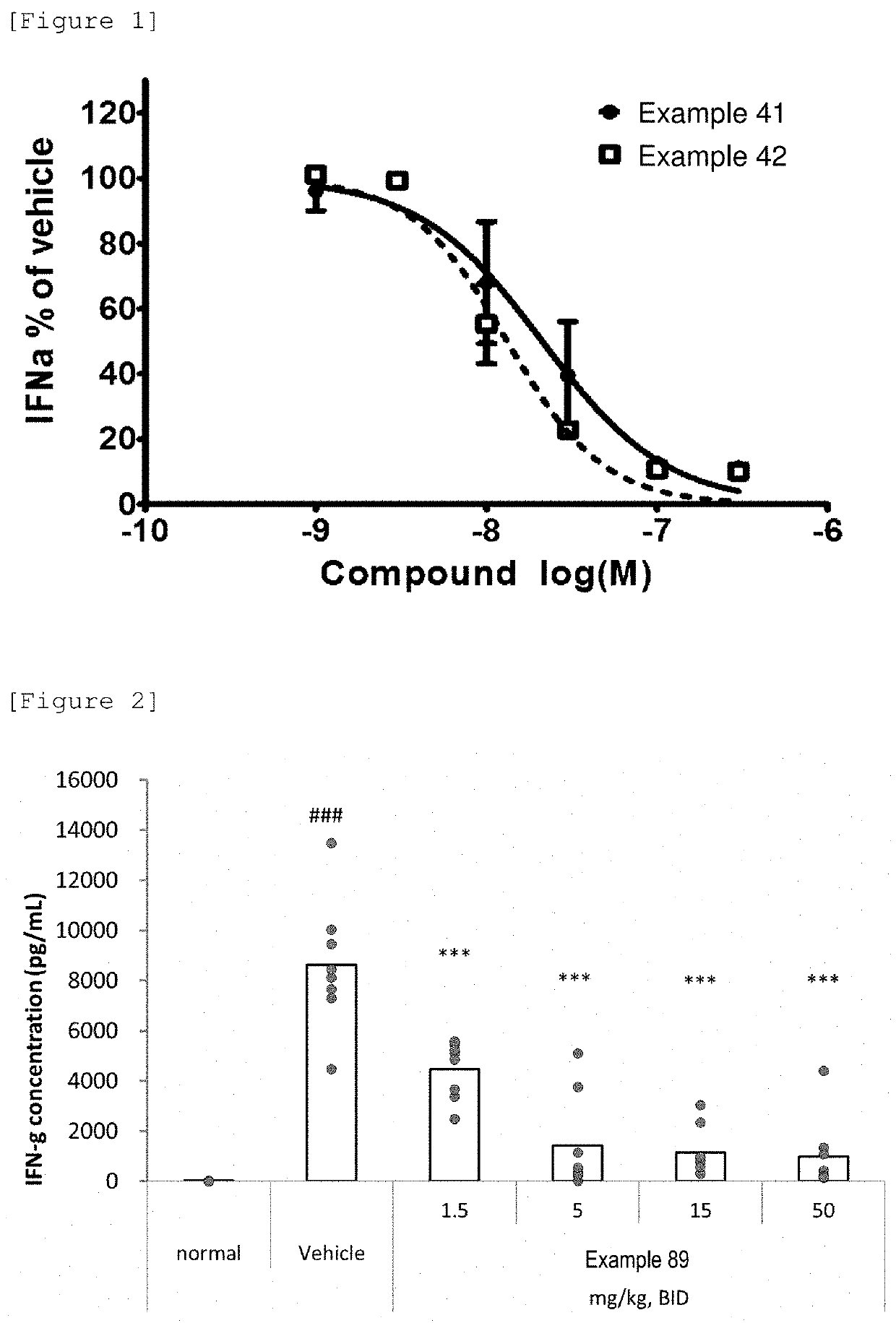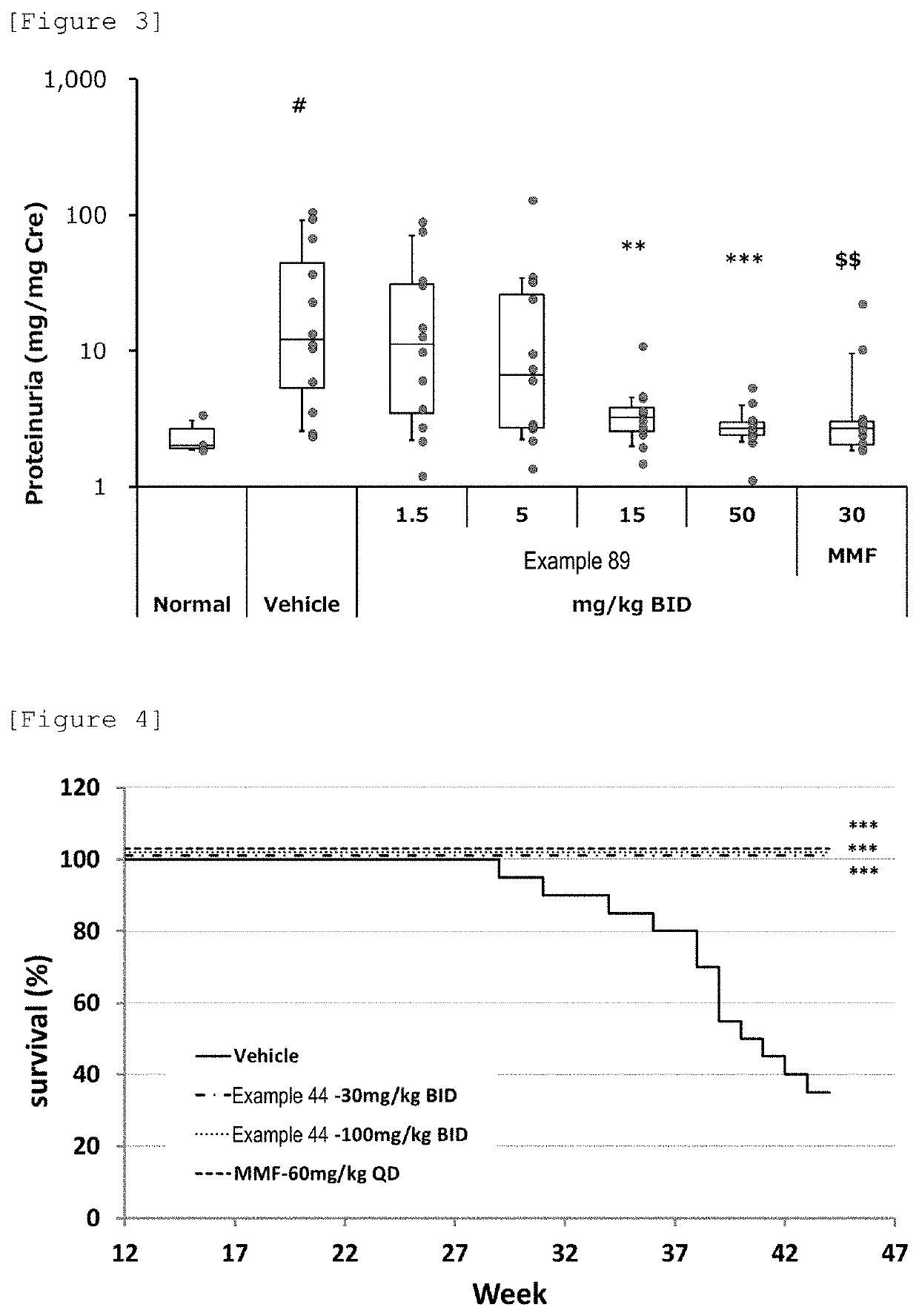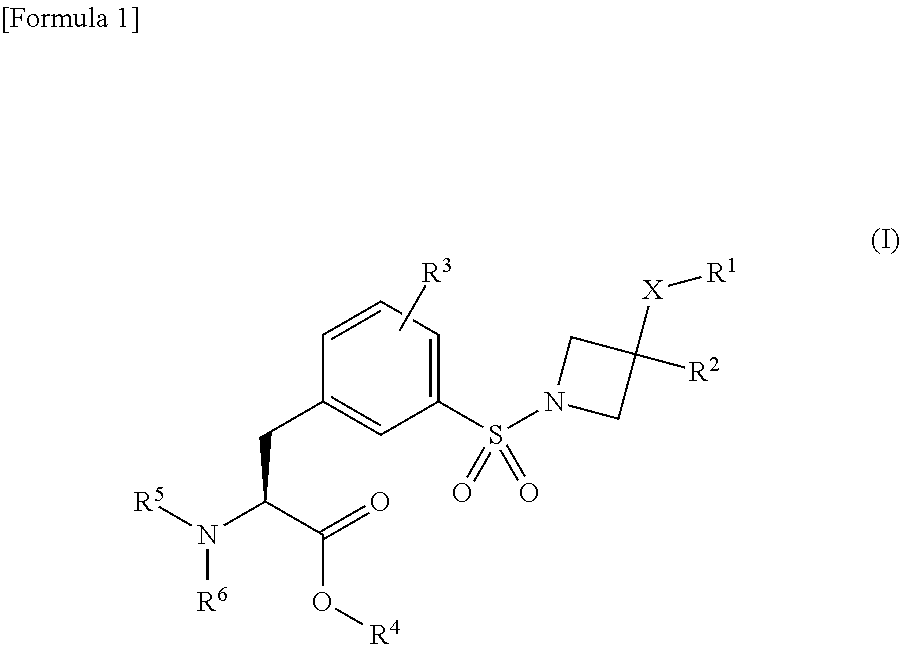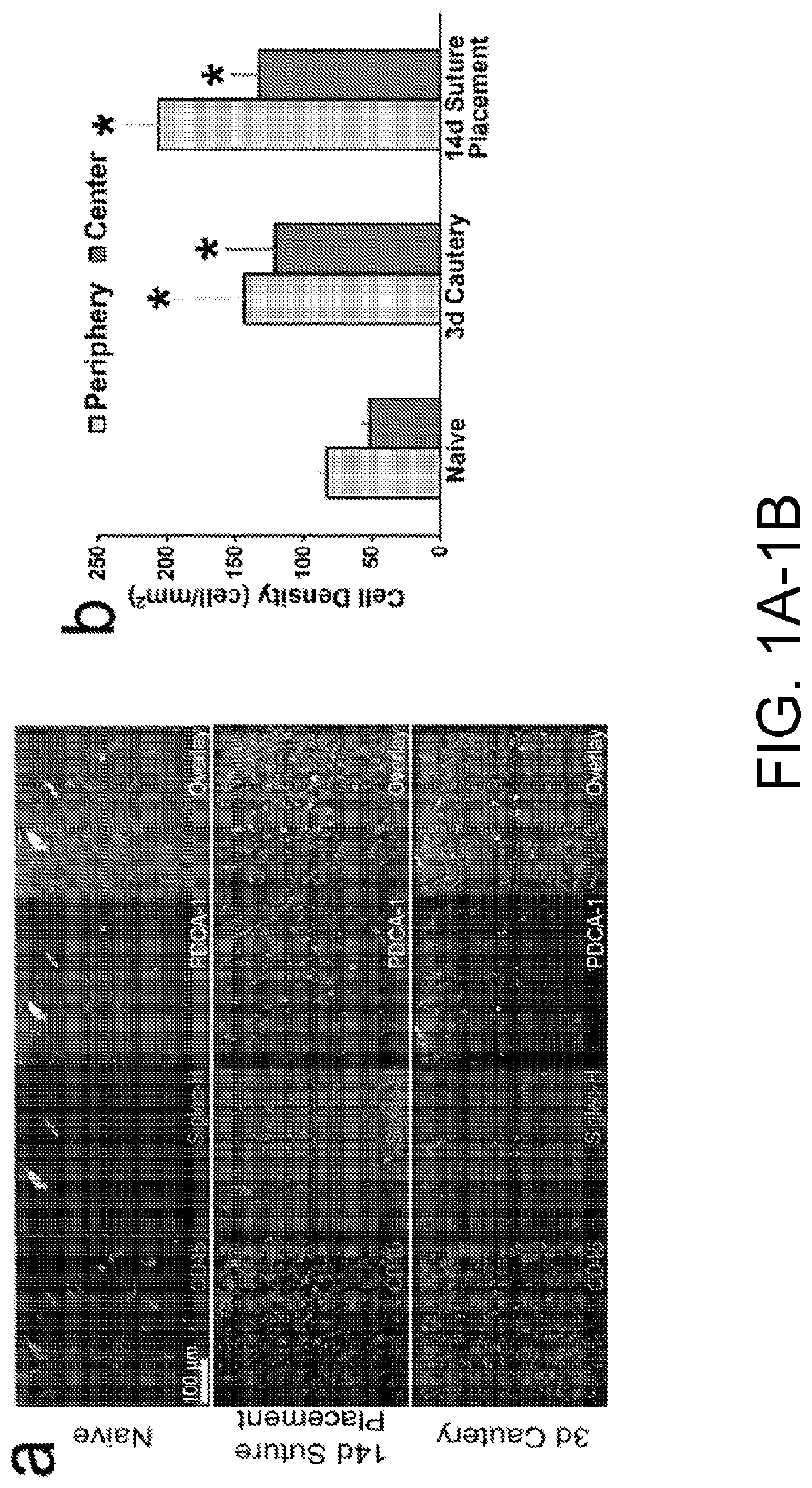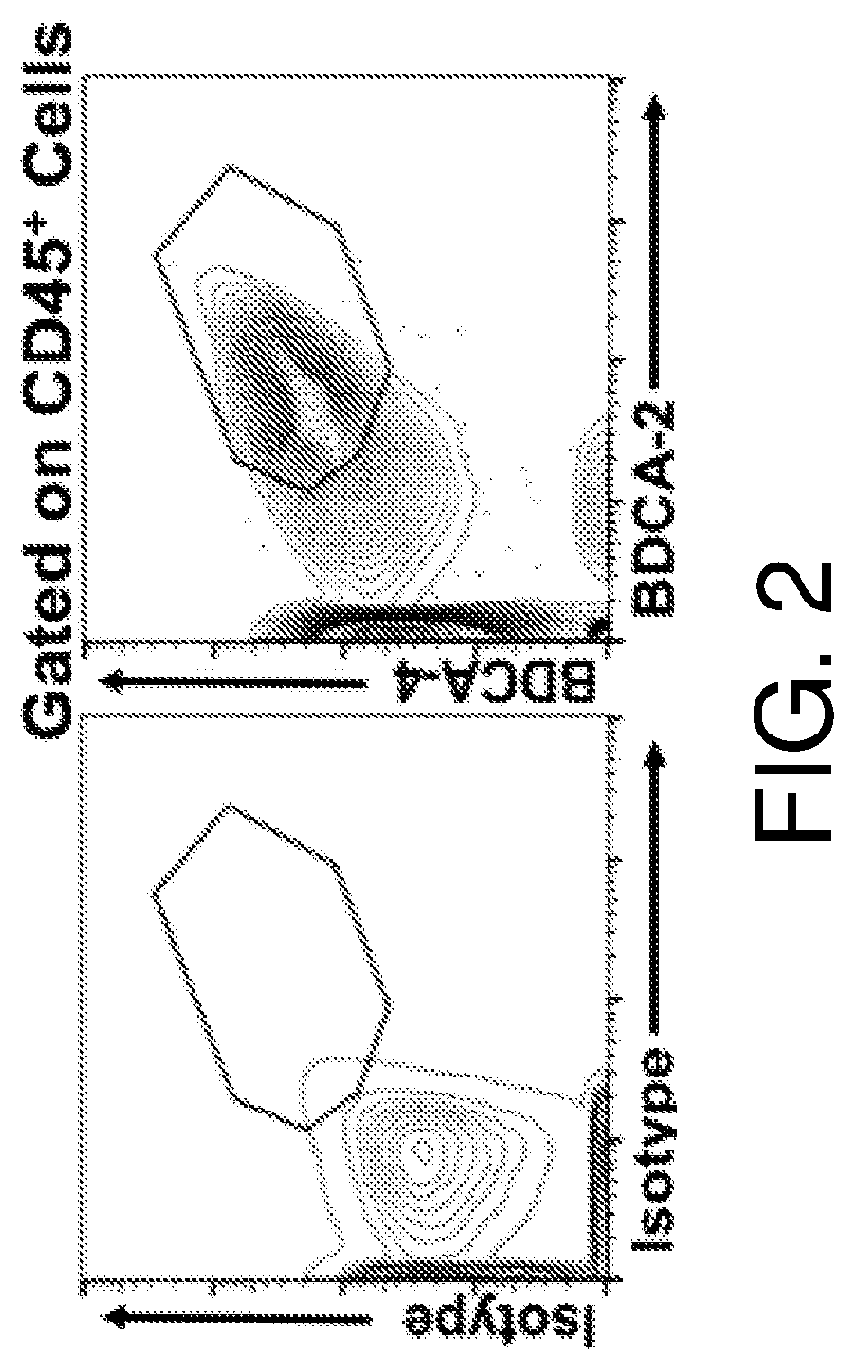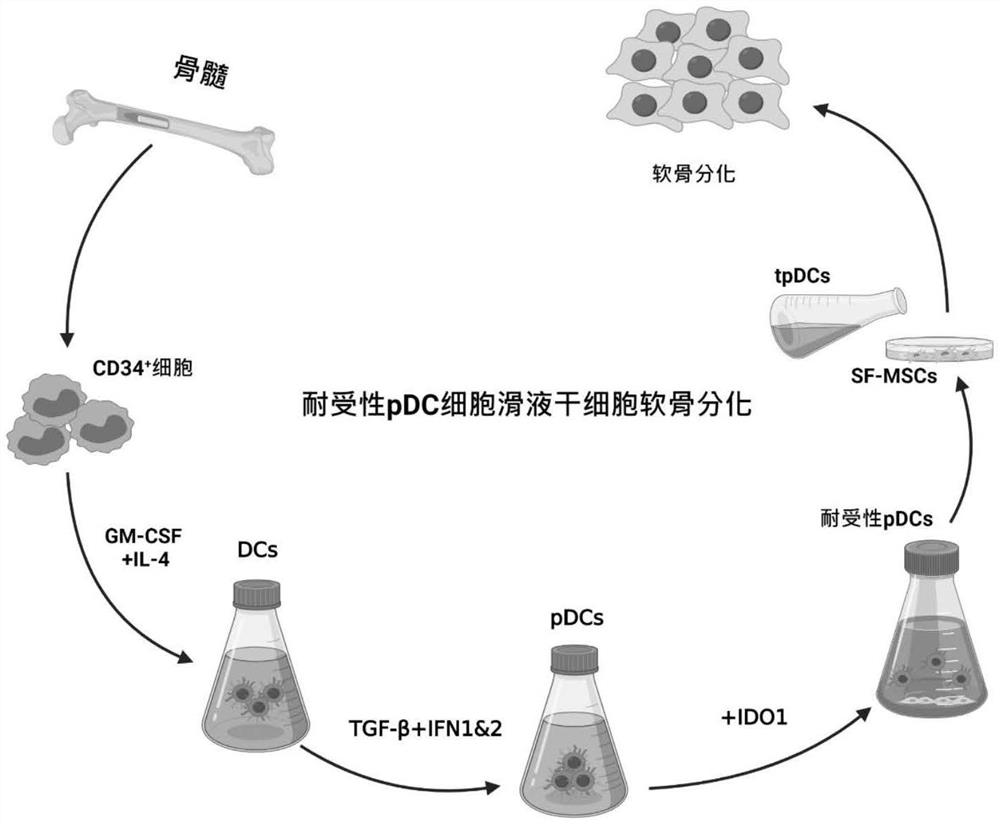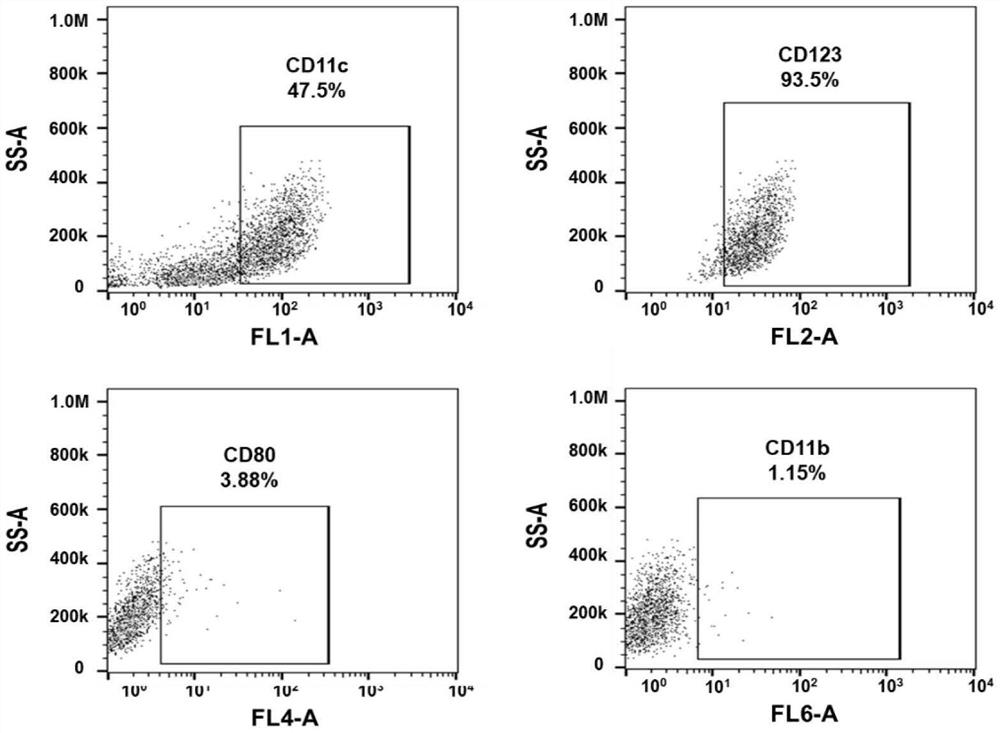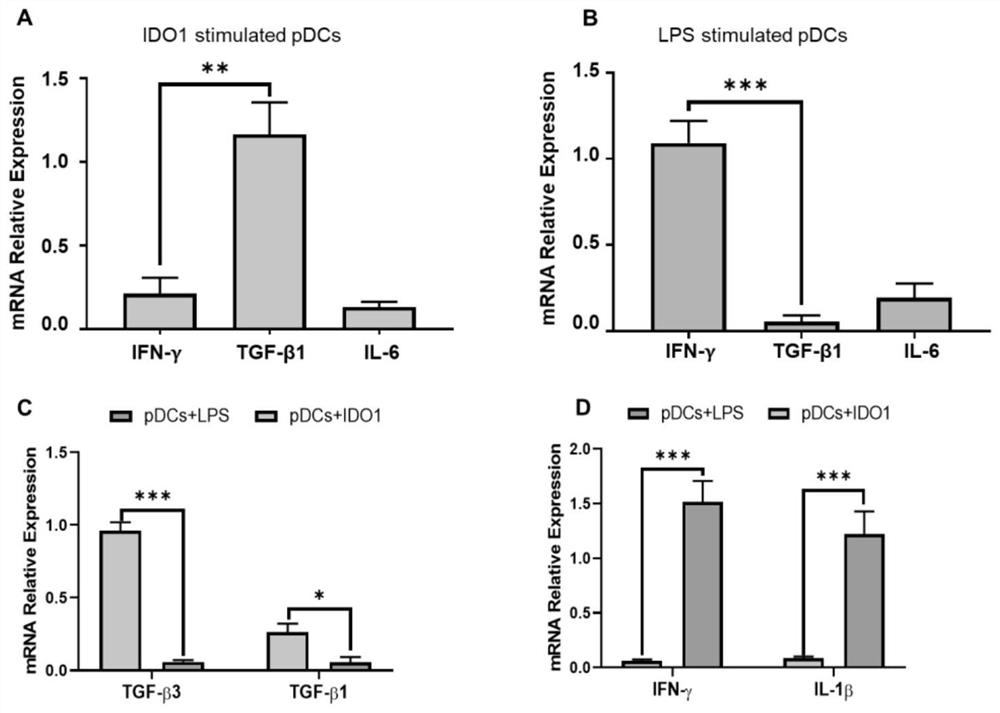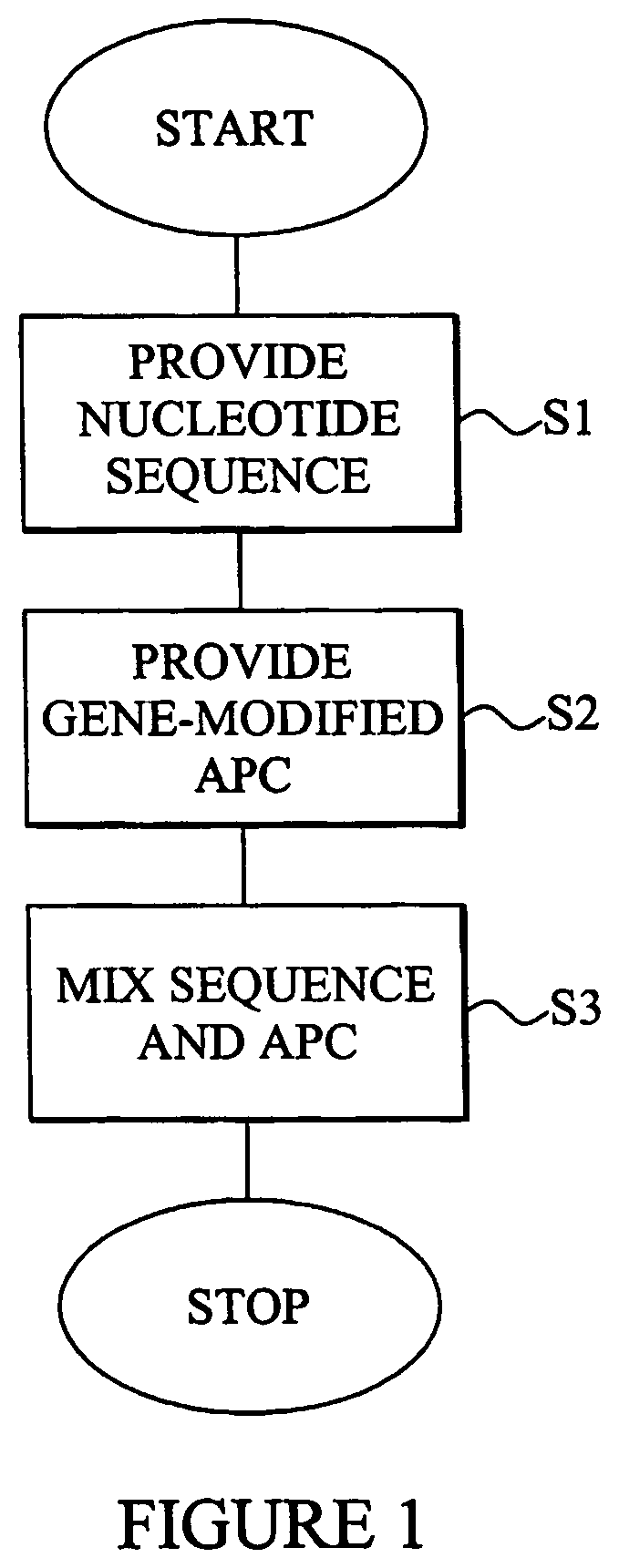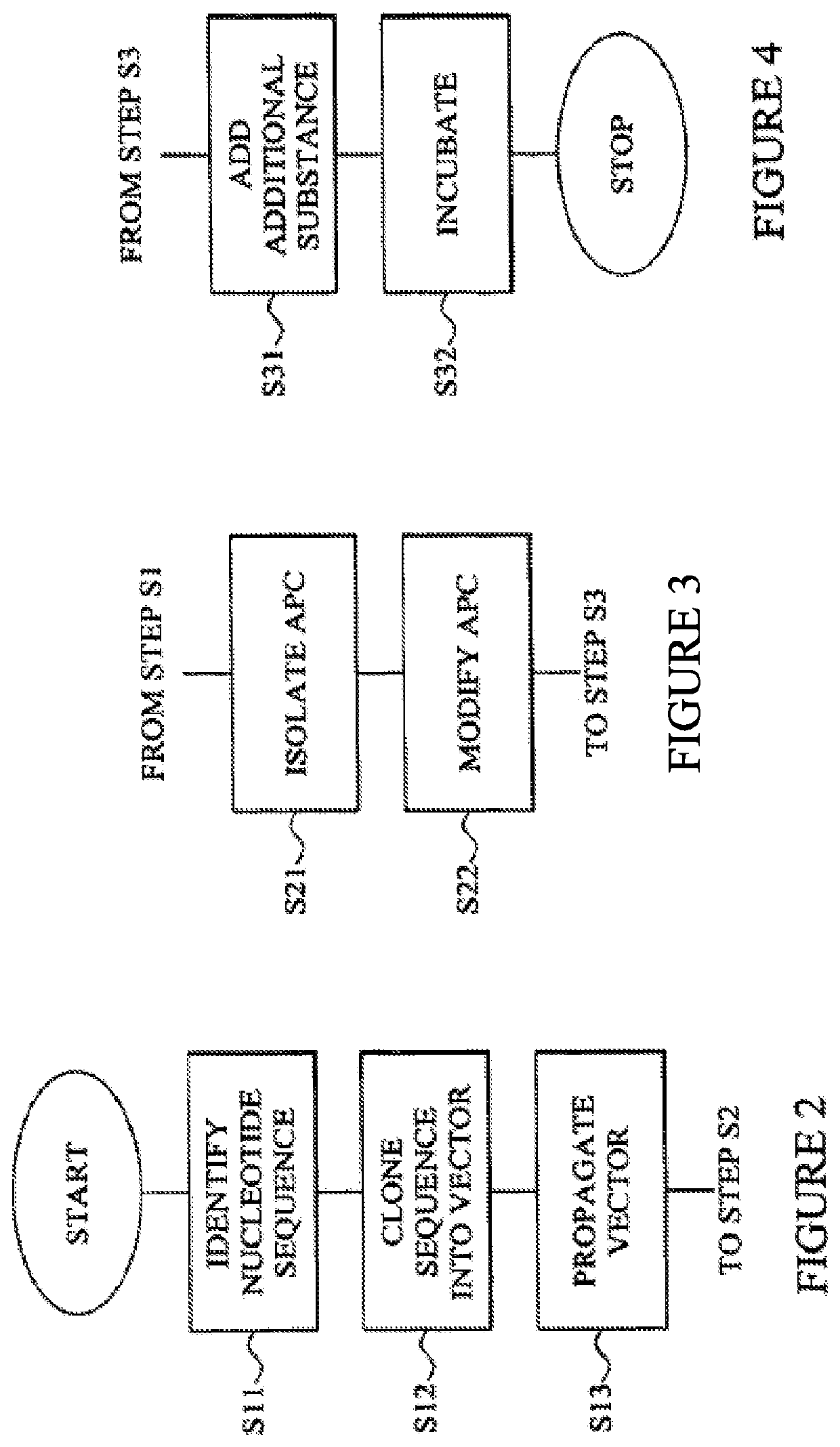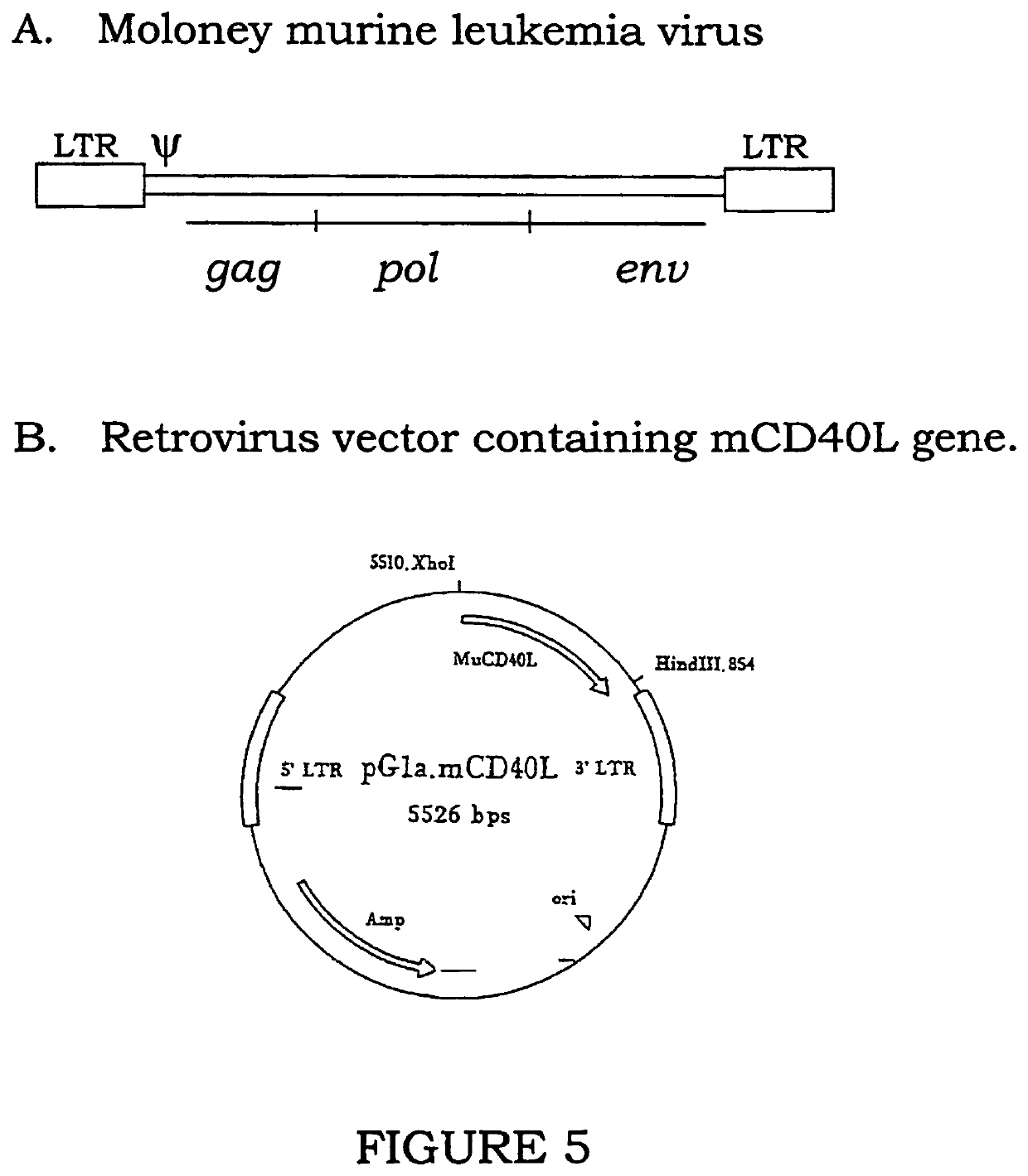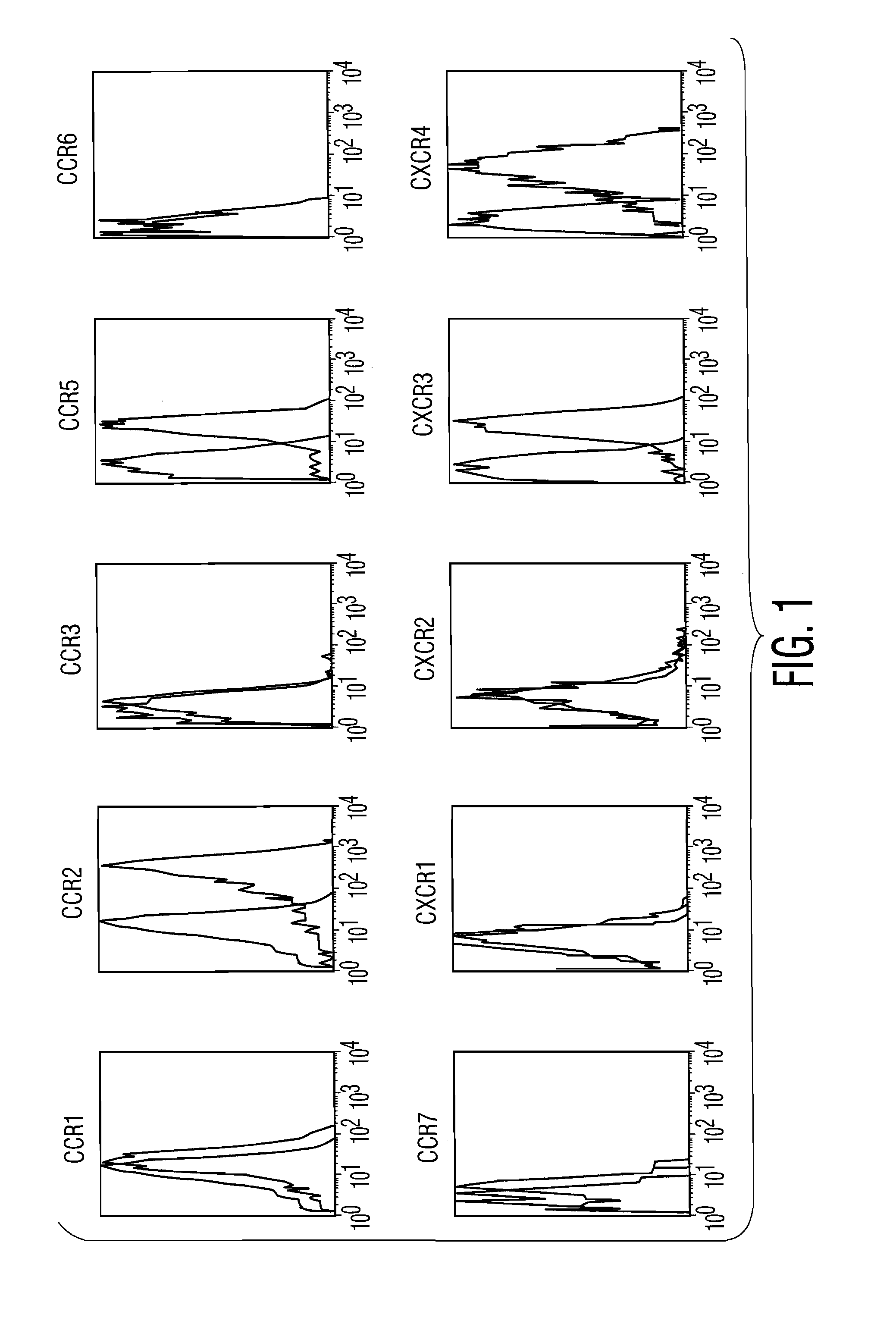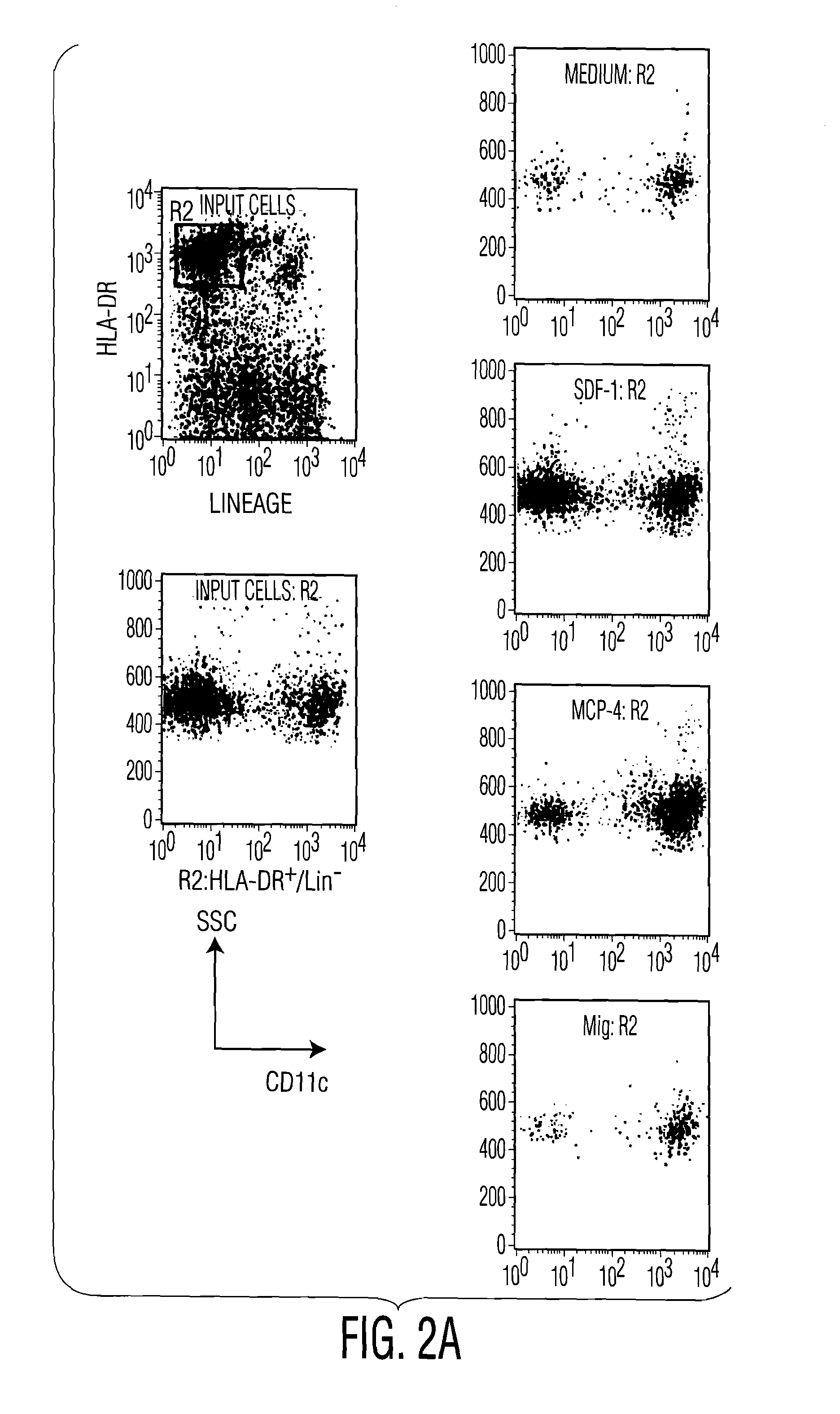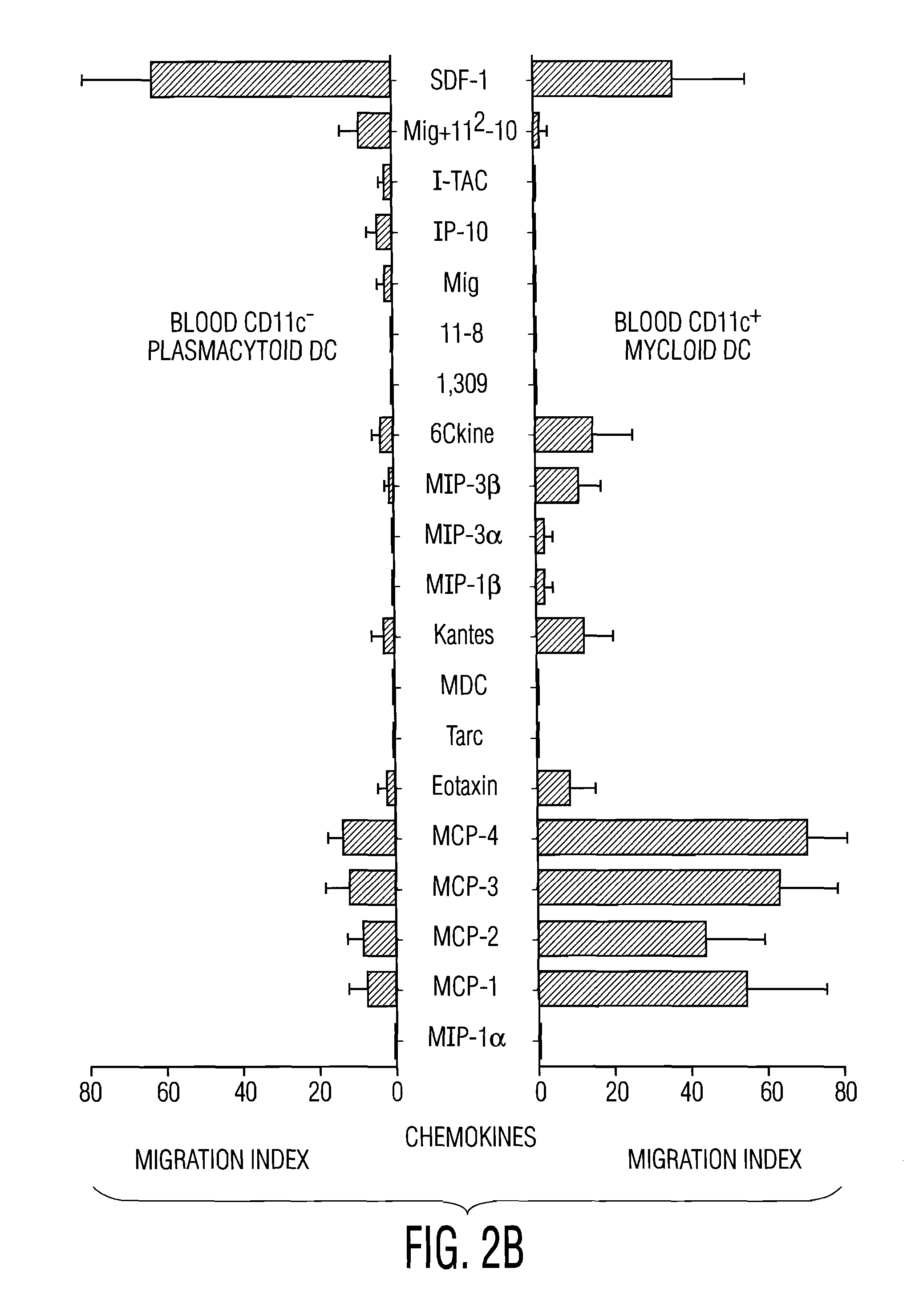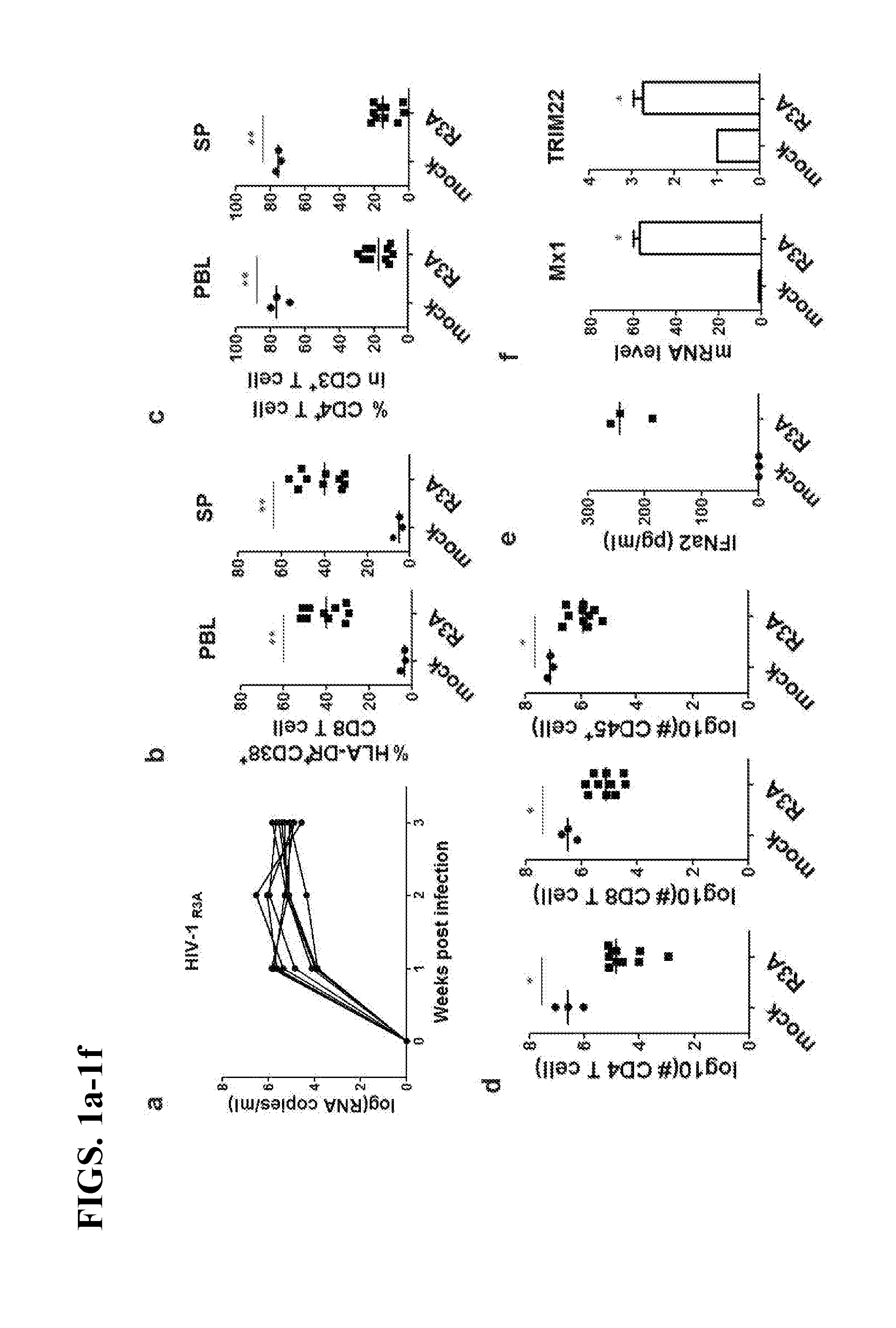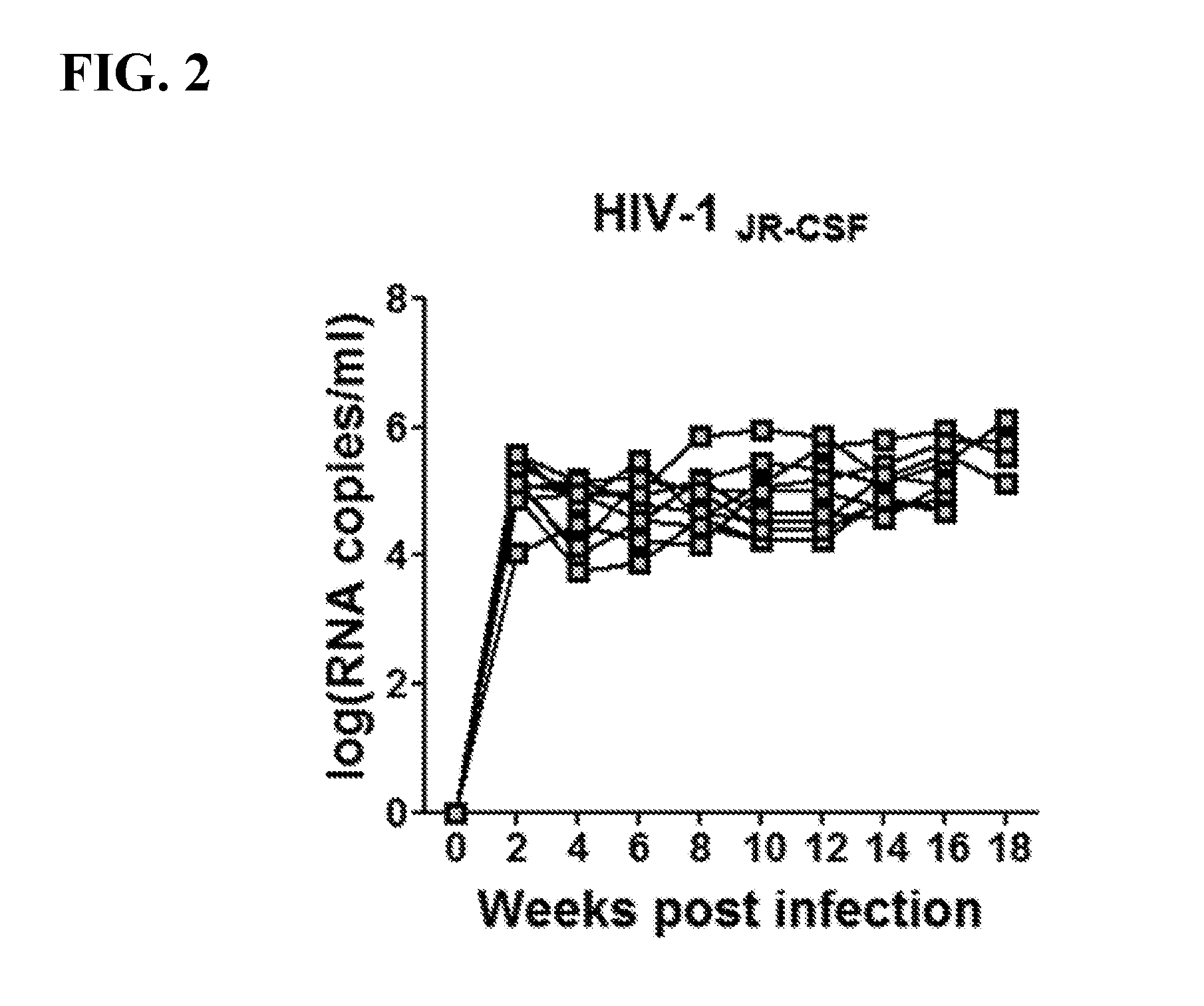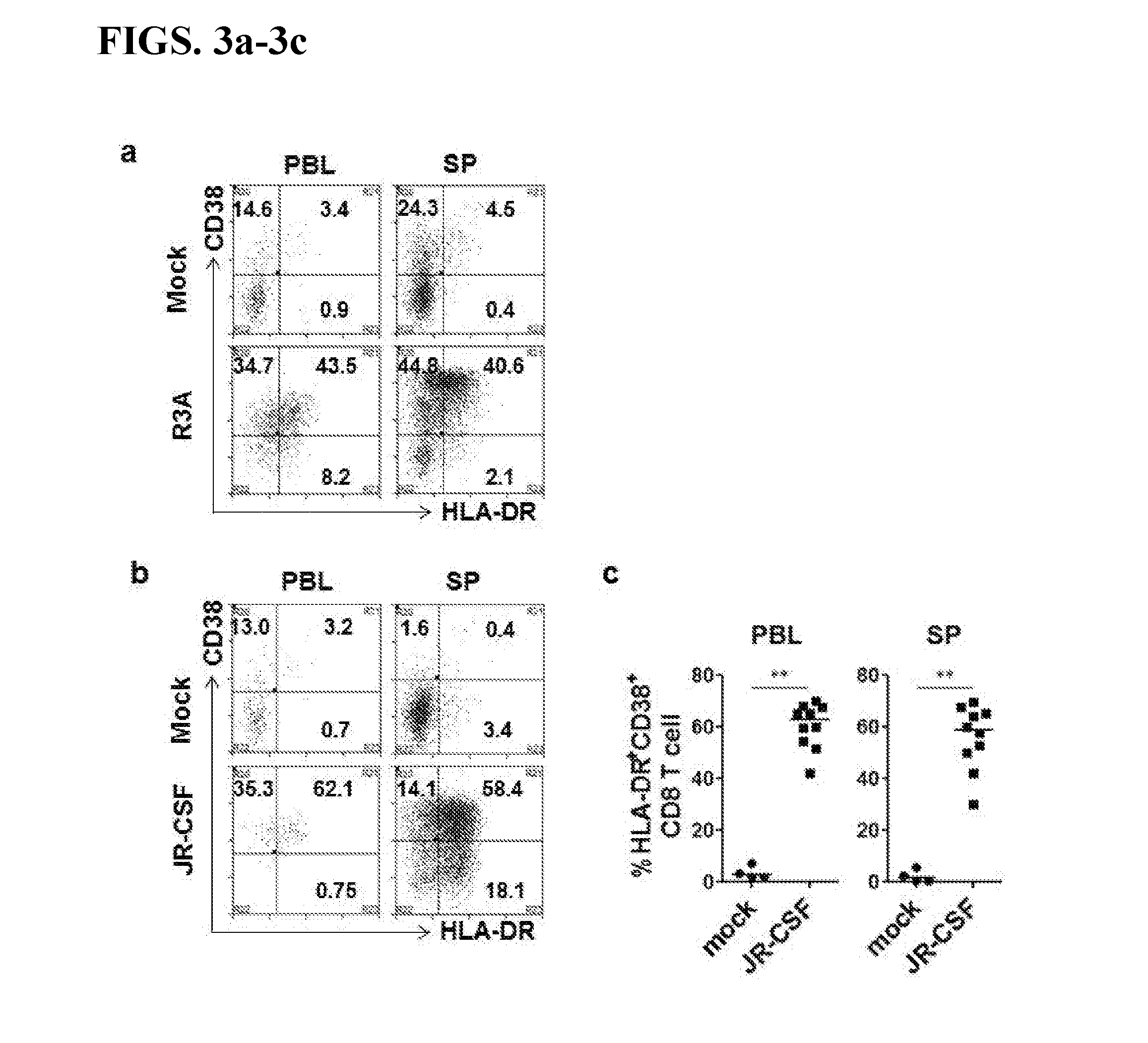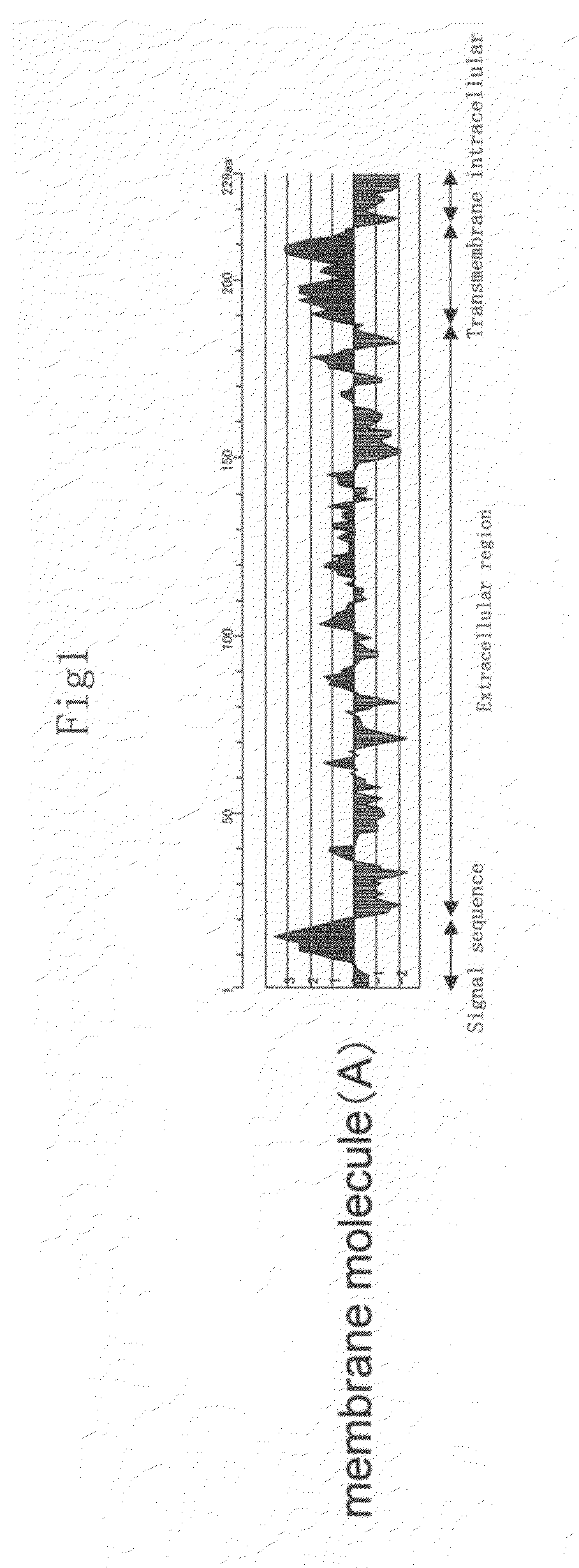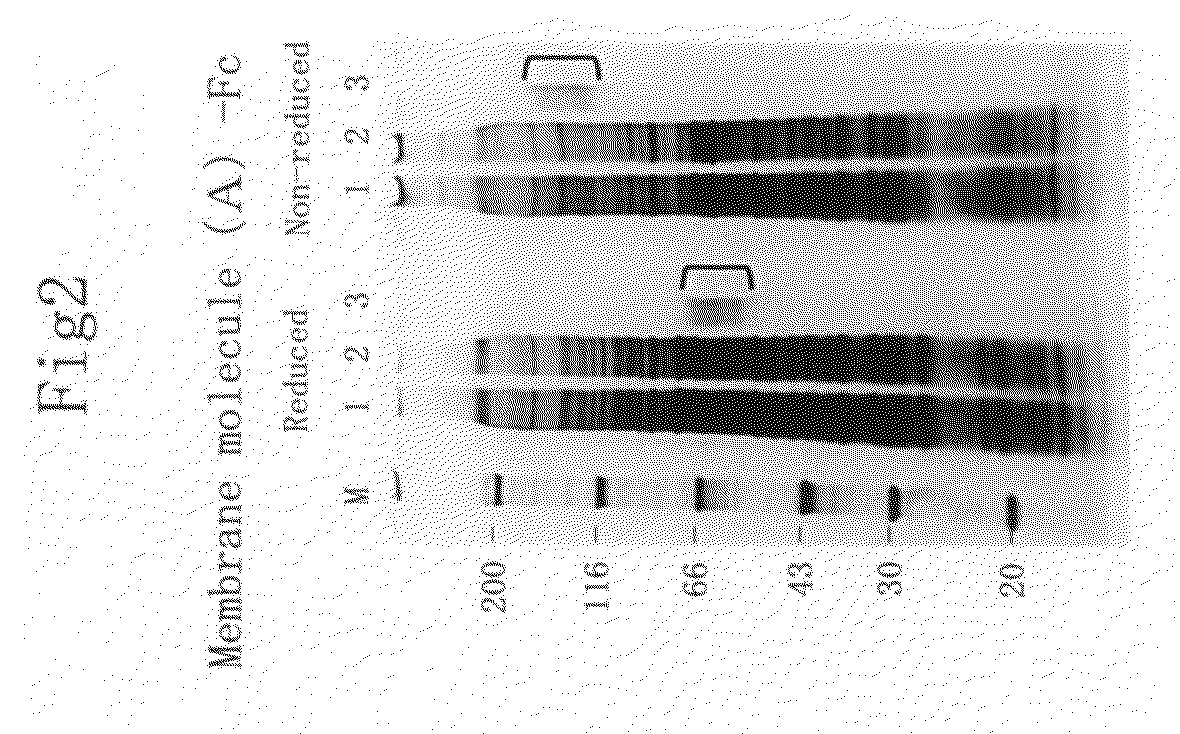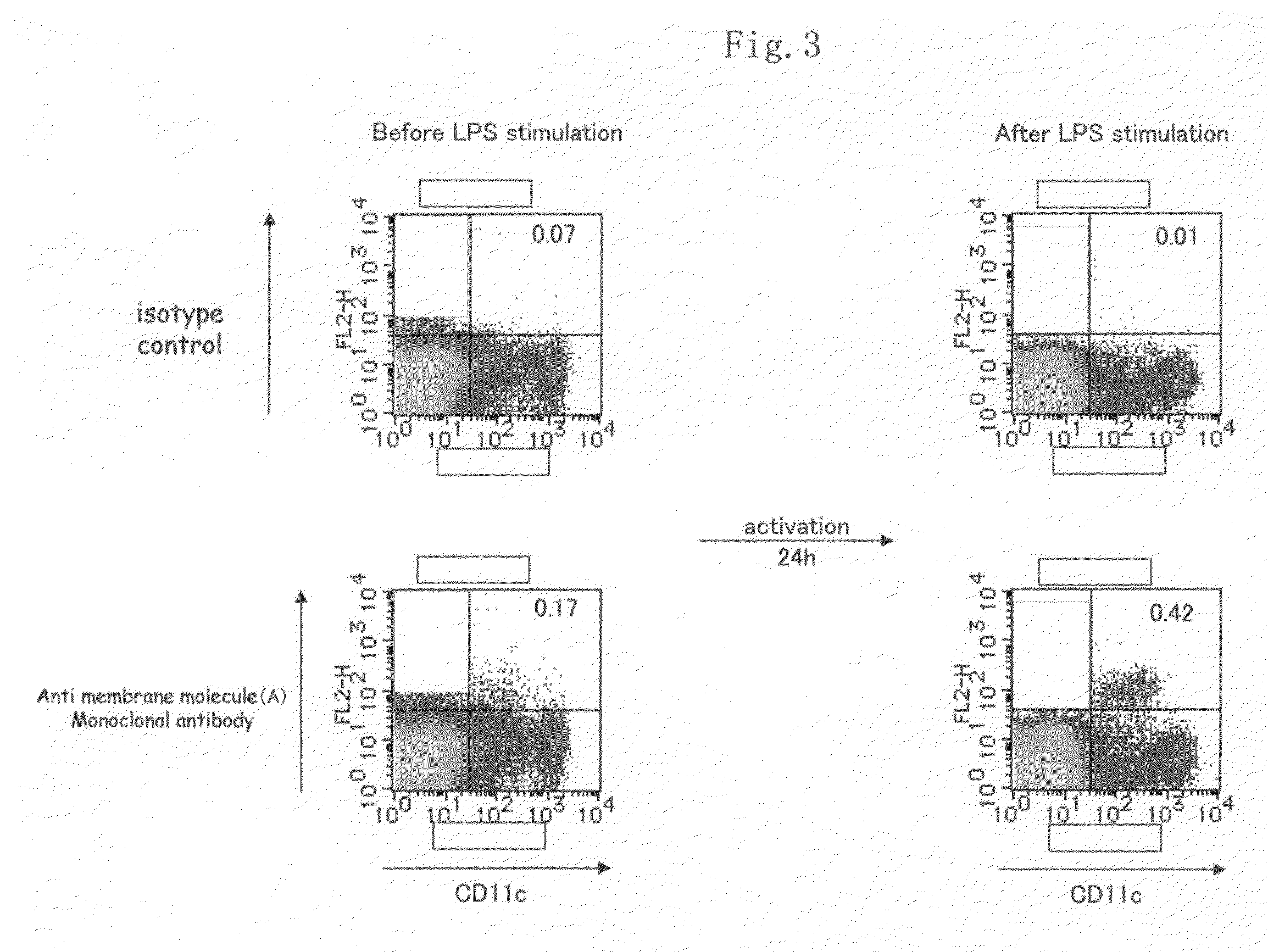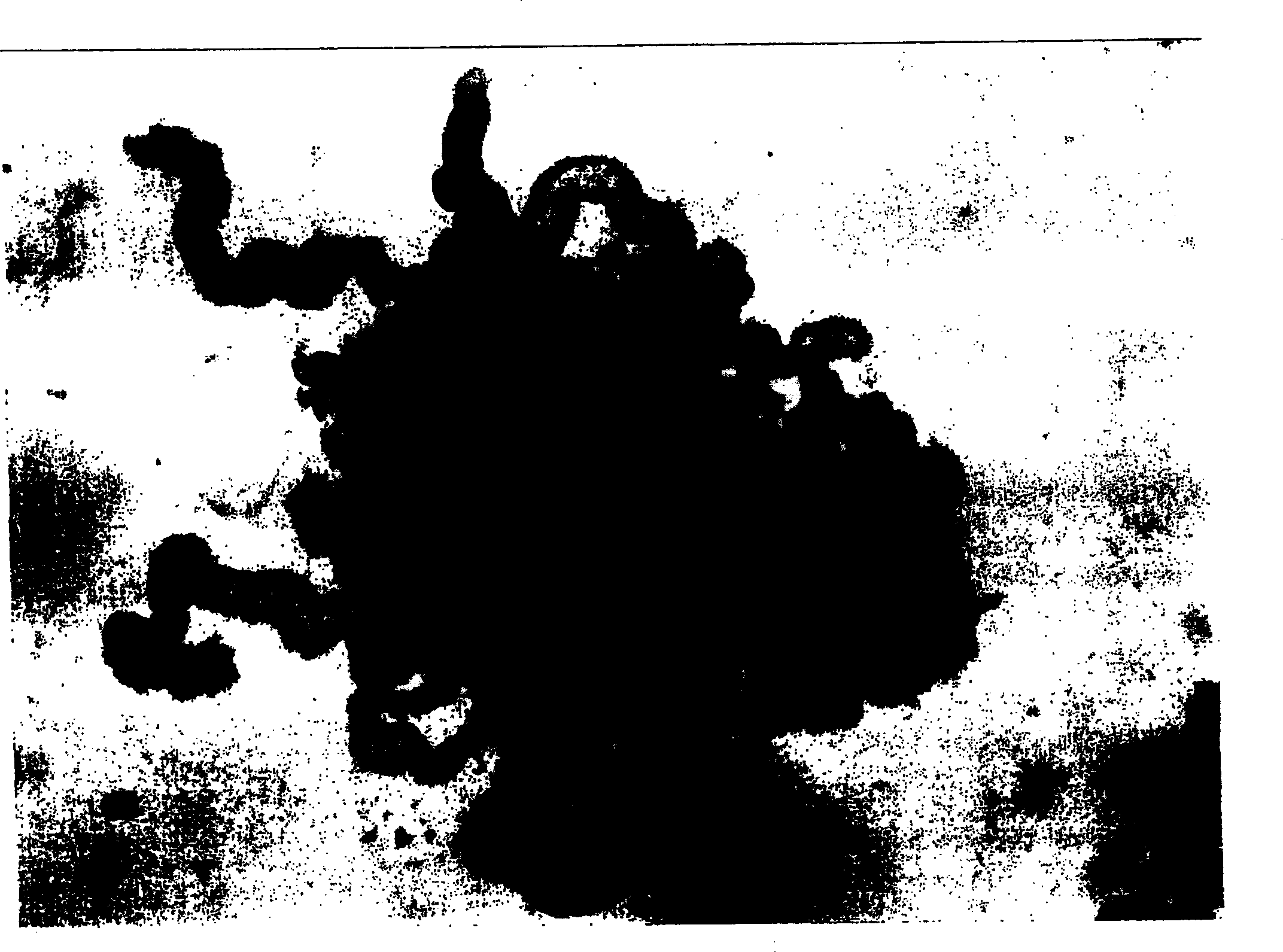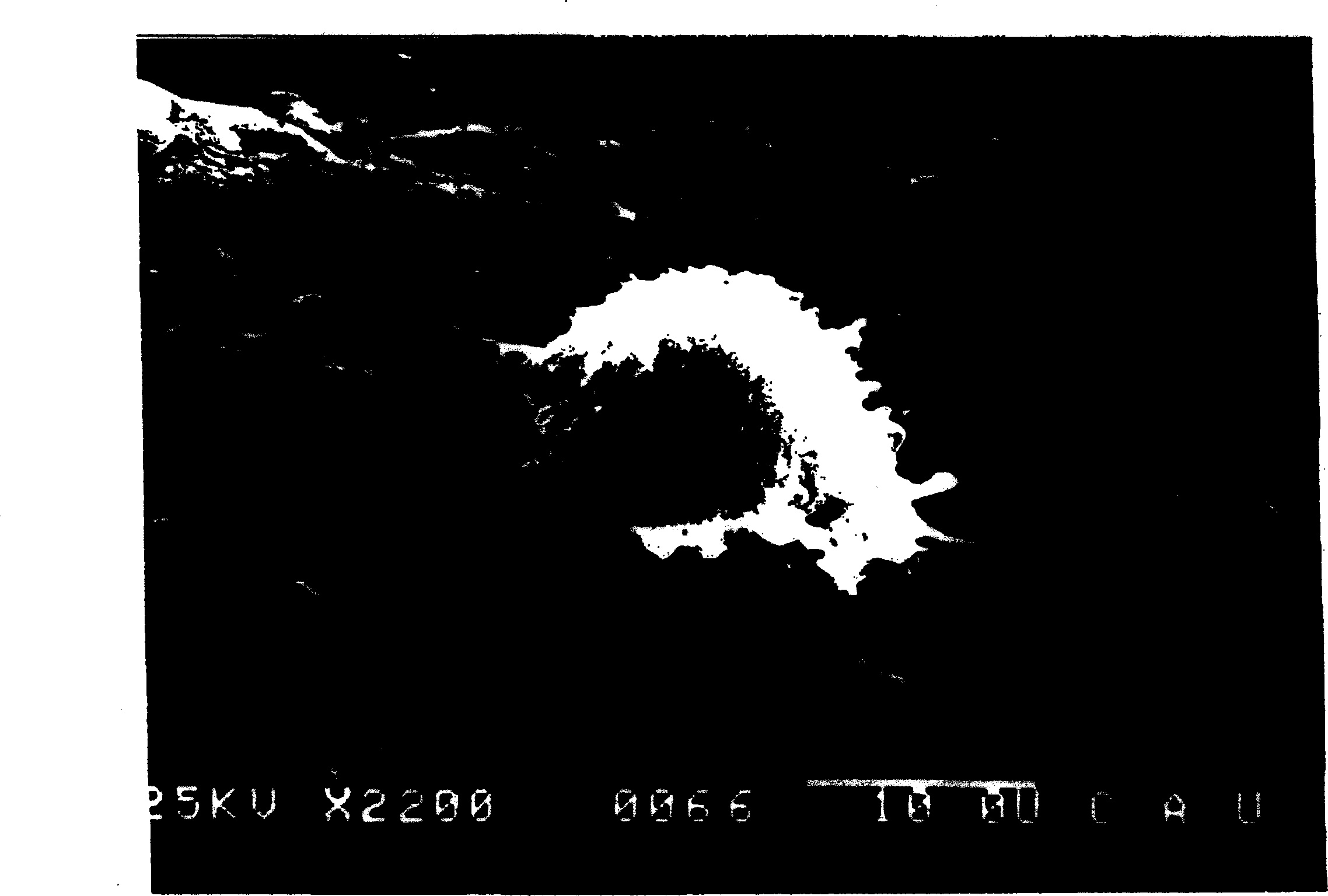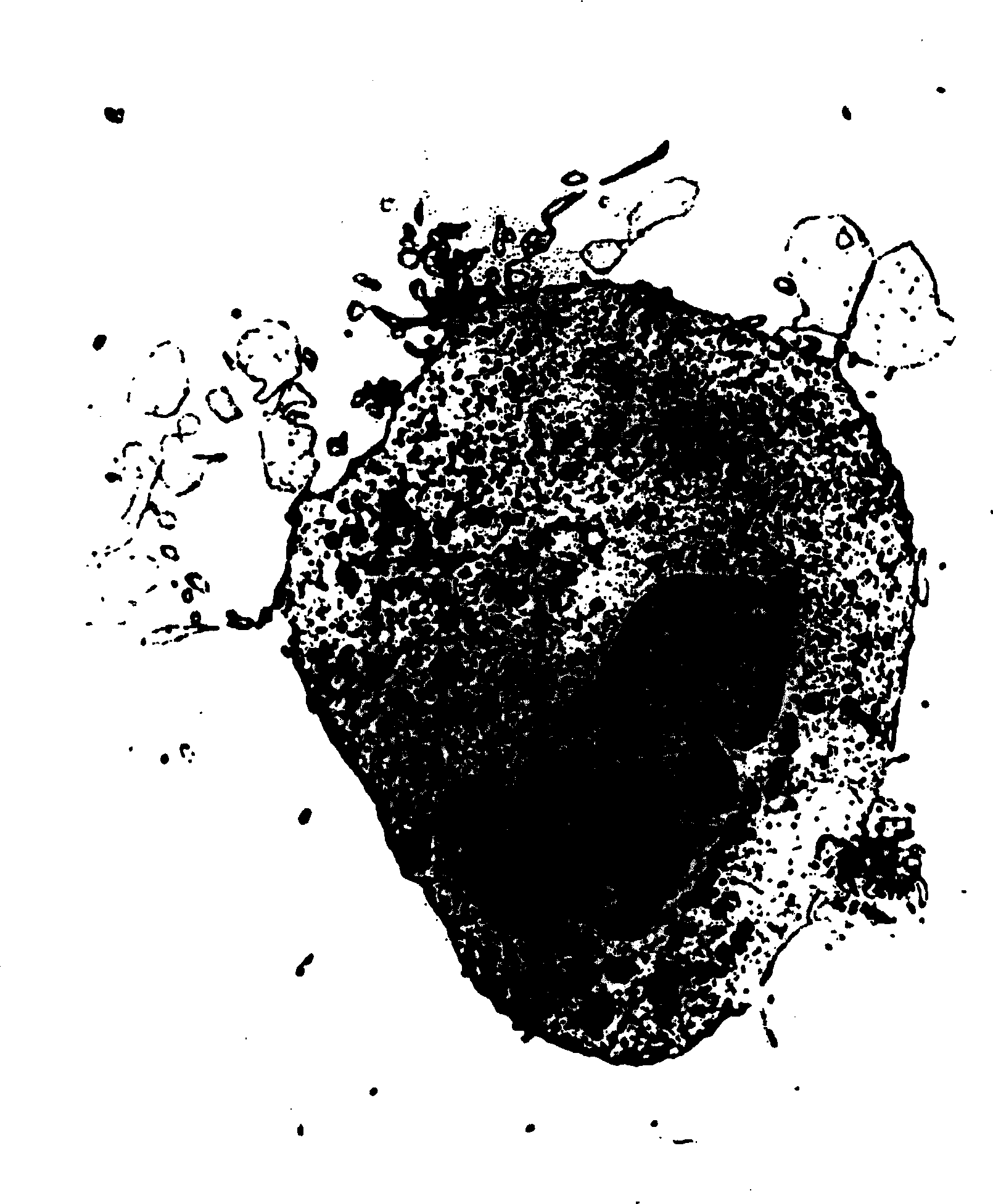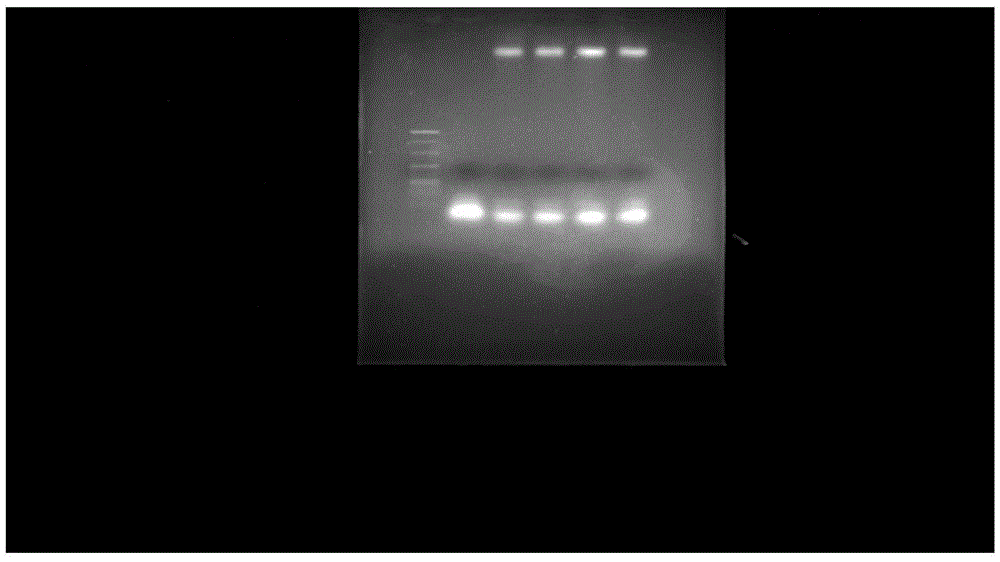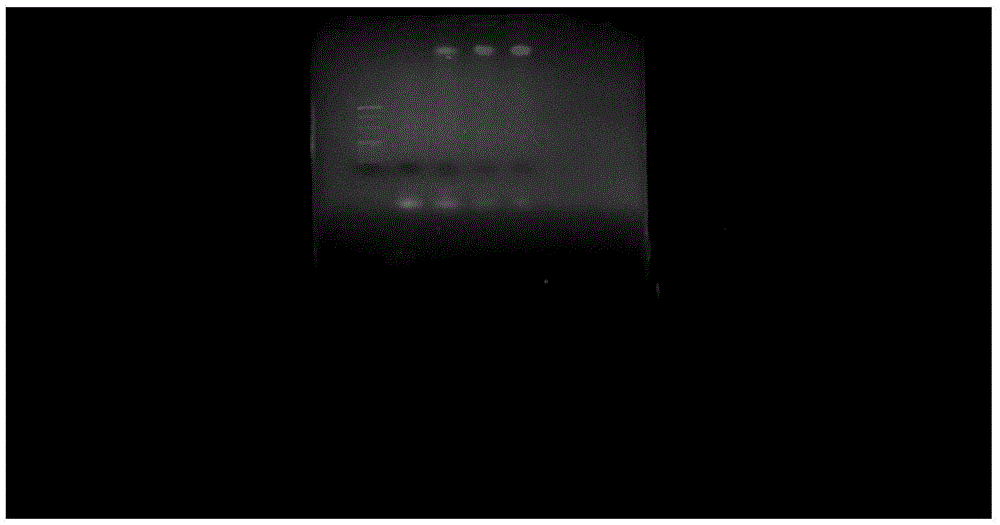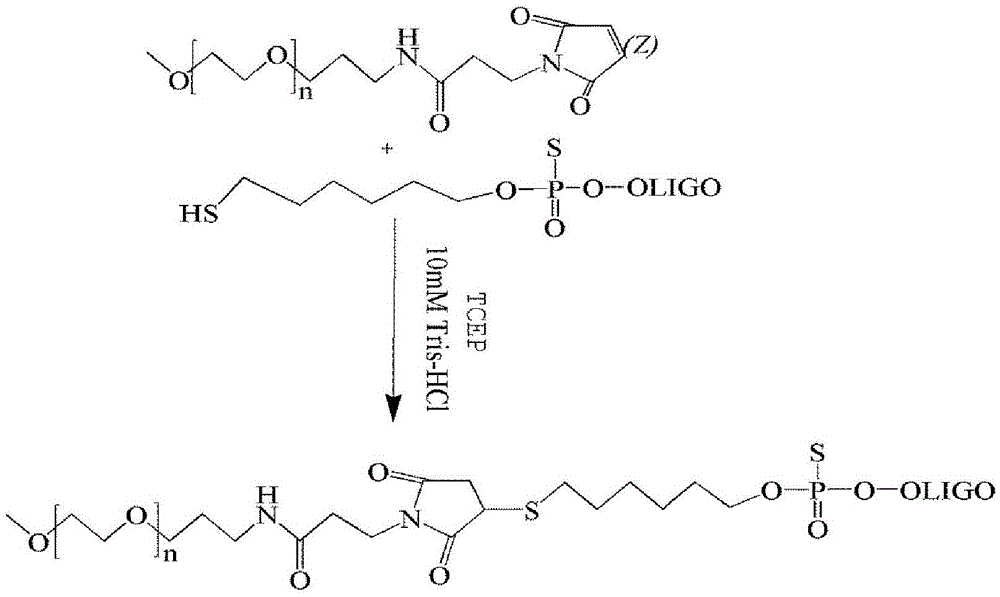Patents
Literature
47 results about "Plasmacytoid dendritic cell" patented technology
Efficacy Topic
Property
Owner
Technical Advancement
Application Domain
Technology Topic
Technology Field Word
Patent Country/Region
Patent Type
Patent Status
Application Year
Inventor
Plasmacytoid dendritic cells (pDCs) are a rare type of immune cell that are known to secrete large quantities of type 1 interferon (IFNs) in response to a viral infection. They circulate in the blood and are found in peripheral lymphoid organs. They develop from bone marrow hematopoietic stem cells and constitute < 0.4% of peripheral blood mononuclear cells (PBMC). Other than conducting antiviral mechanisms, pDCs are considered to be key in linking the innate and adaptive immune systems. However, pDCs are also responsible for participating in and exacerbating certain autoimmune diseases like lupus. pDCs are also the malignant cell that causes a rare hematologic disorder, blastic plasmacytoid dendritic cell neoplasm.
Tolerogenic populations of dendritic cells
InactiveUS20100080816A1Snake antigen ingredientsArtificial cell constructsAutoimmune responsesCMKLR1
Tolerogenic populations of dendritic cells are provided, where the dendritic cells are characterized by expression of select tissue-specific homing receptors including the chemokine receptors CCR9; or CMKLR1; or the integrin CD103. The dendritic cells may be conventional / myeloid or plasmacytoid dendritic cells. The cells may be isolated from lymphoid tissue, from blood, or from in vitro culture, e.g. bone marrow culture, etc. Methods are provided for their identification, isolation and targeting in immunotherapeutic interventions in suppressing inflammatory disorders including autoimmunity, transplantation responses and allergic diseases. In some embodiments dendritic cell populations are fixed to render them immunosuppressive, thus allowing the cells to be typed and banked for future use.
Owner:THE BOARD OF TRUSTEES OF THE LELAND STANFORD JUNIOR UNIV
Antibodies directed against ICOS and uses thereof
ActiveUS9376493B2Effective conditioningShorten the progressAntibacterial agentsNervous disorderPlasmacytoid dendritic cellCD4 antigen
Owner:INST NAT DE LA SANTE & DE LA RECHERCHE MEDICALE (INSERM) +4
Immunostimulatory oligonucleotides and uses thereof
Oligonucleotides containing the non-palindromic sequence motif:X1X2X3X4X5X6X7X8,wherein X1 is C,T,G or A (preferably T or C); wherein X2 is C,T,G or A; wherein X7 is C,T,G or A (preferably G); at least three, and preferably all, of X3, X4, X5, X6 and X8 are T; and with the proviso that, in the motif, a C does not precede a G (in other terms, the nucleic acid motif does not consist of a CpG oligonucleotide), that modulate the immune response of animals of the order Primate, including humans, are disclosed. This immune modulation is characterized by stimulation of proliferation, differentiation, cytokine production and antibody production on B-cells and cell differentiation on plasmacytoid dendritic cells.
Owner:DAVID HORN LLC
Anti-her2 combinations for treating tumors
ActiveUS20190002583A1Organic active ingredientsAntibody ingredientsPlasmacytoid dendritic cellCancer research
A combination which comprises an effective amount of Her2 / Neu antagonist and an effective amount of immunotherapeutic that is capable of activating a human plasmacytoid dendritic cell, myeloid dendritic cell, NK cell, or a combination thereof is disclosed.
Owner:BIRDIE BIOPHARM INC
Antibodies Directed Against ICOS and Uses Thereof
ActiveUS20140086923A1Effective conditioningShorten the progressAntibacterial agentsNervous disorderPlasmacytoid dendritic cellPlasma cell
Owner:INST NAT DE LA SANTE & DE LA RECHERCHE MEDICALE (INSERM) +4
Ex-vivo treatment of peripheral blood leukocytes with IFN-lambda
ActiveUS20110268707A1Shorten the progressDelay disease progressionBiocidePeptide/protein ingredientsDiseasePlasmacytoid dendritic cell
The present invention provides an ex vivo method of treating plasmacytoid dendritic cells (pDC) in Th2- or Th17-associated diseases by modulating the cytokine expression or secretion using interferon lambda (IFN-λ). For the Th-2 or Th17-associated diseases, pDC cells from a patient having the disease are exposed ex vivo with IFN-λ in an effective amount to inhibit cytokine releases. The IFN-λ exposed pDC are administered back into the patient. The present invention also provides a method of ex vivo IFN-λ treatment of pDC, in conjunction with co-administration of a composition comprising IFN-λ.
Owner:MEDICAL DIAGNOSTIC LAB
Anti-HER2 combinations for treating tumors
ActiveUS11046781B2Organic active ingredientsAntibody ingredientsPlasmacytoid dendritic cellImmunotherapeutic agent
A combination which comprises an effective amount of Her2 / Neu antagonist and an effective amount of immunotherapeutic that is capable of activating a human plasmacytoid dendritic cell, myeloid dendritic cell, NK cell, or a combination thereof is disclosed.
Owner:BIRDIE BIOPHARM INC
Antibody and method for identification of dendritic cells
InactiveUS20090131346A1Quick and low-cost and effectiveOrganic active ingredientsPeptide librariesPlasmacytoid dendritic cellMammal
Method for identifying myeloid or plasmacytoid dendritic cells provided by a mammal, stimulated or unstimulated, comprising the steps of: a) preparing a cell sample; b) contracting the cell sample myeloid or plasmacytoid dendritic cells to form a complex; c) detecting the complex; characterized in that the phosphatase is the Receptor type Tyrosine Phosphatase Gamma Protein (PTPRG), acting as a specific marker of said dendritic cells, and in that the compound is a polypeptide capable of selectively bind to the PTPRG or to a fragment thereof or to a oligonucleotide complementary to a PTPRG mRNA logonucleotide in such a manner as to allow the selective recognizing of the dendritic cells in the cell sample.
Owner:CONSORZIO PER GLI STUDI UNIVRI & VERONA
Tumor microenvironment component marker combination and system for predicting nasopharyngeal carcinoma prognosis
ActiveCN111910000AFacilitates individualized treatmentMicrobiological testing/measurementMedical automated diagnosisCellular componentIndividualized treatment
The invention discloses a tumor microenvironment component marker combination and system for predicting nasopharyngeal carcinoma prognosis. The tumor microenvironment component marker combination comprises a cell cycle proliferation component and at least one of five immune cell components including macrophages, plasmacytoid dendritic cells, CLEC9A + dendritic cells, natural killer cells and plasma cells. According to some examples of the invention, the expression levels of different components in a nasopharyngeal carcinoma tumor microenvironment can be predicted by calculating the expressionlevels of respective feature genes of one tumor cell component and five immunocyte components, and clinical prognosis prediction can be performed on a nasopharyngeal carcinoma patient, so that individualized treatment is facilitated, and finally, survival benefits are brought to the patient.
Owner:SUN YAT SEN UNIV CANCER CENT
Compositions and methods for targeting type 1 interferon producing cells
ActiveUS20130084282A1In-vivo radioactive preparationsPeptide/protein ingredientsPlasmacytoid dendritic cellSystemic lupus erythematosus
The present disclosure provides a method for treating lupus, Sjörgen's syndrome or scleroderma, the method comprising administering to the mammal an immunoglobulin which binds an interleukin 3 receptor α (IL-3Rα) chain and which depletes or at least partly eliminates plasmacytoid dendritic cells (p DCs) and basophils to which it binds.
Owner:CSL LTD
Immunostimulatory oligonucleotides and uses thereof
Oligonucleotides containing the non-palindromic sequence motif: X1X2X3X4X5X6X7X8, wherein X1 is C,T,G or A (preferably T or C); wherein X2 is C,T,G or A; wherein X7 is C,T,G or A (preferably G); at least three, and preferably all, of X3, X4, X5, X6 and X8 are T; and with the proviso that, in the motif, a C does not precede a G (in other terms, the nucleic acid motif does not consist of a CpG oligonucleotide), that modulate the immune response of animals of the order Primate, including humans, are disclosed. This immune modulation is characterized by stimulation of proliferation, differentiation, cytokine production and antibody production on B-cells and cell differentiation on plasmacytoid dendritic cells.
Owner:DAVID HORN LLC
Anti-cd303 monoclonal antibodies
The invention relates to chimeric or humanised anti-CD303 antibodies to nucleic acids coding for the heavy and light chains of these antibodies, expression vectors, host cells, transgenic non-human animals or transgenic plants expressing said antibodies, as well as to the uses thereof in the treatment or prevention of blastic plasmacytoid dendritic cell neoplasms (BPDCN) or inflammatory diseases, in particular autoimmune diseases, involving plasmacytoid dendritic cells.
Owner:LABE FR DU FRACTIONNEMENT & DES BIOTECH SA
Tolerogenic Plasmacytoid Dendritic Cells Co-Expressing Cd8-Alpha And Cd8-Beta And Methods Of Inducing The Differentiation Of Regulatory T Cells Using Same
InactiveUS20130142830A1Avoid developmentSpeed up the conversion processMicrobiological testing/measurementSnake antigen ingredientsImmunologic disordersPlasmacytoid dendritic cell
This invention discloses an unexpected discovery that plasmacytoid dendritic cells (pDCs) may be segregated into immunogenic or tolerogenic species based on novel biomarkers discovered herein. Exemplary biomarkers include CD8α+β+, CD8α+β−, CD8α−β−, C1q, and IL-9R. For example, pDCs with CD8α+β+, CD8α+β− are tolerogenic and CD8α−β− is immunogenic. Also disclosed are isolated pDCs, compositions comprising the pDCs, methods for isolating the pDCs, methods for treating immune-hyper-reactivity, such as airway hyper-reactivity, food allergy, asthma, and autoimmune disorders, by using compositions containing tolerogenic antigen presenting cells, preferably pDCs disclosed herein. Also disclosed are methods for identifying tolerogenic antigen presenting cells by using one or more novel biomarkers disclosed herein, including RALDH expression, CD8α, CD8βC1qa, C1qc, and IL-9R. Also disclosed are methods for inducing Treg cells by using the pDCs disclosed herein.
Owner:UNIV OF SOUTHERN CALIFORNIA
Inhibitors of ll-37 mediated immune reactivity to self nucleic acids
InactiveUS20120315290A1Enhancing vaccineIncrease productionPeptide/protein ingredientsSnake antigen ingredientsInterferon productionAutoimmune disease
Methods and compositions for treating disease are provided. More particularly, methods and compositions of inhibiting pathogenic interferon production are prevented, which may be useful in the treatment of various diseases. In other embodiments, therapeutic compounds and methods for the treatment of autoimmune diseases and chronic inflammatory diseases and / or cancer are provided. One such method is a method for inhibiting pathogenic interferon production or inhibiting activation of plasmacytoid dendritic cells or treating an autoimmune or chronic inflammatory disease, which comprises inhibiting one or more of LL-37 and hCAP18.
Owner:BOARD OF RGT THE UNIV OF TEXAS SYST
PEGylated CpG oligonucleotide and application thereof
InactiveCN103789315AImprove in vivo stabilityFunction increaseGenetic material ingredientsImmunological disordersImmunocompetenceTumor antigen
The invention relates to PEGylated CpG oligonucleotide and application of the PEGylated CpG oligonucleotide in the preparation of a medicament for improving the IL-12 expression quantity in serum, a medicament for inducing the immunogenicity to an endogenous antigen such as a tumor antigen and a medicament for stimulating the immunocompetence of B cells, plasmacytoid dendritic cells, myeloid dendritic cells, macrophages and peripheral mononuclear cells in the field of vaccine and tumor immunotherapy administration systems. The PEGylated CpG oligonucleotide has the effects of homeostasis improvement and immunoregulation, and response to persistent antigens in vivo can be improved.
Owner:SHANGHAI JIAO TONG UNIV
Ex-vivo treatment of peripheral plasmacytoid dendritic cells with IFN-lambda
ActiveUS8282964B2Delay disease progressionShorten the progressBiocidePeptide/protein ingredientsDiseasePlasmacytoid dendritic cell
The present invention provides an ex vivo method of treating plasmacytoid dendritic cells (pDC) in Th2- or Th17-associated diseases by modulating the cytokine expression or secretion using interferon lambda (IFN-λ). For the Th-2 or Th17-associated diseases, pDC cells from a patient having the disease are exposed ex vivo with IFN-λ in an effective amount to inhibit cytokine releases. The IFN-λ exposed pDC are administered back into the patient. The present invention also provides a method of ex vivo IFN-λ treatment of pDC, in conjunction with co-administration of a composition comprising IFN-λ.
Owner:MEDICAL DIAGNOSTIC LAB
Tolerogenic populations of dendritic cells
Tolerogenic populations of dendritic cells are provided, where the dendritic cells are characterized by expression of select tissue-specific homing receptors including the chemokine receptors CCR9; or CMKLR1; or the integrin CD103. The dendritic cells may be conventional / myeloid or plasmacytoid dendritic cells. The cells may be isolated from lymphoid tissue, from blood, or from in vitro culture, e.g. bone marrow culture, etc. Methods are provided for their identification, isolation and targeting in immunotherapeutic interventions in suppressing inflammatory disorders including autoimmunity, transplantation responses and allergic diseases. In some embodiments dendritic cell populations are fixed to render them immunosuppressive, thus allowing the cells to be typed and banked for future use.
Owner:THE BOARD OF TRUSTEES OF THE LELAND STANFORD JUNIOR UNIV
Diagnosis marker for rare hematopoietic tumor, test method, therapeutic agent, and screening method
PendingUS20190017125A1Microbiological testing/measurementDisease diagnosisScreening methodTherapeutic effect
The diagnostic markers that provide novel diagnostic criteria to blastic plasmacytoid dendritic cell neoplasm (BPDCN) has been searched, and the presence of immunoblastoid cytomorphology, 8q24 rearrangement, and MYC expression were established as novel markers for subtyping BPDCN. It has been further found that the inhibitors which directly or indirectly inhibit the expression, functions, or signaling pathways of MYC, such as BET bromodomain-selective inhibitors or aurora kinase inhibitors, are effective in MYC-positive BPDCN, and HDAC inhibitors or BCL2 family protein inhibitors are effective as therapeutic drugs for BPDCN.
Owner:JAPANESE FOUND FOR CANCER RES
Chemokines as adjuvants of immune response
InactiveUS20070166280A1Increase and decrease migrationAntibacterial agentsAntimycoticsAdjuvantAutoimmune disease
Dendritic cells play a critical role in antigen-specific immune responses. Materials and methods are provided for treating disease states, including cancer, infectious diseases, autoimmune diseases, transplantation, and allergy by facilitating or inhibiting the migration or activation of a specific subset of antigen-presenting dendritic cells known as plasmacytoid dendritic cells (pDC). In particular, methods for treating disease states are provided comprising administration of chemokine receptor agonists and antagonists, alone or in combination with a disease-associated antigen, with or without an activating agent.
Owner:SCHERING CORP
Type i interferon blocking agents for prevention and treatment of psoriasis
InactiveCN101056654APeptide/protein ingredientsImmunoglobulins against cell receptors/antigens/surface-determinantsPlasmacytoid dendritic cellEffector cell
The discovery of plasmacytoid dendritic cell precursors (PDC) as crucial effector cells with high production of type I interferons (IFNs) in early psoriasis development has led to the present invention that blocking of type I IFNs can be used for prevention and therapy of psoriasis. The invention relates to the use of a type I interferon blocking agent, such as a type I IFN antagonist (e.g. an anti-IFN-a antibody) or type I IFN receptor antagonist, for the preparation of a medicament for the prevention and treatment of psoriasis, and to a method of prevention and treatment of psoriasis using a type I interferon blocking agent.
Owner:UNIV ZURICH
Compositions and methods for targeting type I interferon producing cells
The present disclosure provides a method for treating lupus, Sjogren's syndrome or scleroderma, the method comprising administering to the mammal an immunoglobulin which binds an interleukin 3 receptor alpha (IL-3R alpha) chain and which depletes or at least partly eliminates plasmacytoid dendritic cells (p DCs) and basophils to which it binds.
Owner:CSL LTD
Azetidine derivative, and prodrug thereof
PendingUS20210238136A1Prevent proliferationSuppressing production of IFN-αOrganic chemistryImmunological disordersAutoimmune conditionAutoimmune disease
An object of the present invention is to provide a compound useful as a therapeutic or prophylactic drug for a disease involving the immune system, by suppressing a function of immune cells by suppressing proliferation of activated T cells or suppressing production of interferon alpha (IFN-α) by activated plasmacytoid dendritic cells (pDC), particularly an autoimmune disease such as systemic lupus erythematosus (SLE) and lupus nephritis in SLE patients. The present invention provides a compound represented by general formula (I): [wherein X, R1, R2, R3, R4, R5 and R6 are as described in the description], or a pharmaceutically acceptable salt thereof.
Owner:DAIICHI SANKYO CO LTD
Adoptive transfer of plasmacytoid dendritic cells to prevent or treat ocular diseases and conditions
PendingUS20190336535A1Senses disorderPharmaceutical delivery mechanismPlasmacytoid dendritic cellDisease
Owner:TUFTS MEDICAL CENTER INC
Method for stimulating cartilage tissue differentiation of mesenchymal stem cells
PendingCN113621564AReduce the cycle of differentiationImprove expression efficiencySkeletal/connective tissue cellsBlood/immune system cellsPlasma cellArthritis
The invention discloses a method for stimulating cartilage tissue differentiation of mesenchymal stem cells, which comprises the following steps: 1) adding dendritic cells separated and cultured in vitro into TGF-beta3 and IFN1 and 2 to obtain plasma cell-like dendritic cells; (2) when the number of the plasma cell-like dendritic cells reaches a certain number, inducing tolerant expression of the plasma cell-like dendritic cells by adopting indoleamine-2, 3-dioxygenase-1, so as to obtain tolerant plasma cell-like dendritic cells; and (3) co-culturing the tolerant plasma cell-like dendritic cells and the mesenchymal stem cells so as to achieve cartilage differentiation of the mesenchymal stem cells. According to the method, the tolerant plasma cell-like dendritic cells are adopted to stimulate the cartilage tissue differentiation of the mesenchymal stem cells, so that the cartilage tissue differentiation period of the mesenchymal stem cells is effectively shortened, the expression efficiency of proteins is also improved, and meanwhile, a solid foundation is laid for treating arthritis and promoting cartilage repair capability.
Owner:THE SECOND PEOPLES HOSPITAL OF SHENZHEN
Composition comprising a nucleotide sequence encoding an ELA2 fusion protein and plasmacytoid dendritic cells
ActiveUS10799553B2Enhance immune responsePromote secretionAntibacterial agentsPeptide/protein ingredientsAntigenAutoimmune condition
The present invention refers to a novel combination of nucleotide and cellular vaccine composition and pharmaceutical composition and use thereof for treating and / or preventing diseases, including infectious diseases, cancer, autoimmune diseases, allergy, diabetes and blood disorders. The vaccine composition comprises a nucleotide sequence encoding an antigenic molecule and gene-modified antigen-presenting cells (APCs), preferably provided as an intermixture. The APCs are modified to express immune modulating molecules. Immunization with the vaccine composition of present invention into a subject, induces the host immune system to respond and generate efficient immunity against either pre-existing disease or protect the host against the disease.
Owner:HUANG MALLEN
Chemokines as adjuvants of immune response
InactiveUS20100086560A1Increase and decrease migrationAntibacterial agentsAntimycoticsAdjuvantAutoimmune responses
Dendritic cells play a critical role in antigen-specific immune responses. Materials and Methods are provided for treating disease states, including cancer, infectious diseases, autoimmune diseases, transplantation, and allergy by facilitating or inhibiting the migration or activation of a specific subset of antigen-presenting dendritic cells known as plasmacytoid dendritic cells (pDC). In particular, methods for treating disease states are provided comprising administration of chemokine receptor agonists and antagonists, alone or in combination with a disease-associated antigen, with or without an activating agent.
Owner:SCHERING CORP
Depletion of plasmacytoid dendritic cells
ActiveUS20160280790A1Reduce in quantityImmunoglobulins against cell receptors/antigens/surface-determinantsAntiviralsPlasmacytoid dendritic cellAntibody targeting
Owner:THE UNIV OF NORTH CAROLINA AT CHAPEL HILL
Membrane molecule expressed specifically in activated plasmacytoid dendritic cell
InactiveUS20090162869A1Preventing and improving affectionPreventing and improving and diseaseAntibacterial agentsFungiPlasmacytoid dendritic cellAllergy
It is an object of the present invention to identify a membrane molecule that is specifically expressed on activated plasmacytoid dendritic cells, for the purpose of preventing or improving affection or disease such as cancer, autoimmune disease, allergy, or infectious disease by regulating the functions of dendritic cells capable of integrating an immune system. The present invention provides a protein having any one of the following amino acid sequences:(a) an amino acid sequence as shown in SEQ ID NO: 2;(b) an amino acid sequence, which comprises a deletion, substitution, insertion and / or addition of one or several amino acid residues with respect to the amino acid sequence as shown in SEQ ID NO: 2, and which is capable of regulating the functions of dendritic cells; and(c) an amino acid sequence, which has homology of 80% or more with the amino acid sequence as shown in SEQ ID NO: 2, and which is capable of regulating the functions of dendritic cells.
Owner:RIKEN
peg modified cpg oligonucleotide and its application
InactiveCN103789315BImprove in vivo stabilityFunction increaseGenetic material ingredientsImmunological disordersNucleotideImmunocompetence
The invention relates to PEGylated CpG oligonucleotide and application of the PEGylated CpG oligonucleotide in the preparation of a medicament for improving the IL-12 expression quantity in serum, a medicament for inducing the immunogenicity to an endogenous antigen such as a tumor antigen and a medicament for stimulating the immunocompetence of B cells, plasmacytoid dendritic cells, myeloid dendritic cells, macrophages and peripheral mononuclear cells in the field of vaccine and tumor immunotherapy administration systems. The PEGylated CpG oligonucleotide has the effects of homeostasis improvement and immunoregulation, and response to persistent antigens in vivo can be improved.
Owner:SHANGHAI JIAOTONG UNIV
Features
- R&D
- Intellectual Property
- Life Sciences
- Materials
- Tech Scout
Why Patsnap Eureka
- Unparalleled Data Quality
- Higher Quality Content
- 60% Fewer Hallucinations
Social media
Patsnap Eureka Blog
Learn More Browse by: Latest US Patents, China's latest patents, Technical Efficacy Thesaurus, Application Domain, Technology Topic, Popular Technical Reports.
© 2025 PatSnap. All rights reserved.Legal|Privacy policy|Modern Slavery Act Transparency Statement|Sitemap|About US| Contact US: help@patsnap.com
